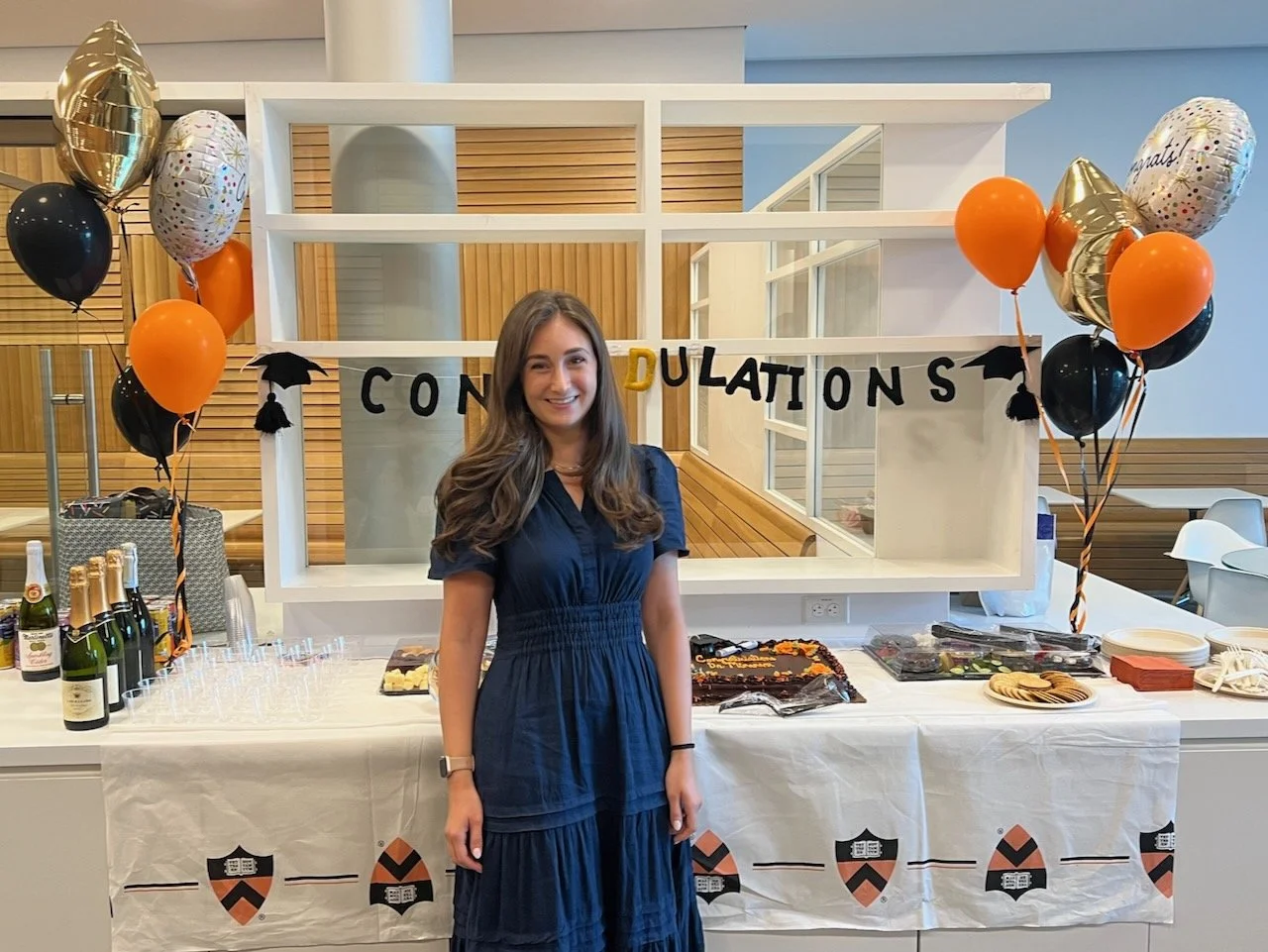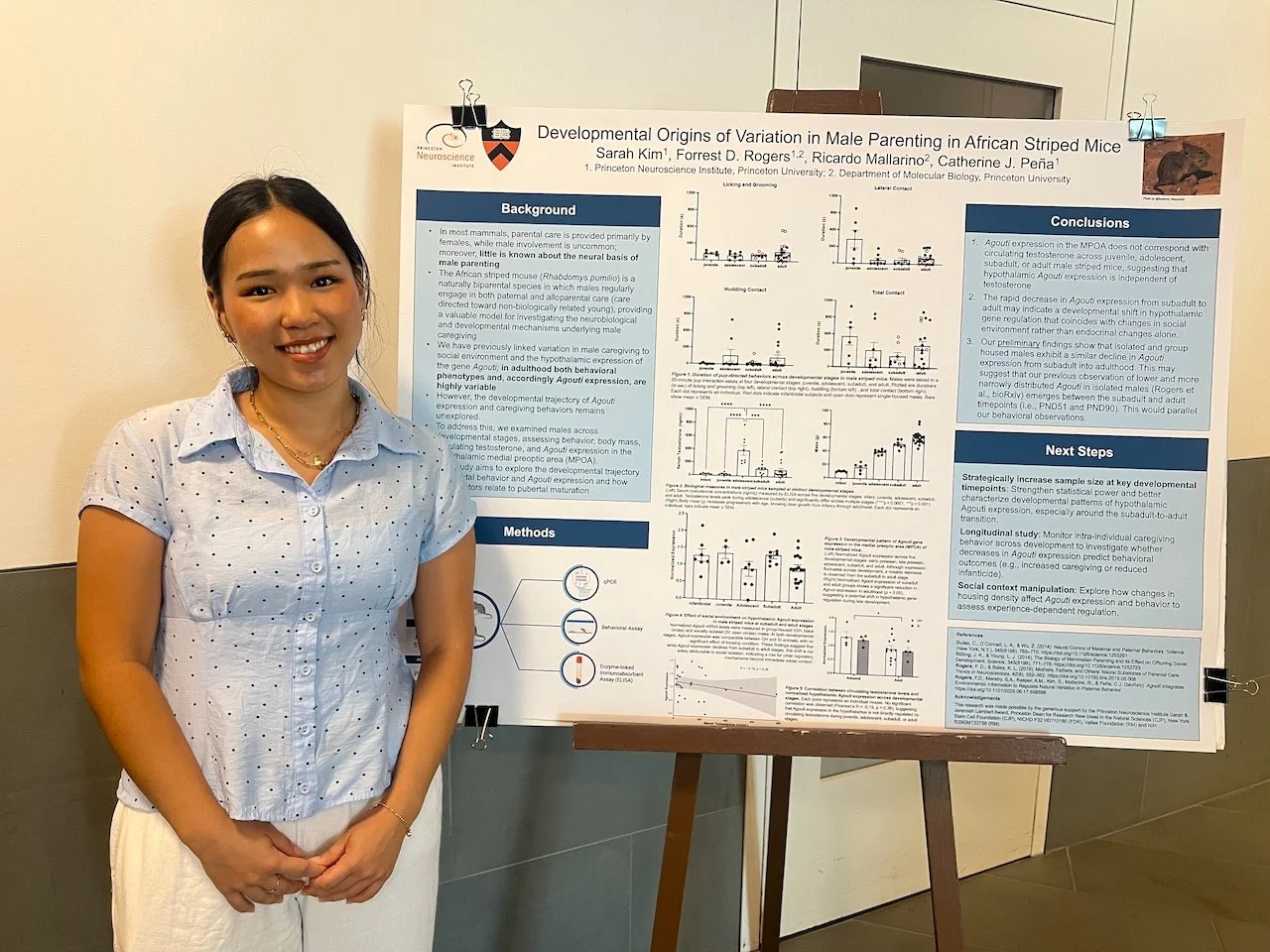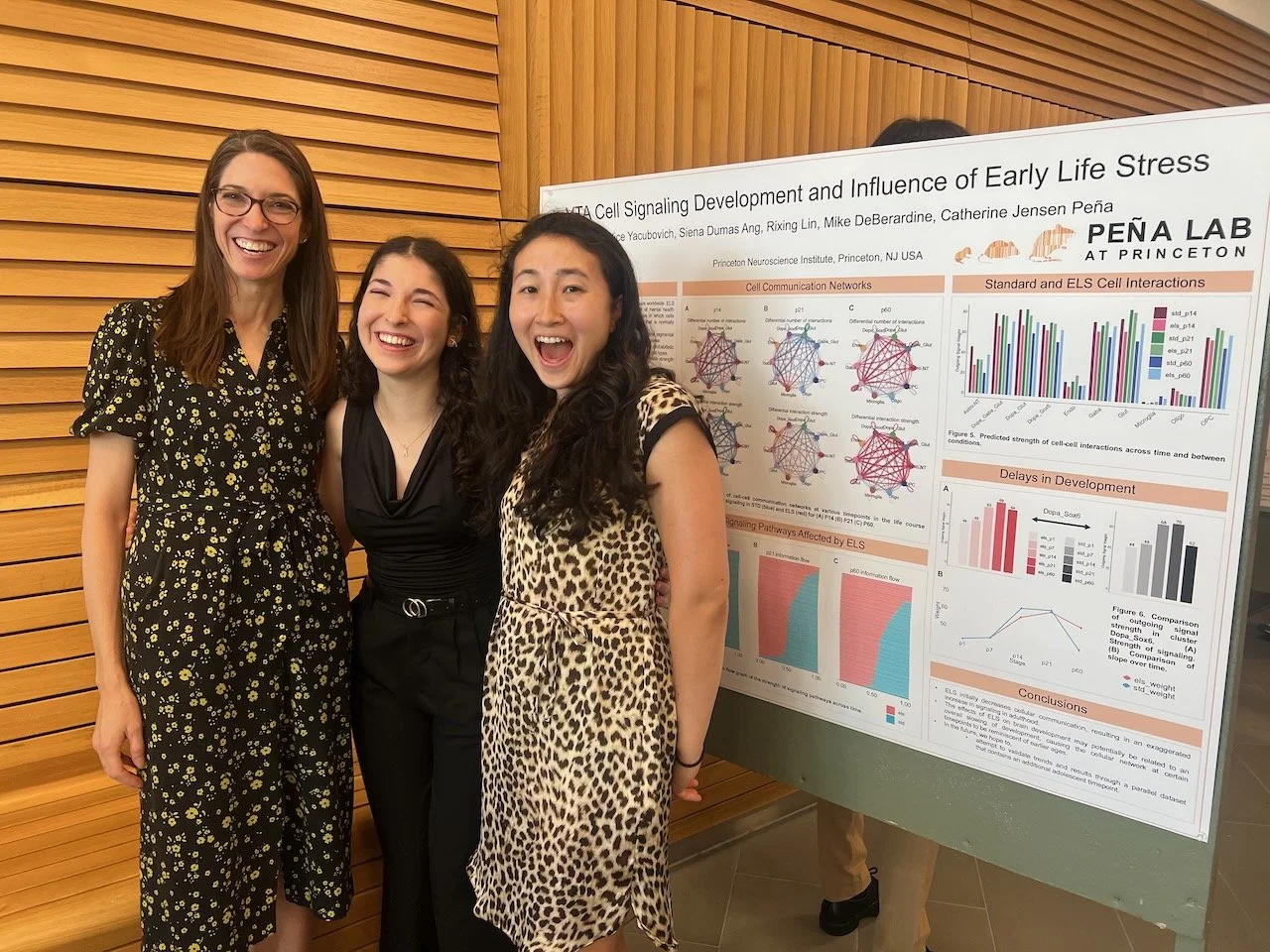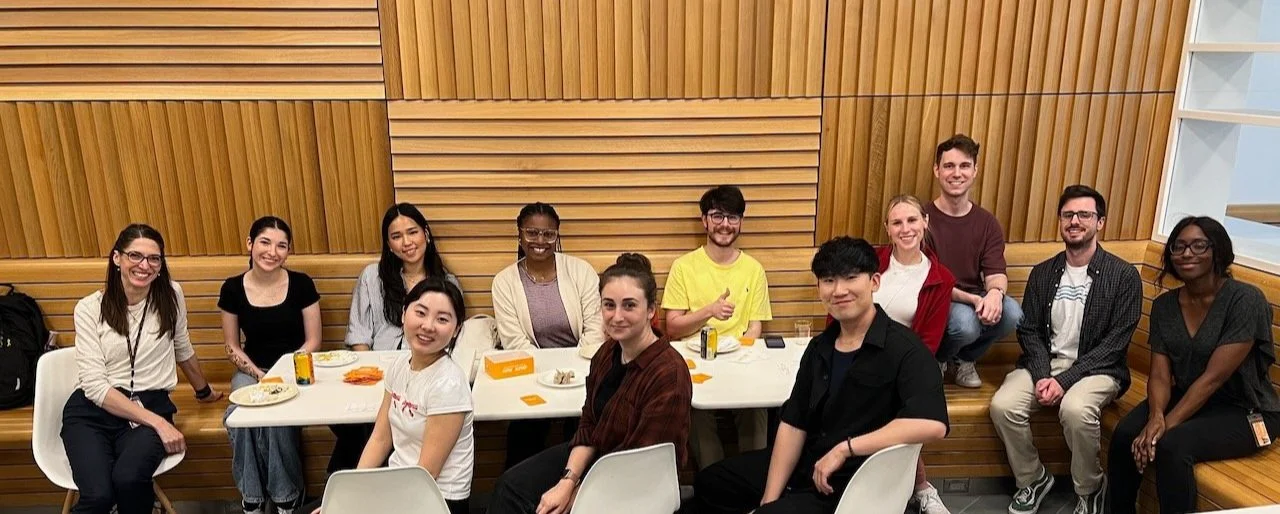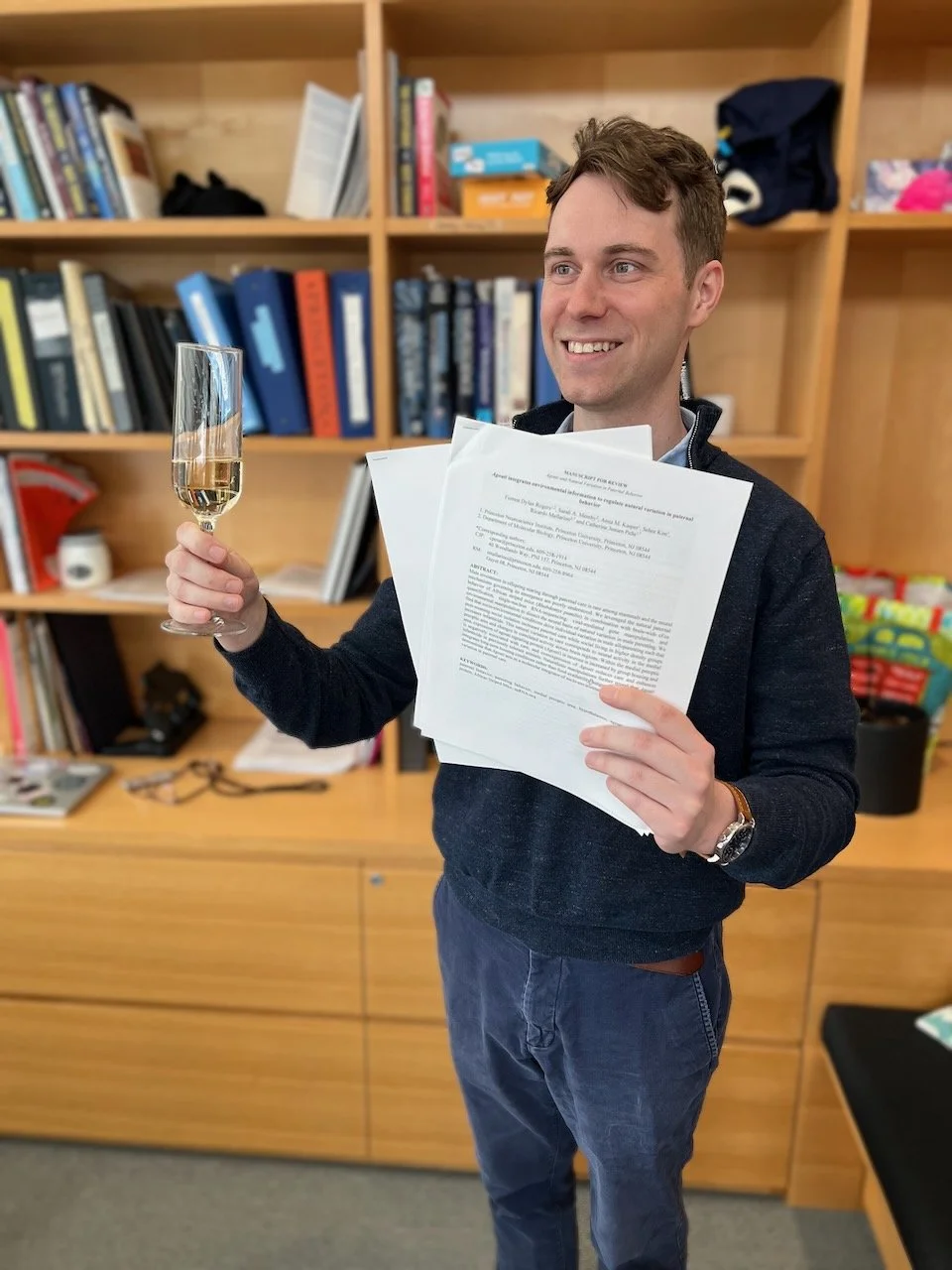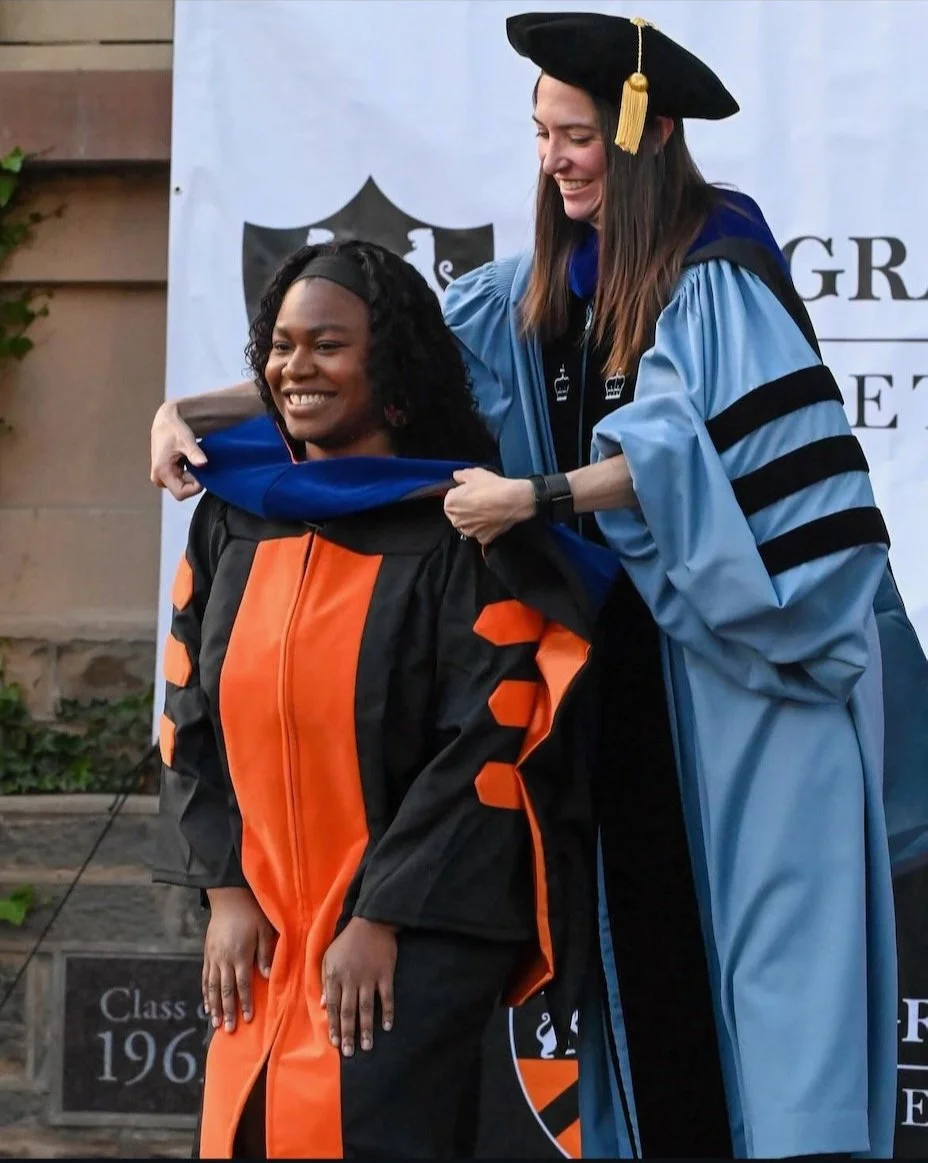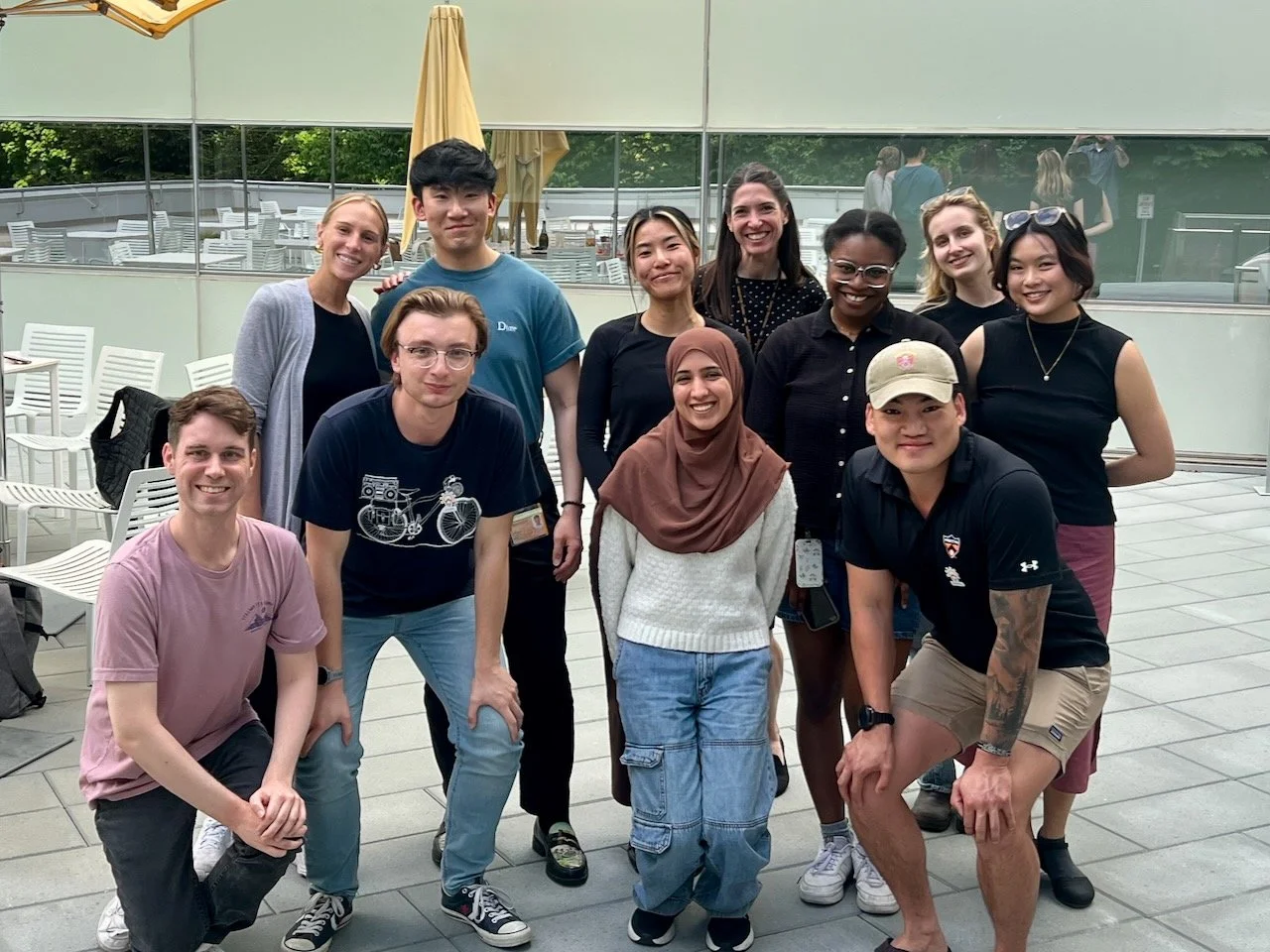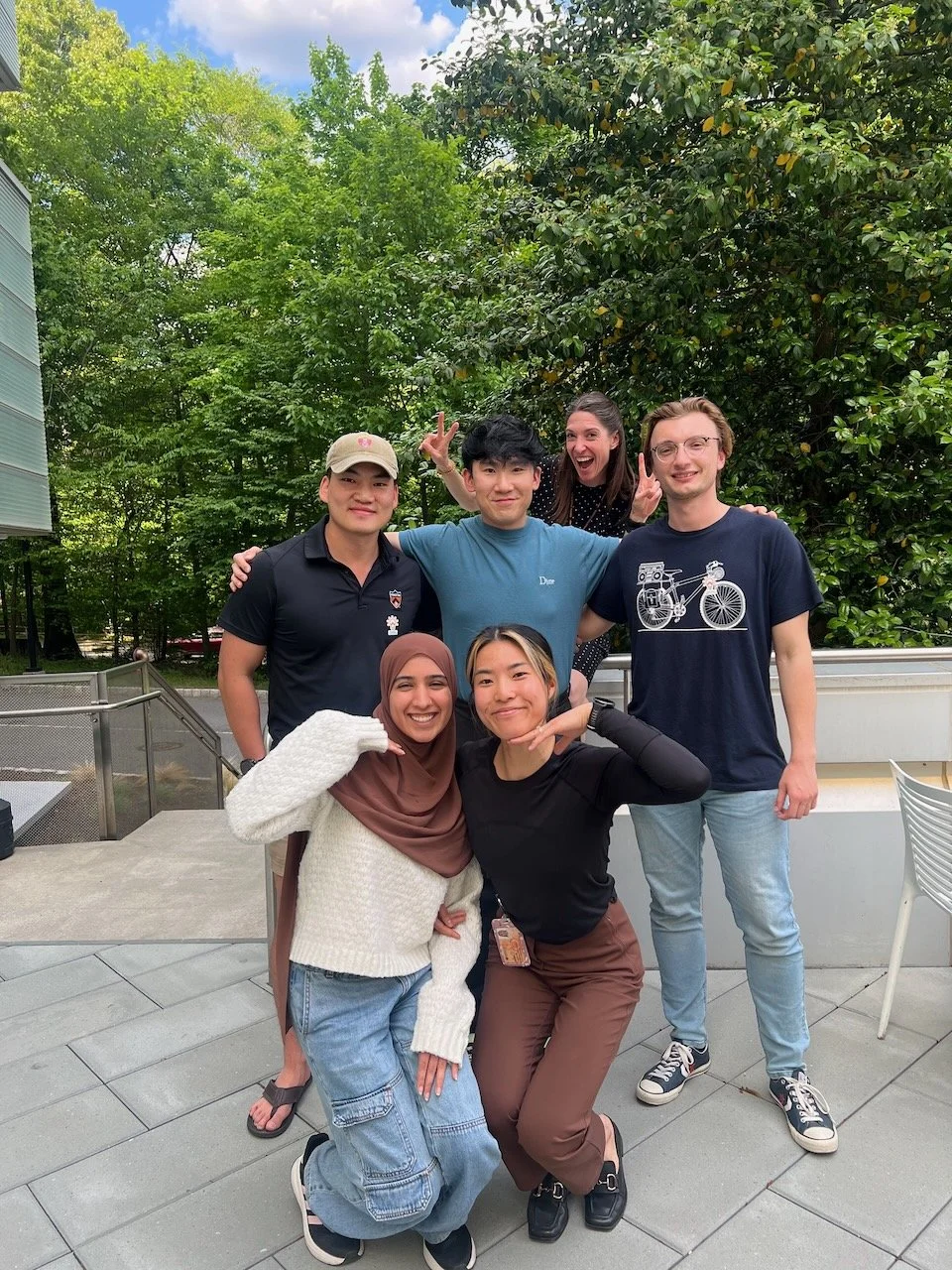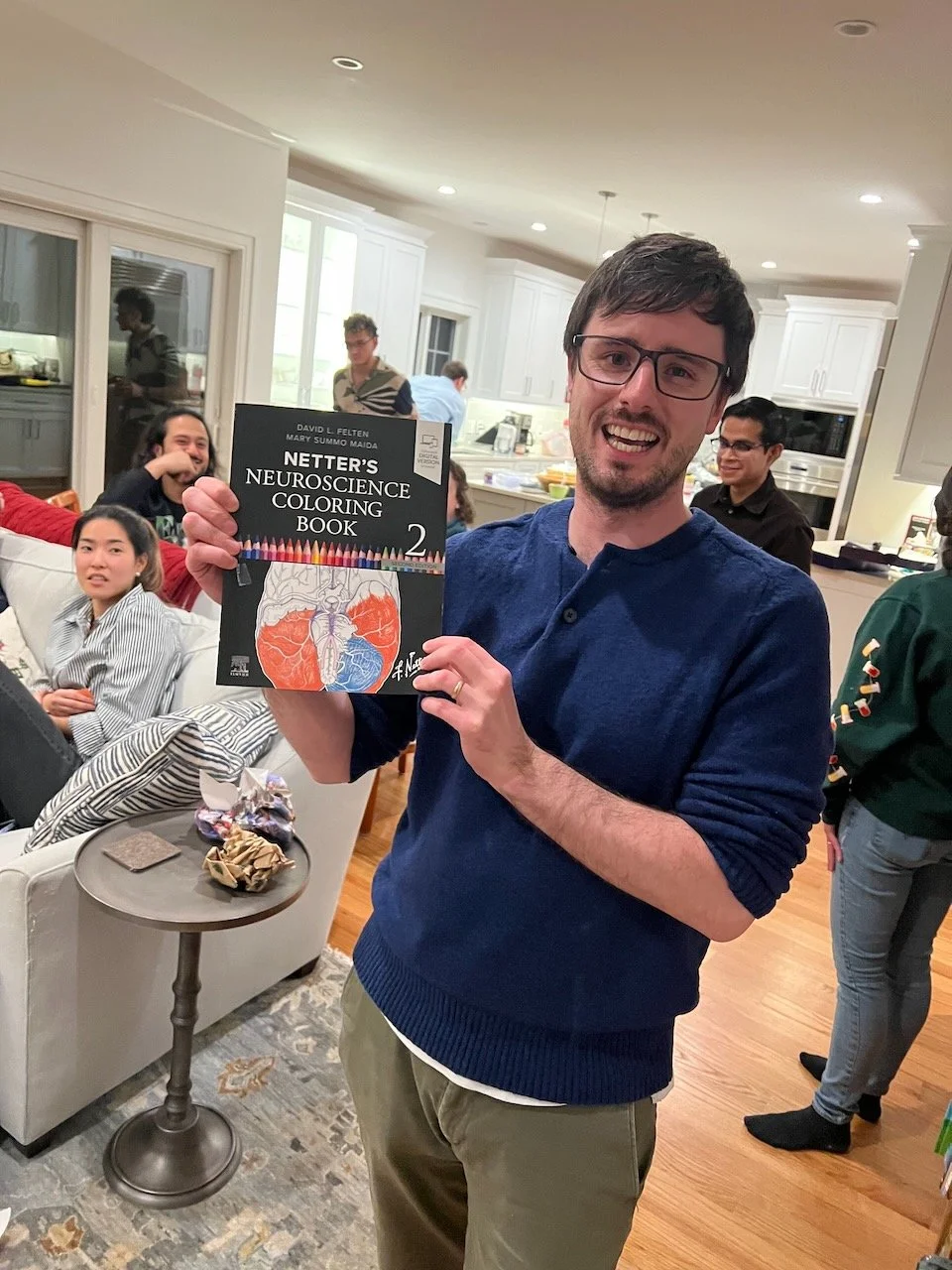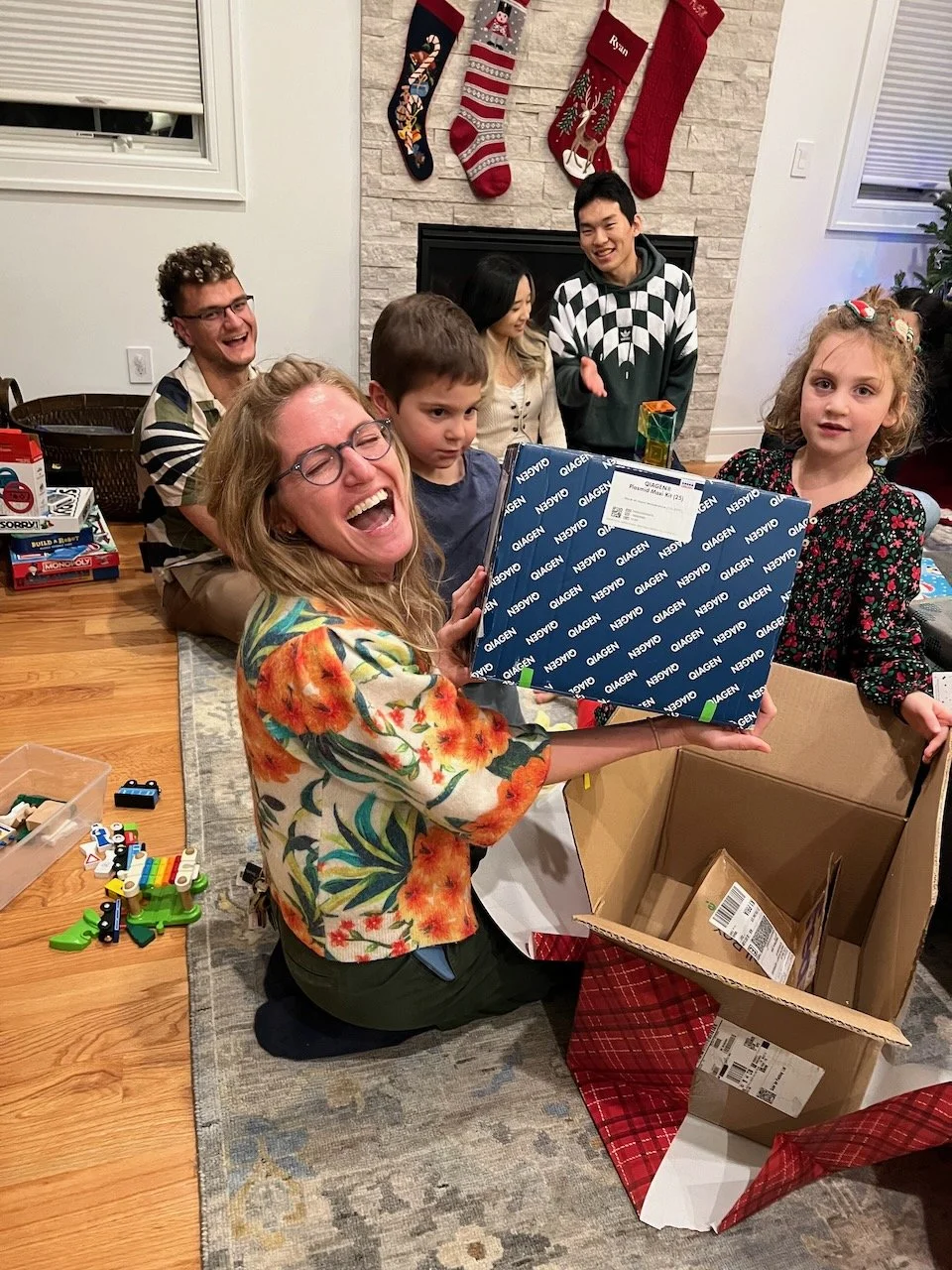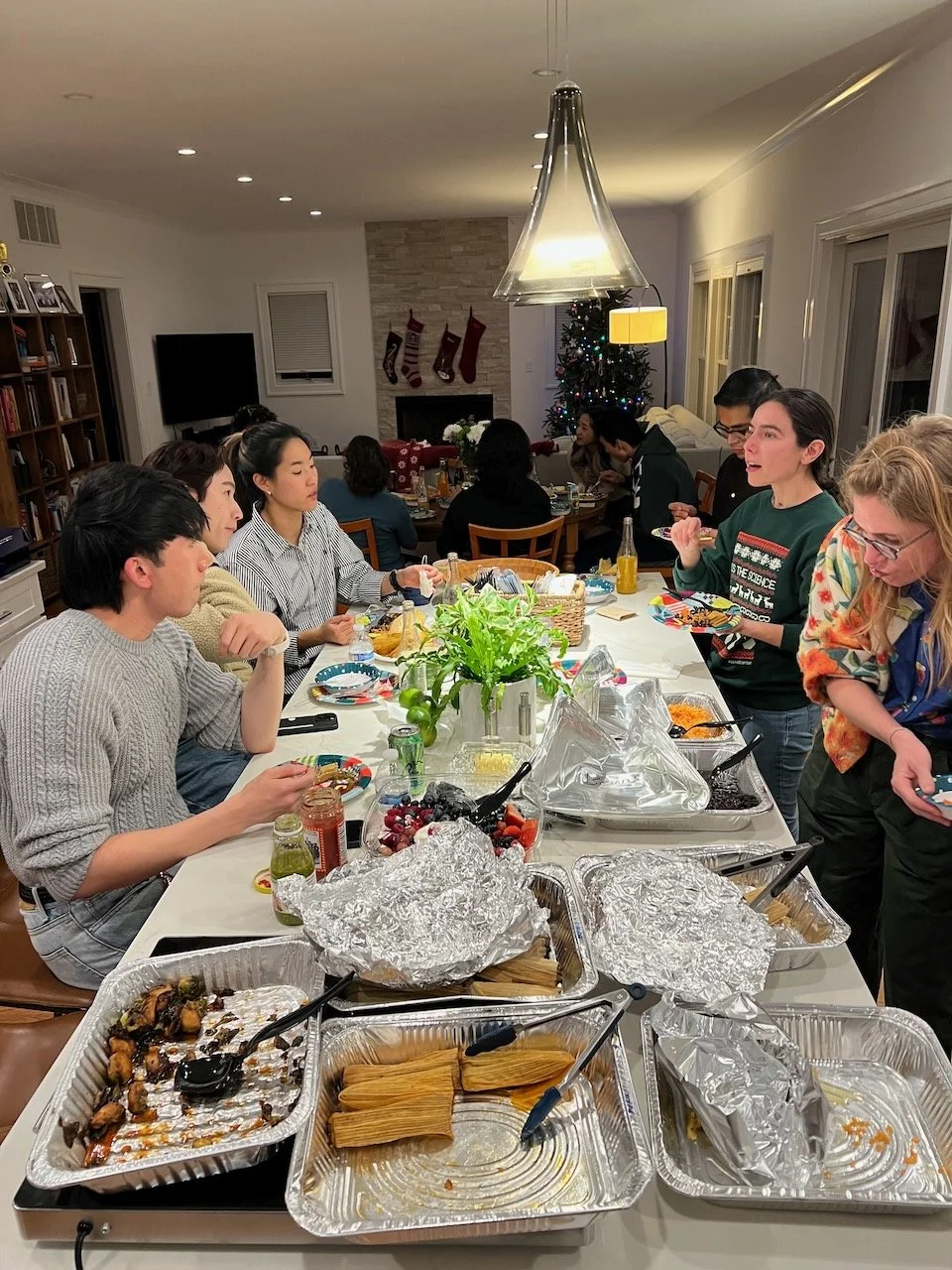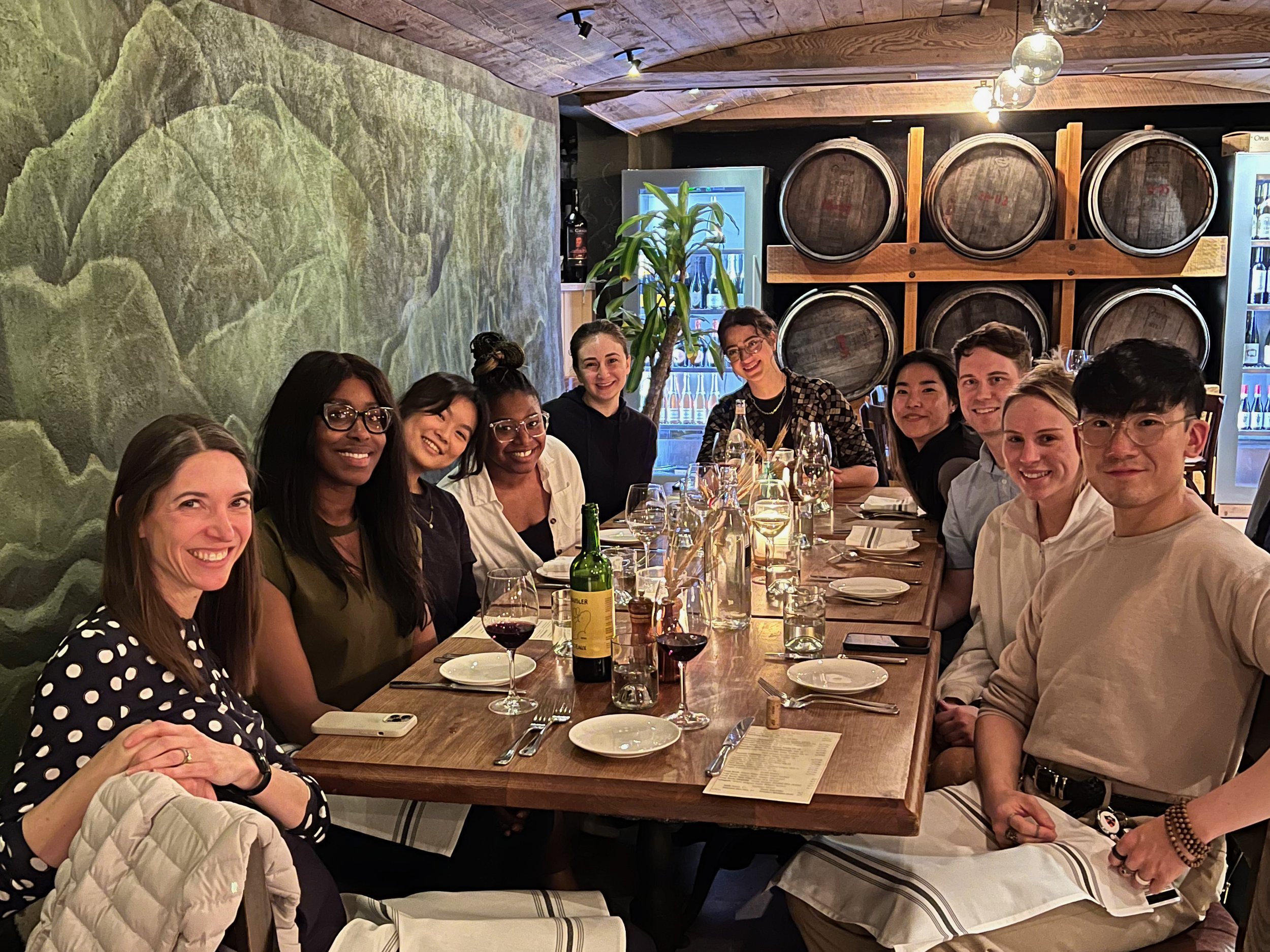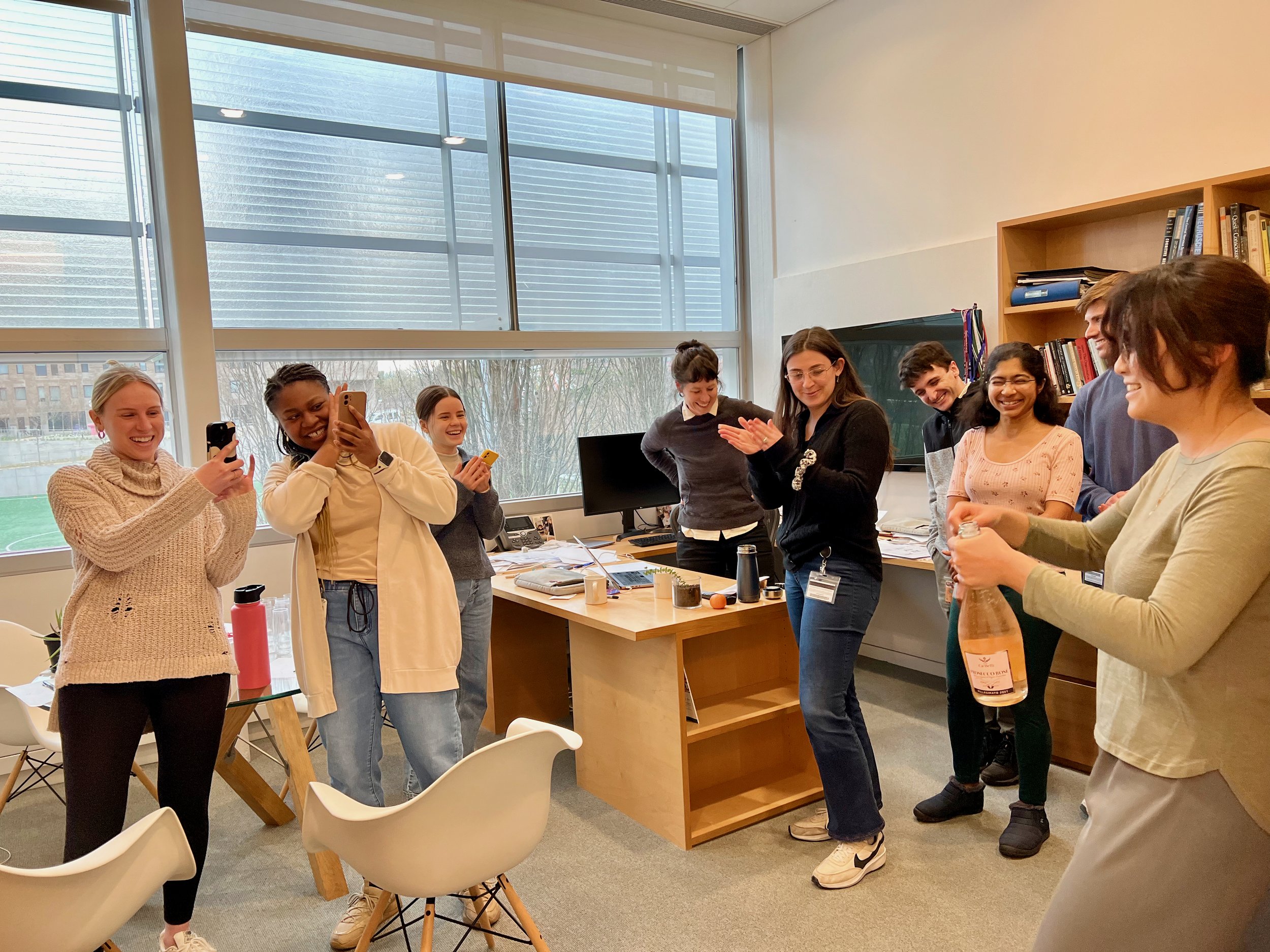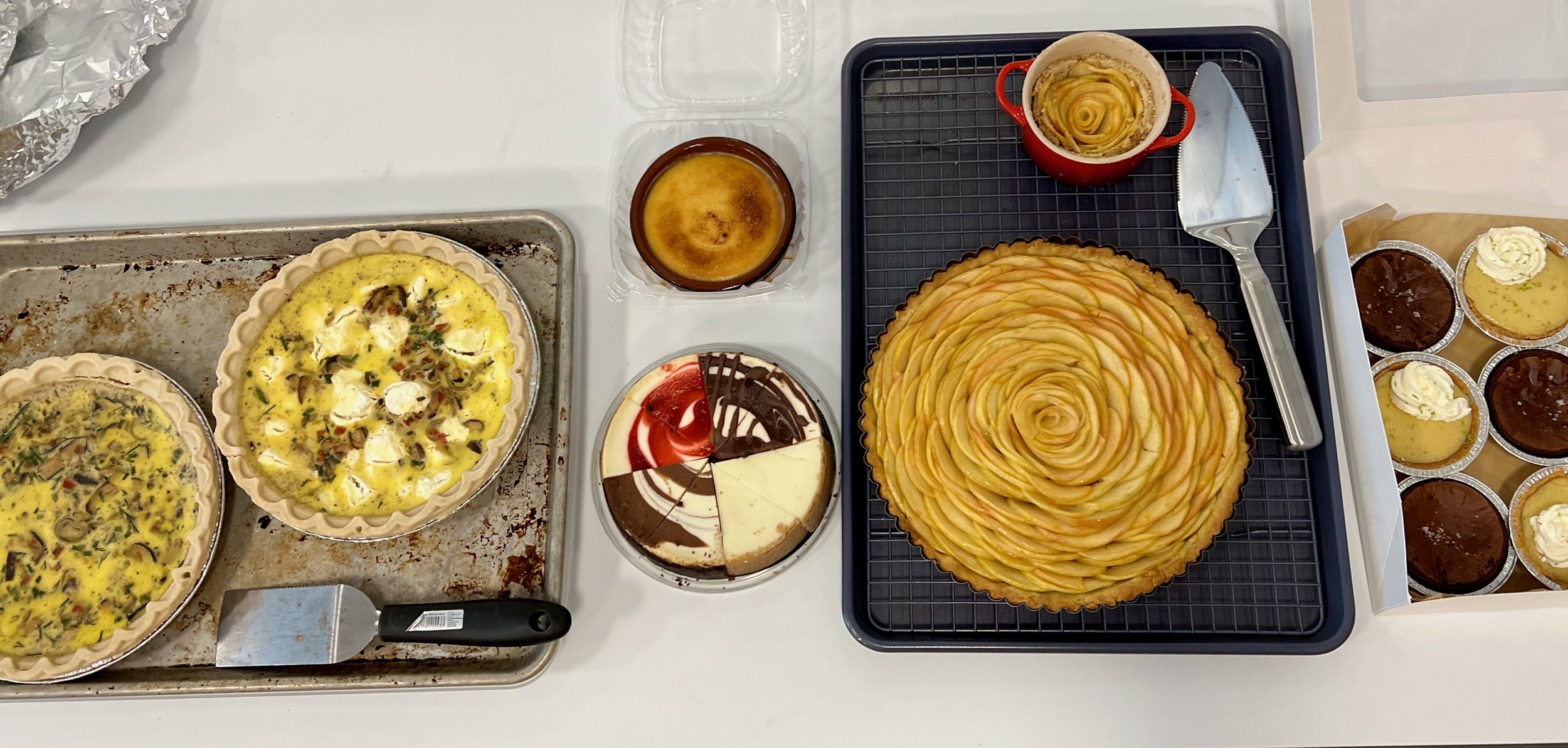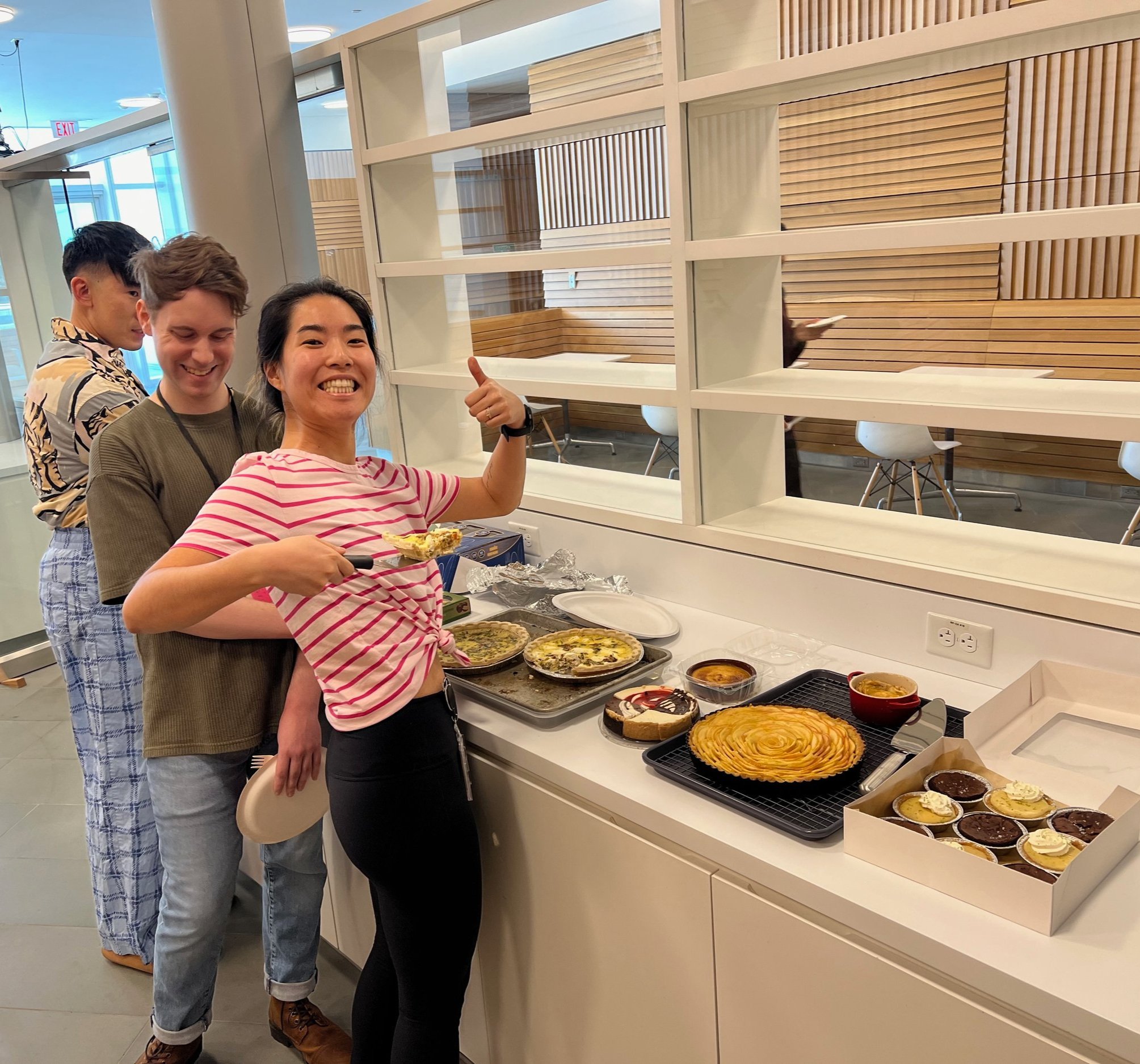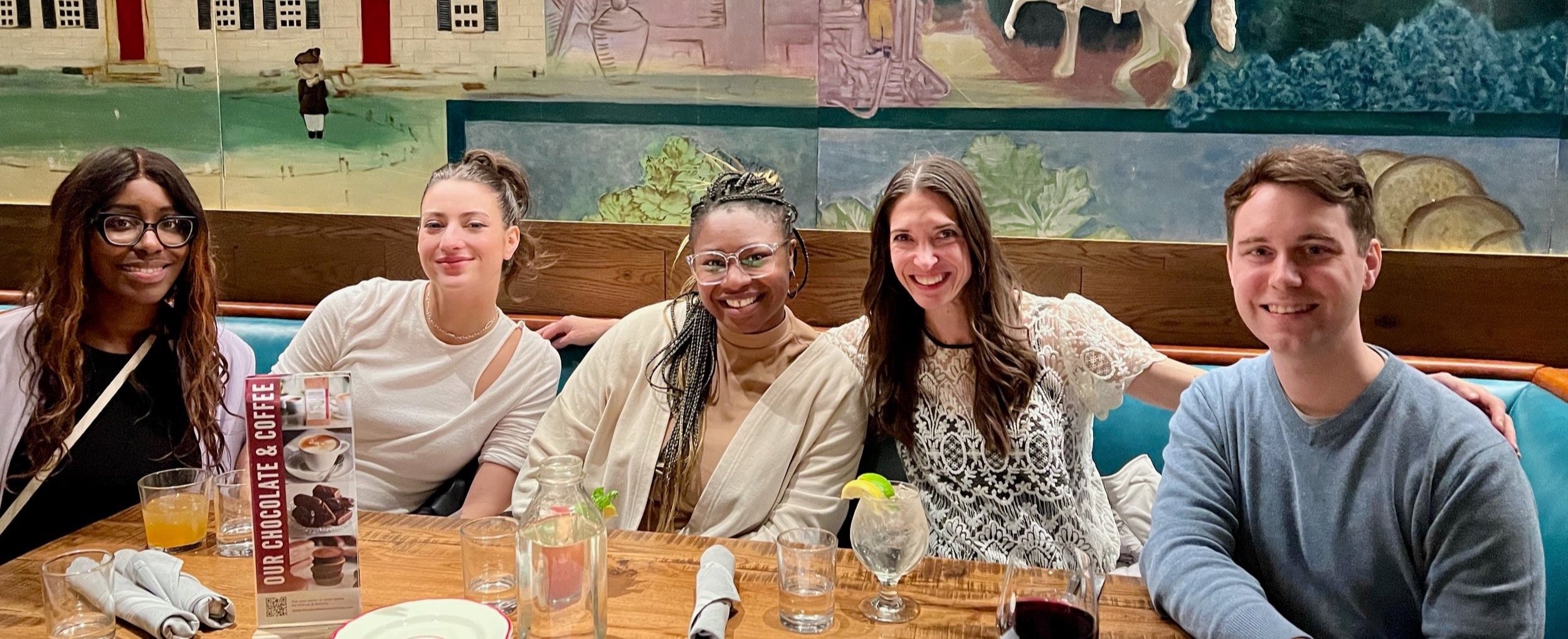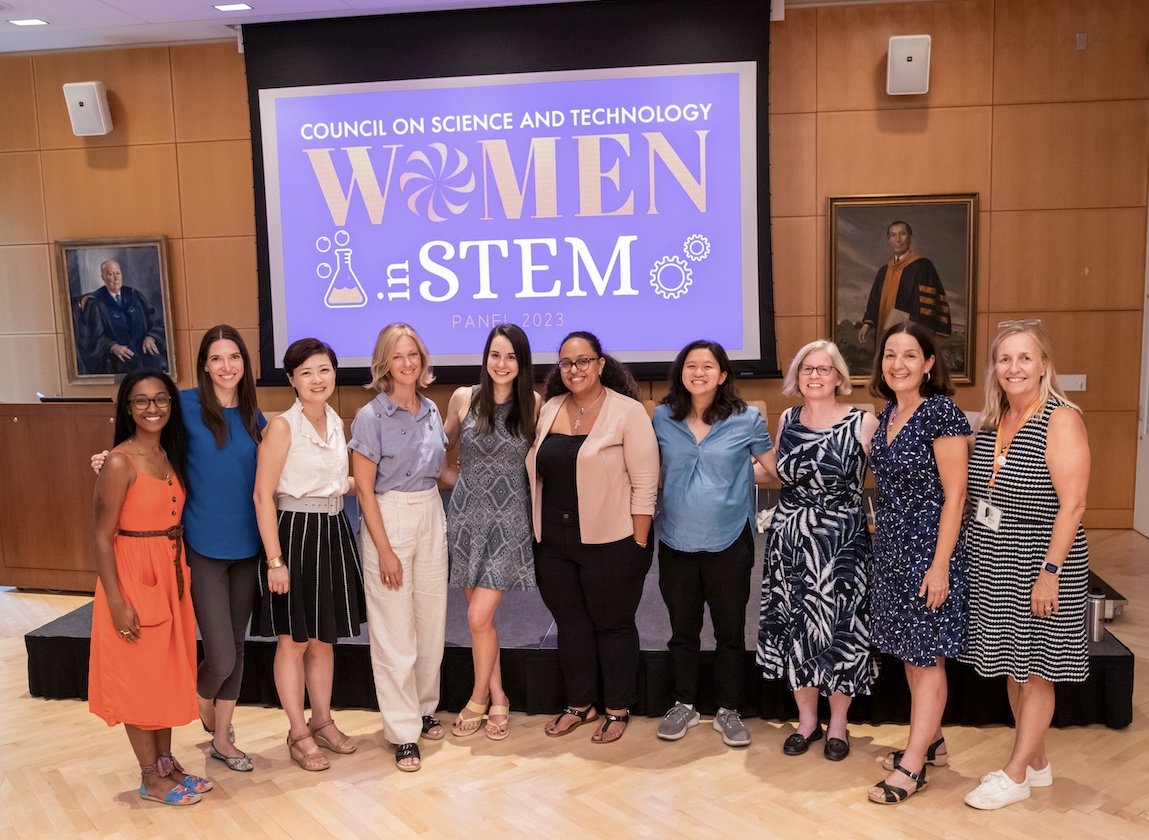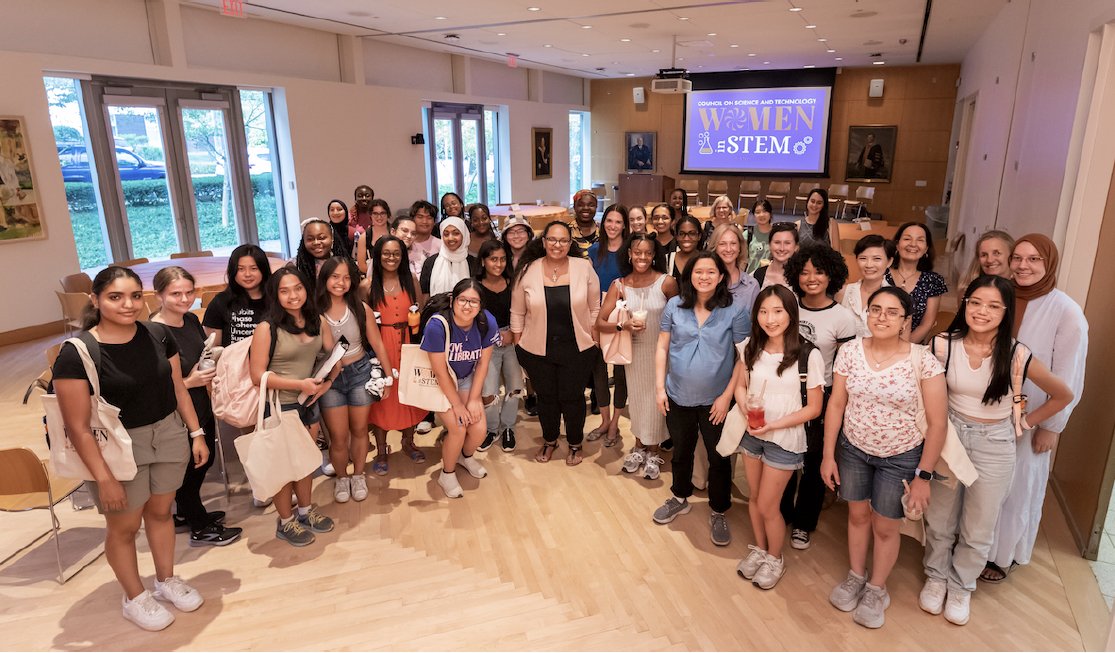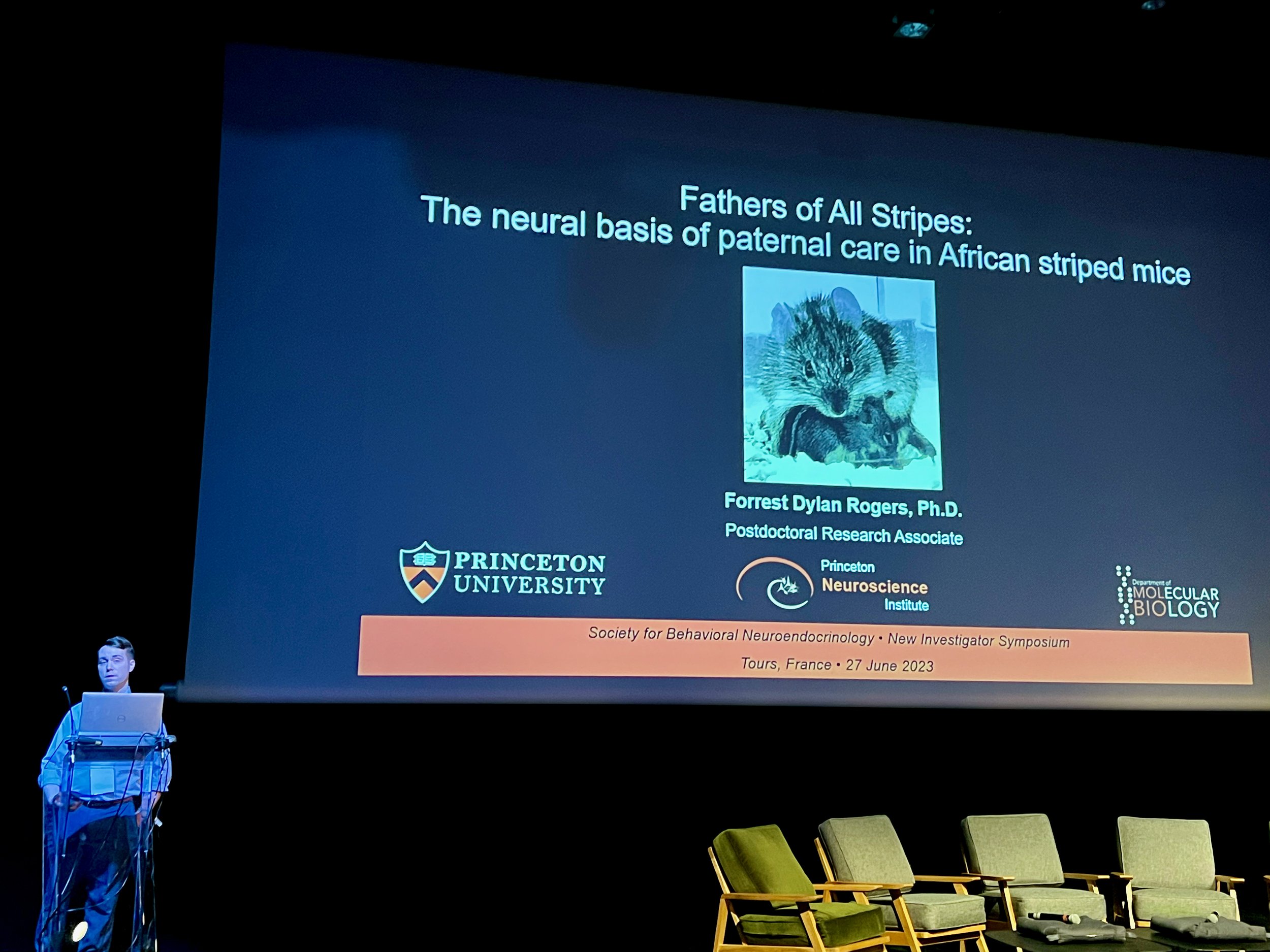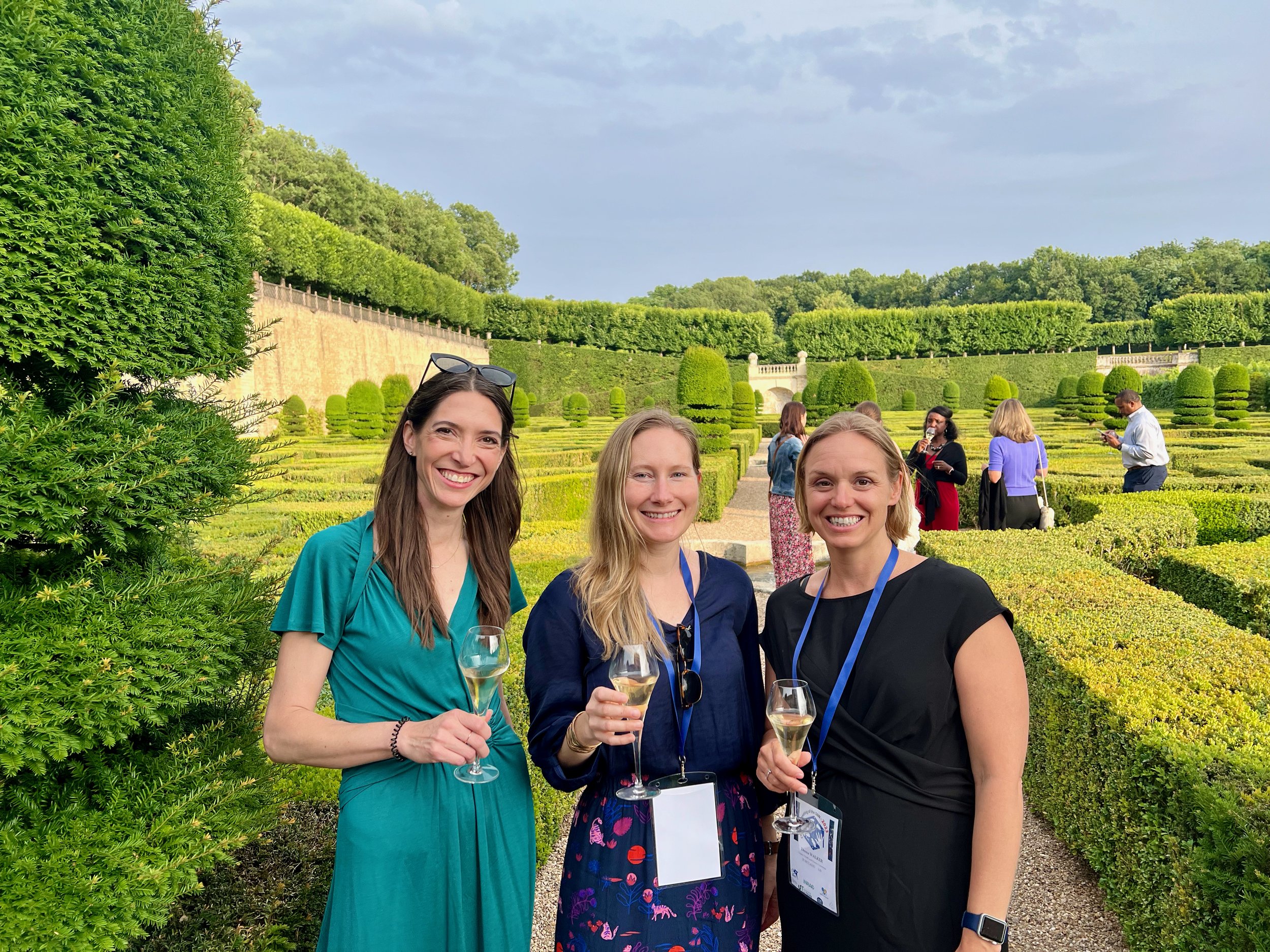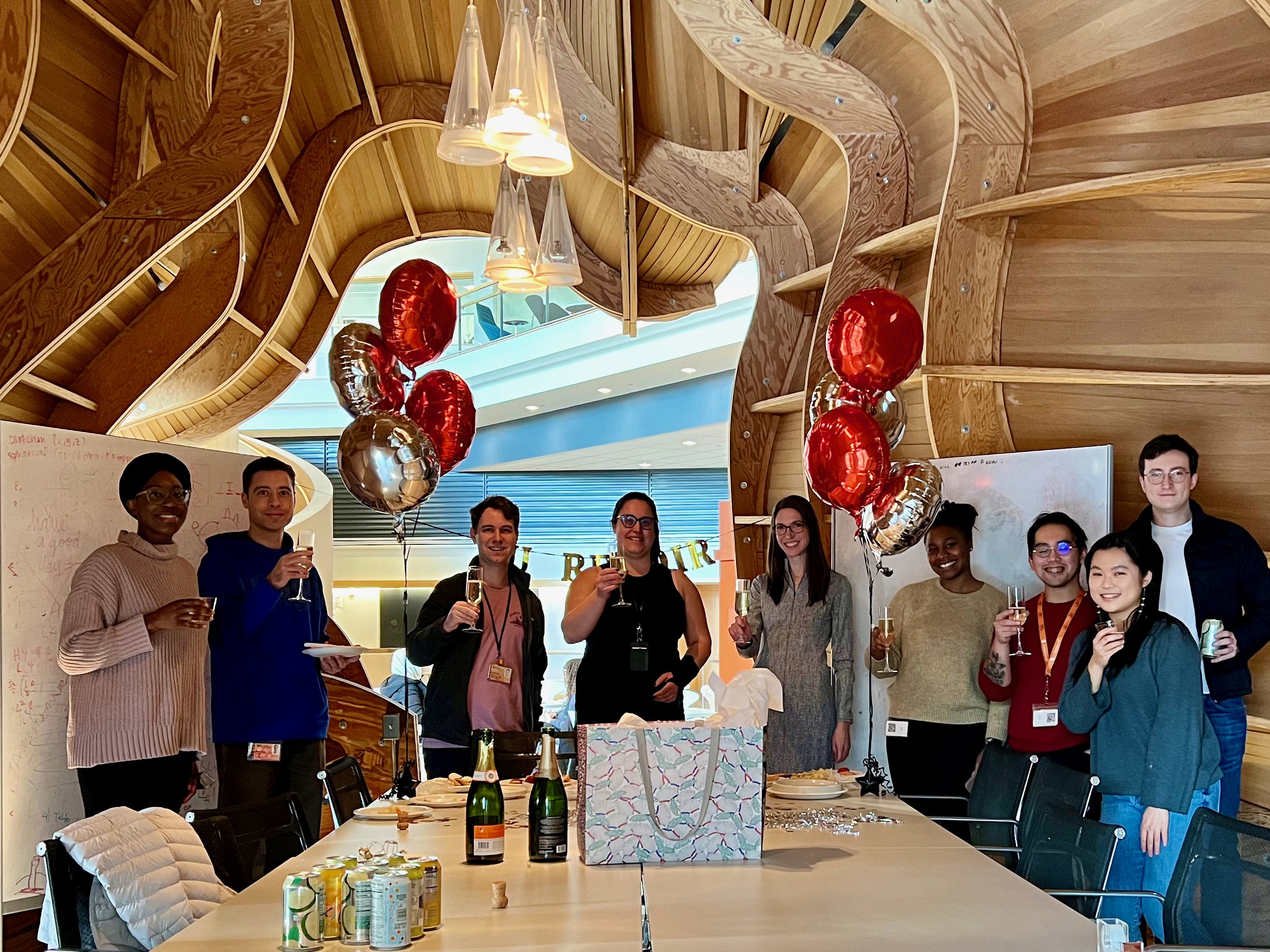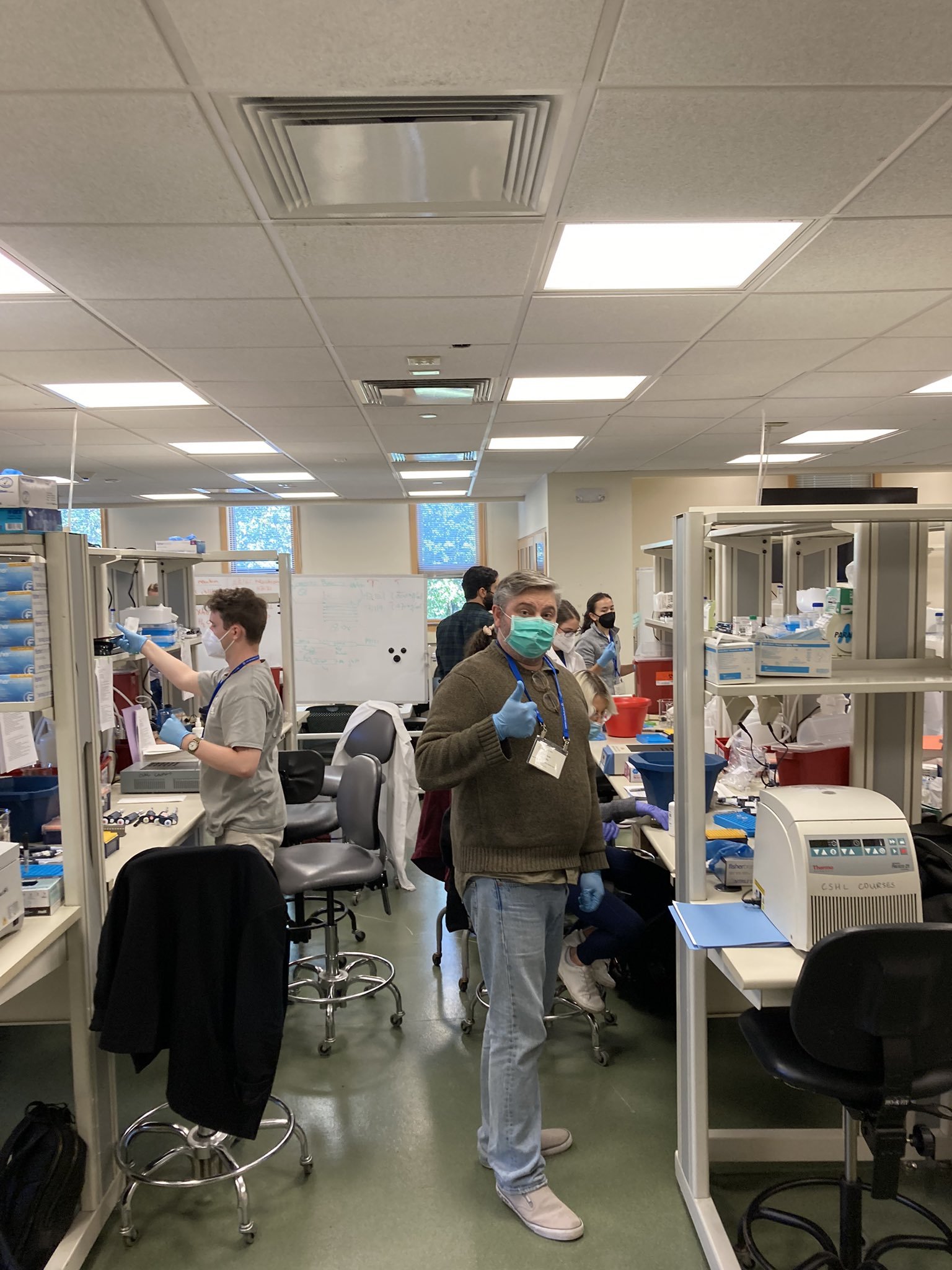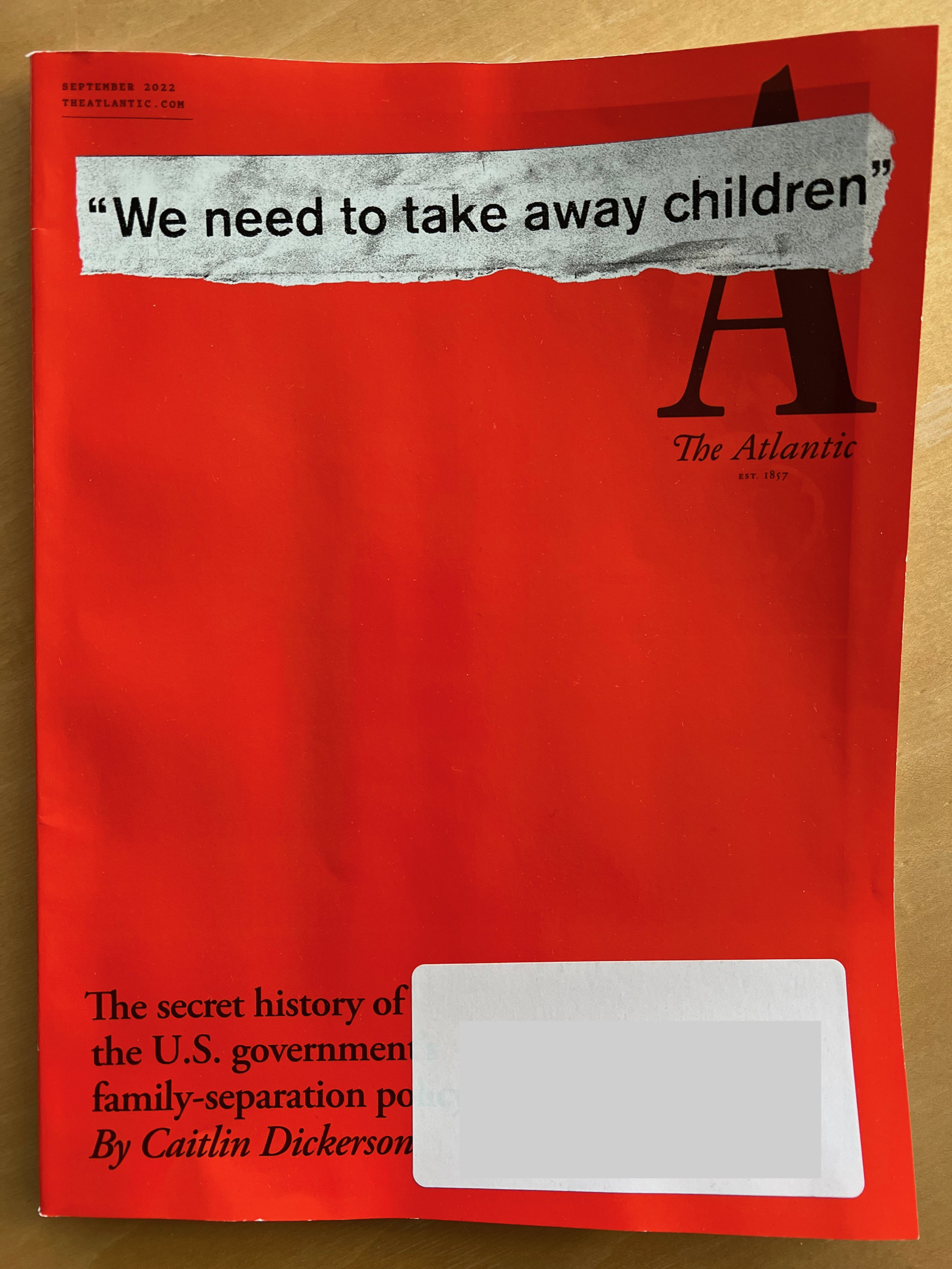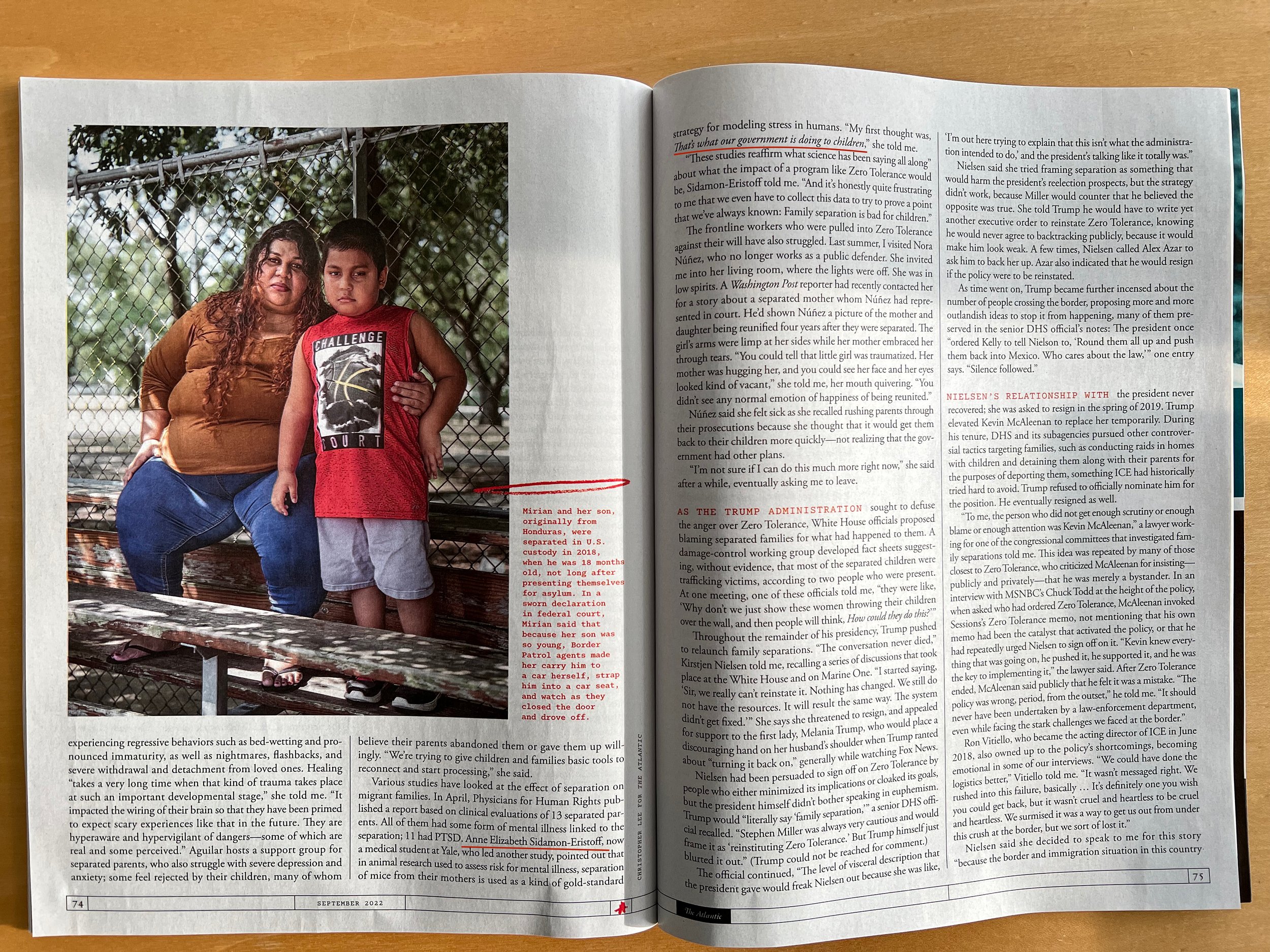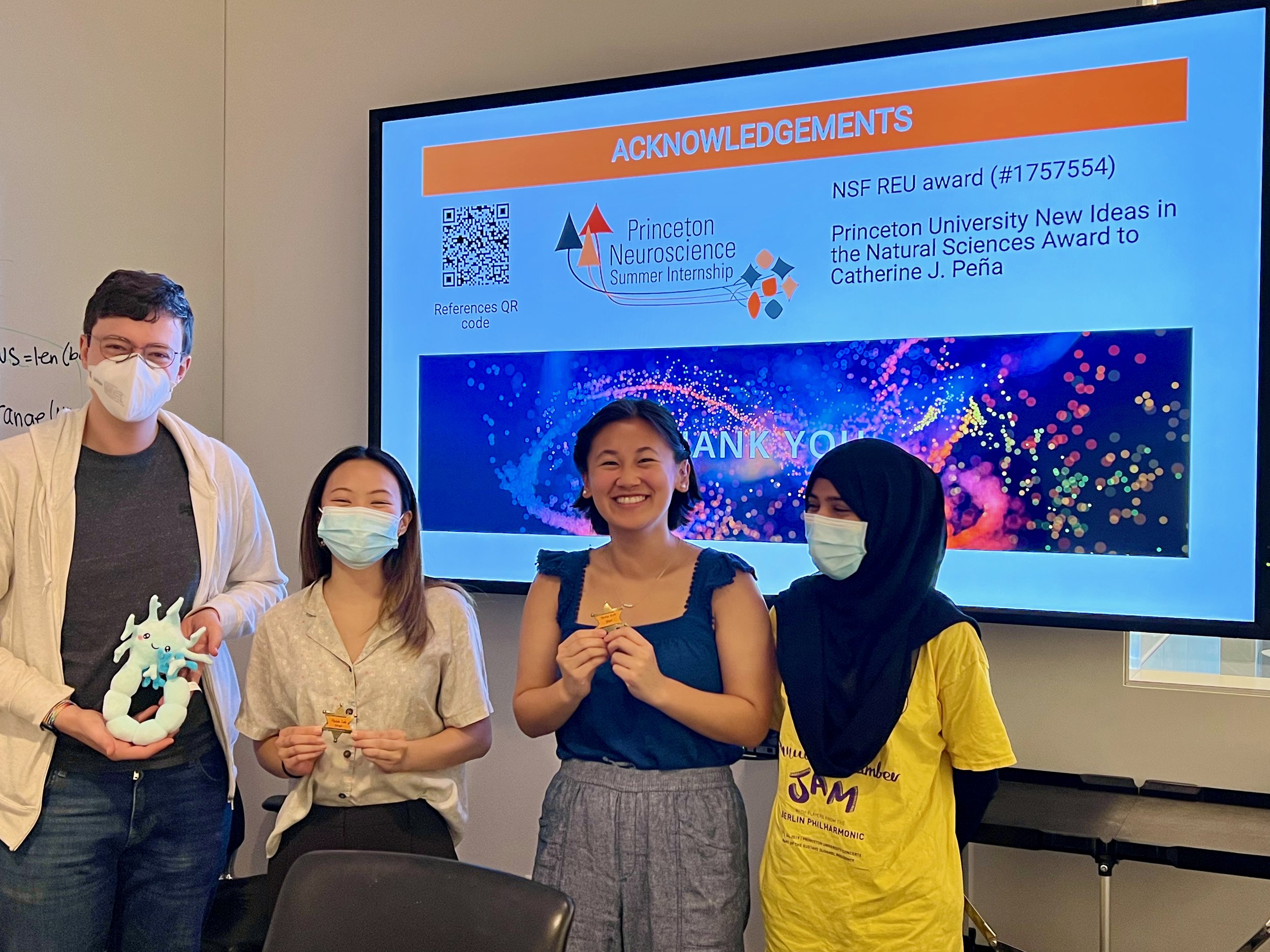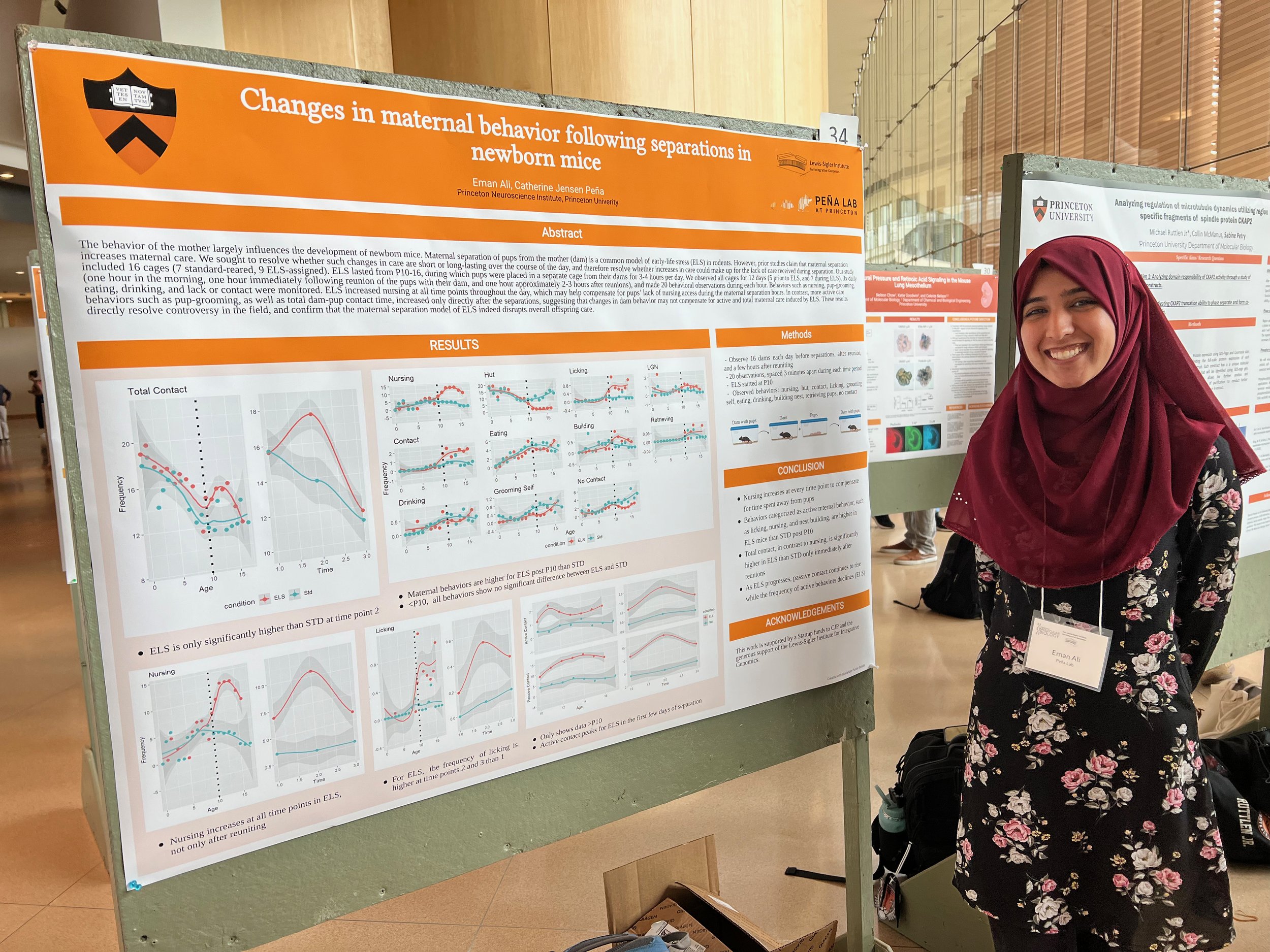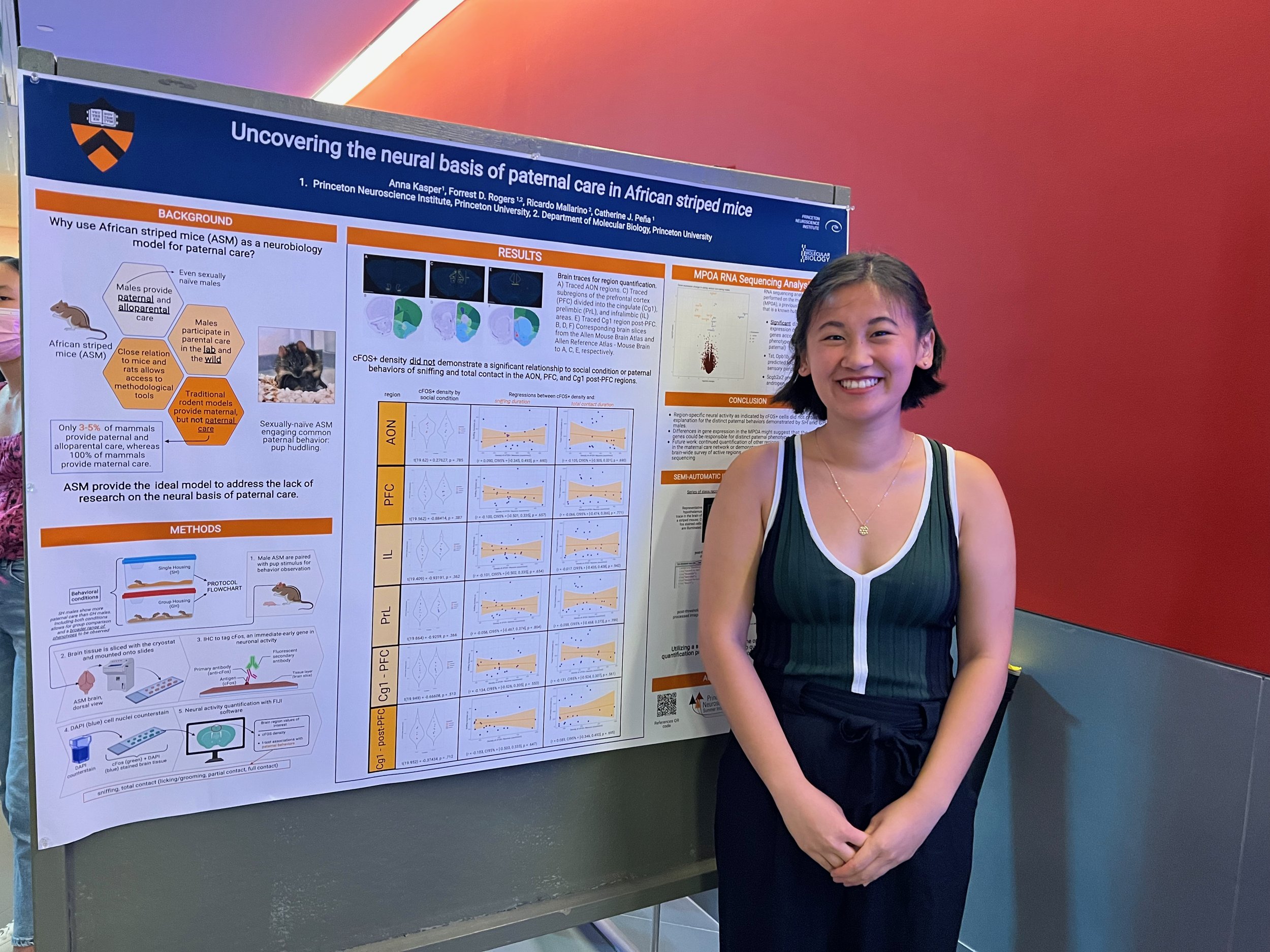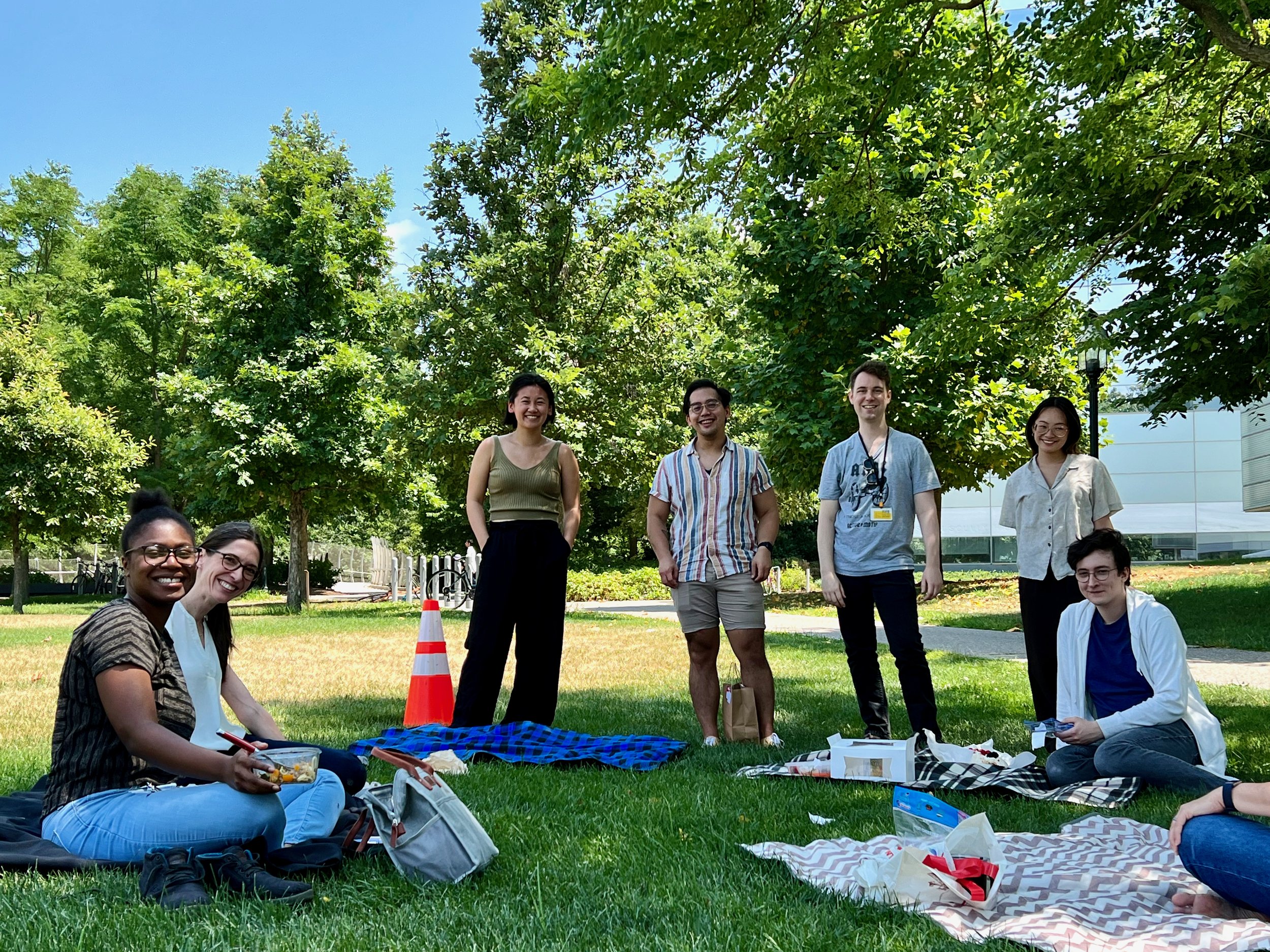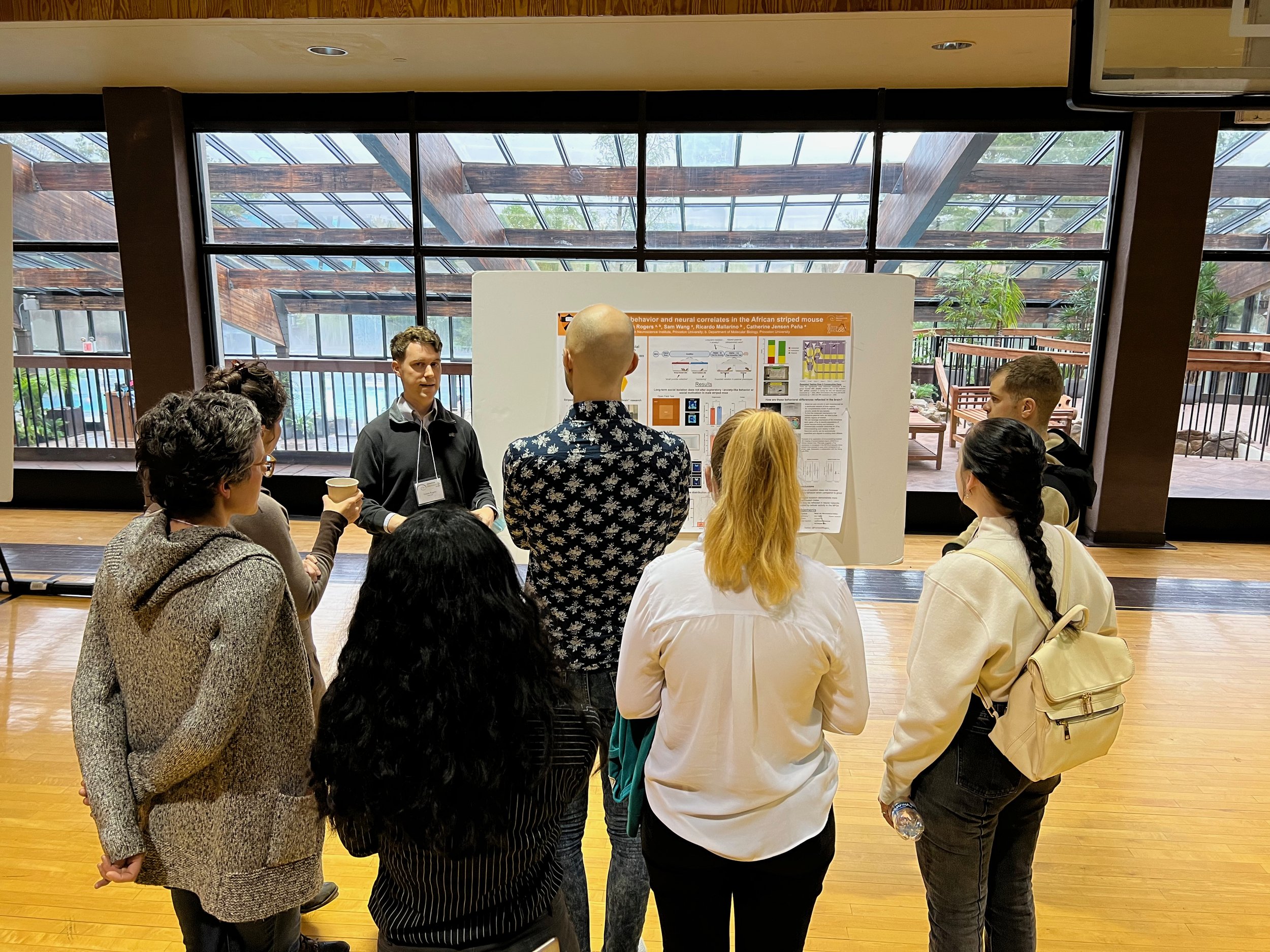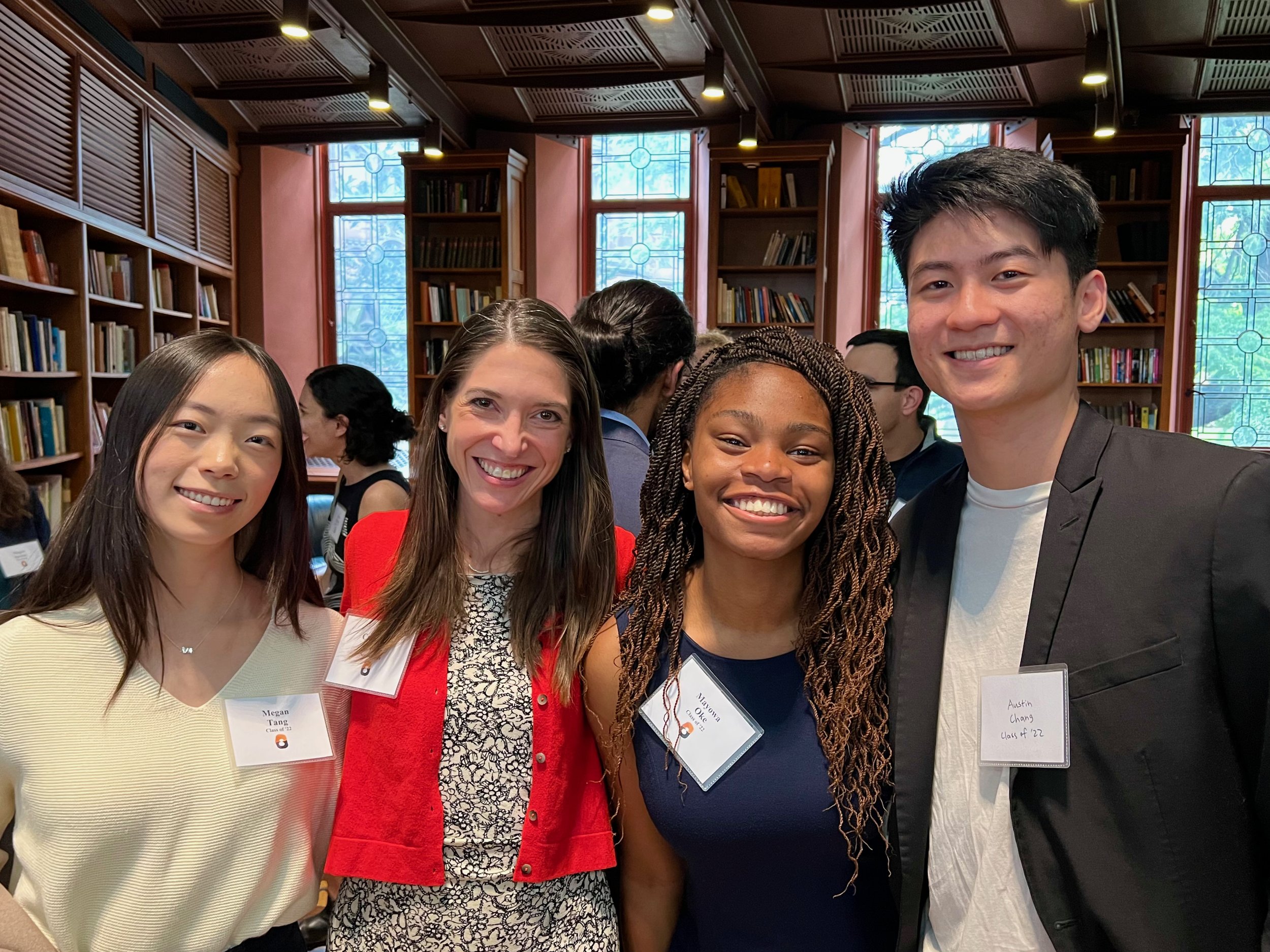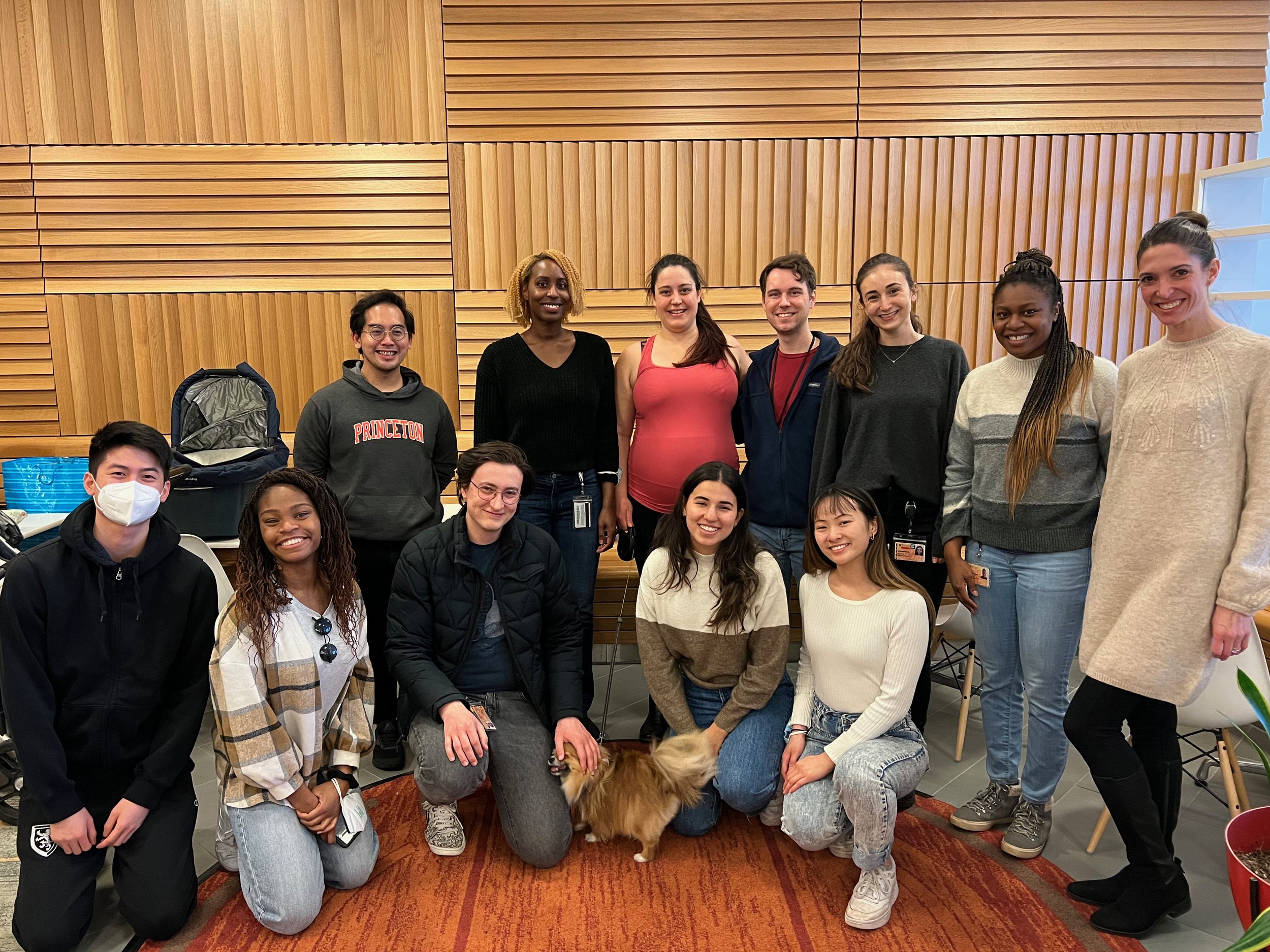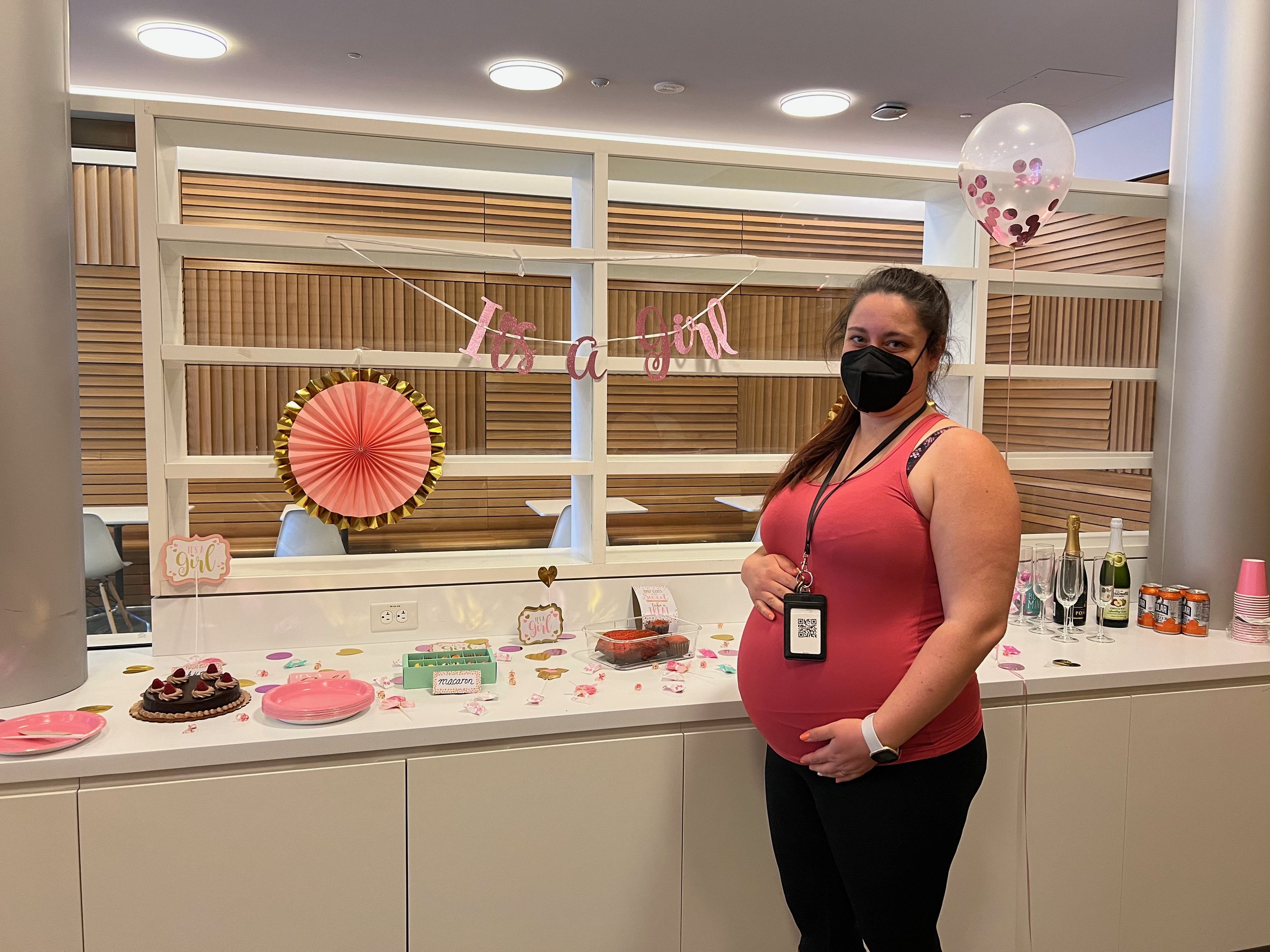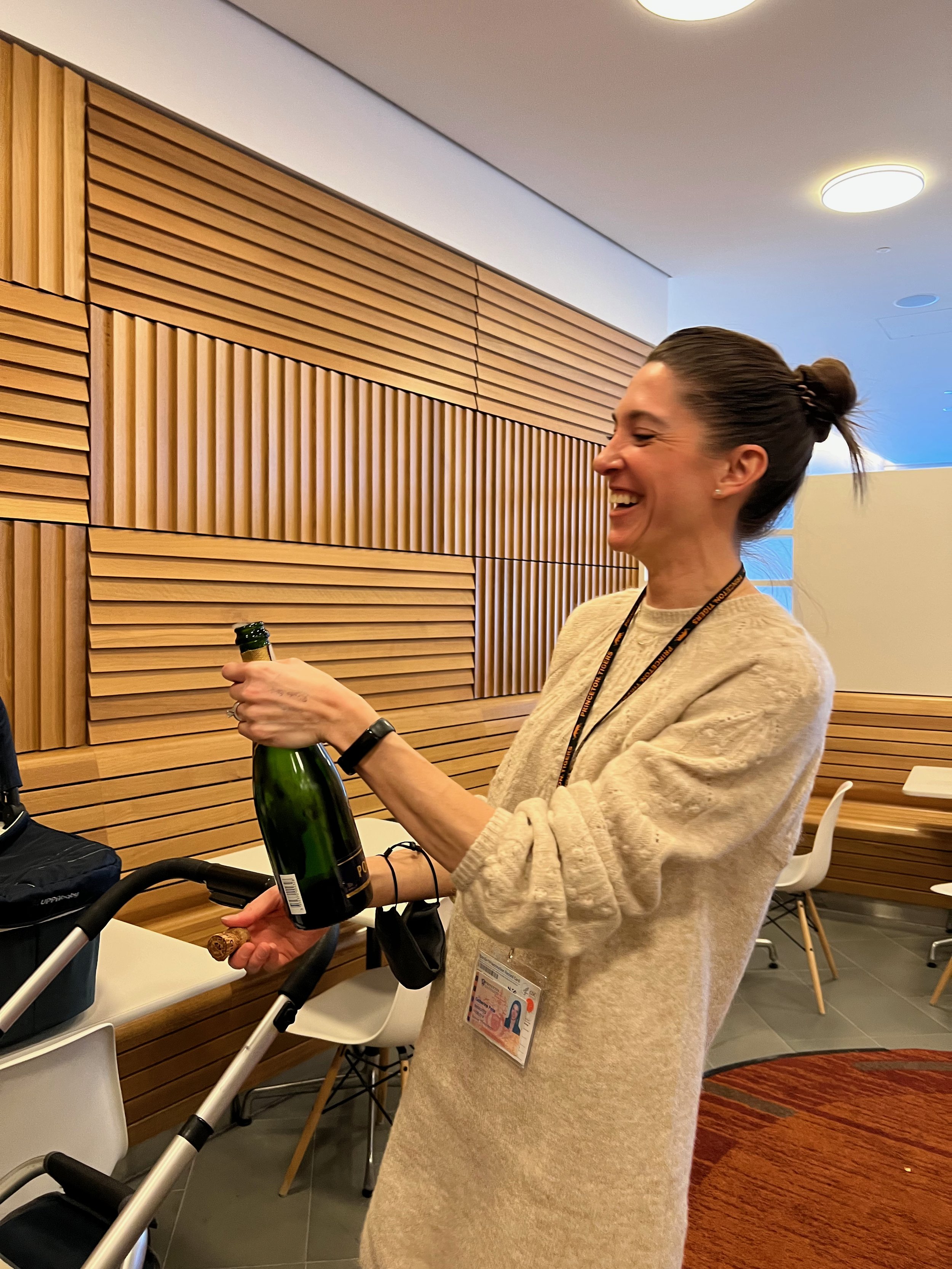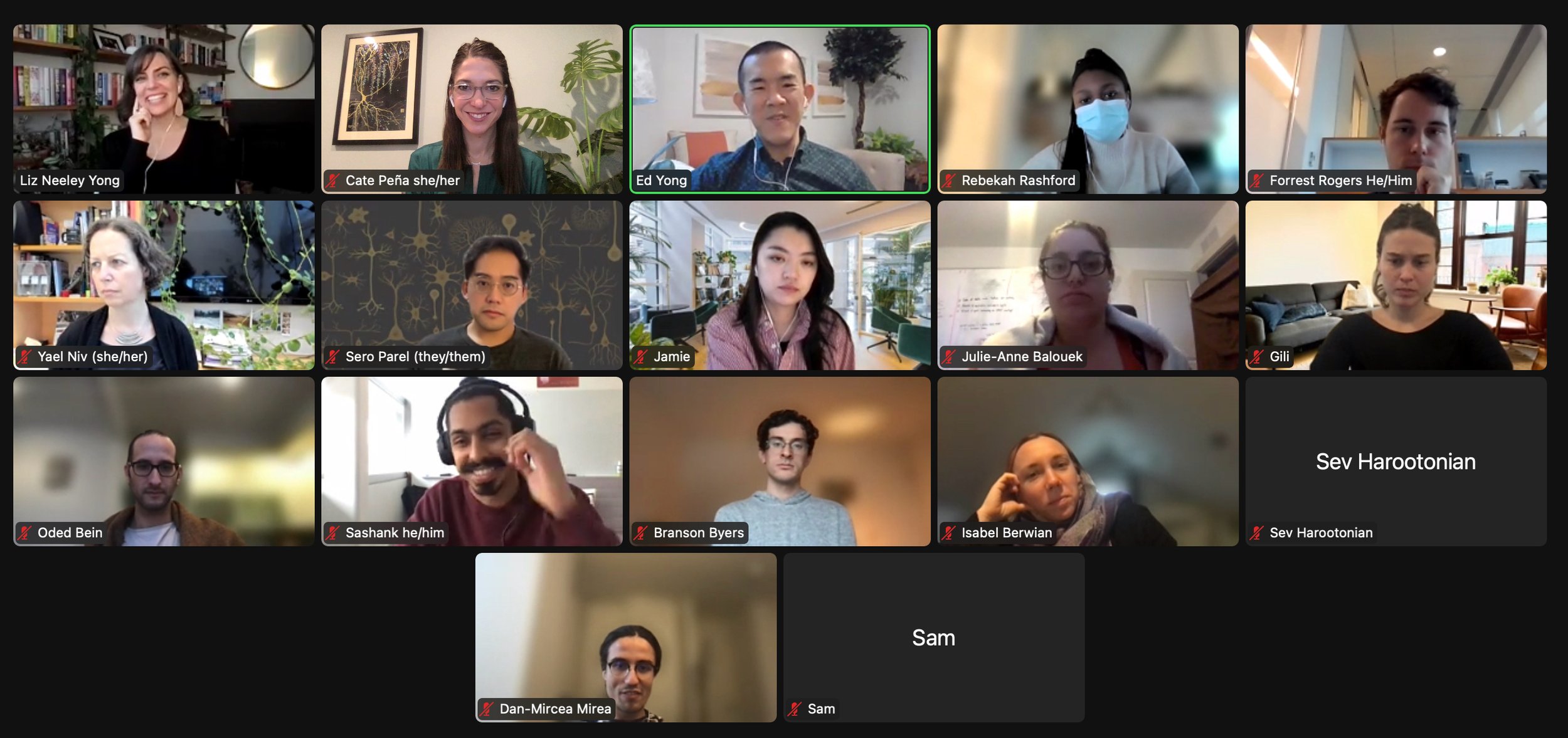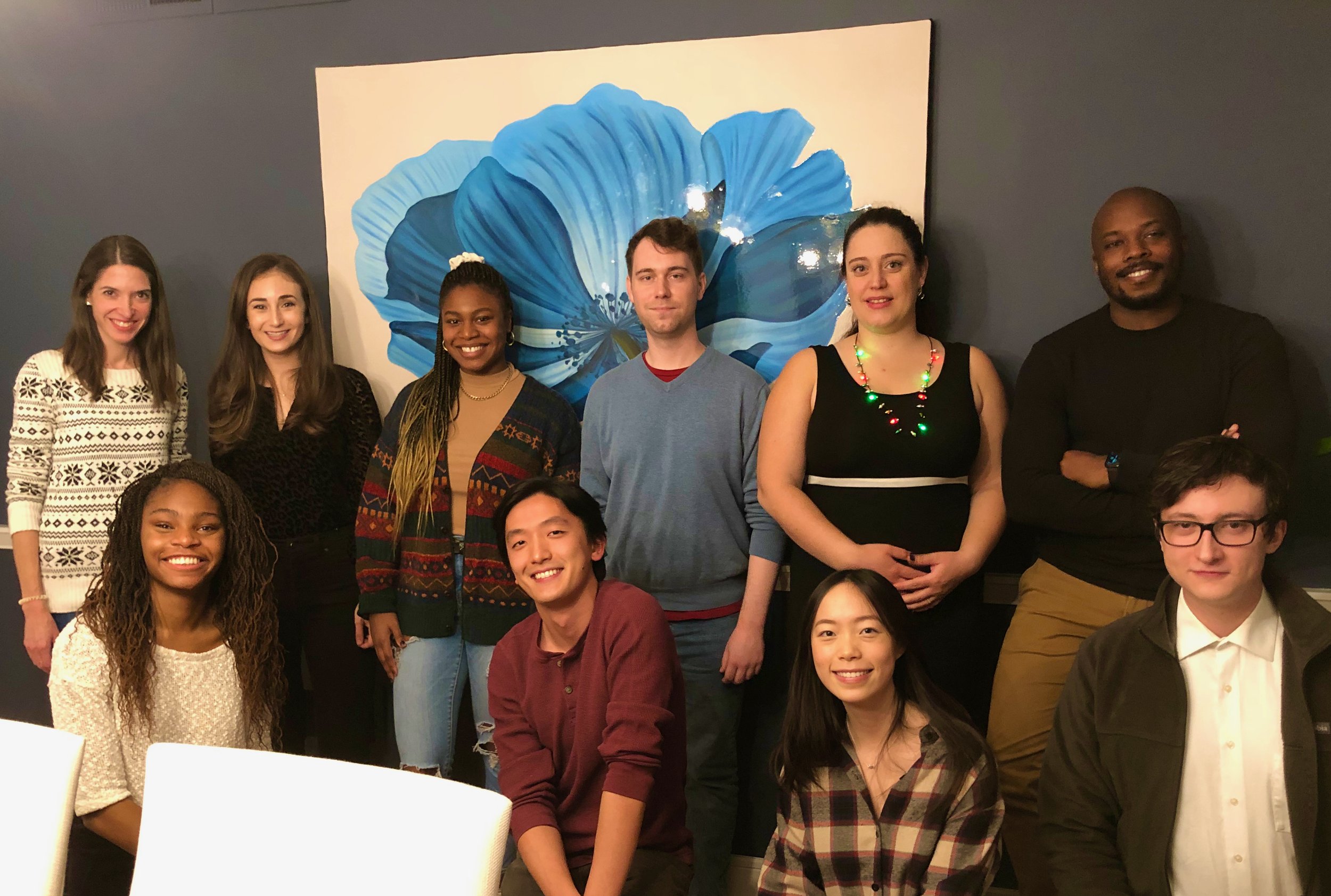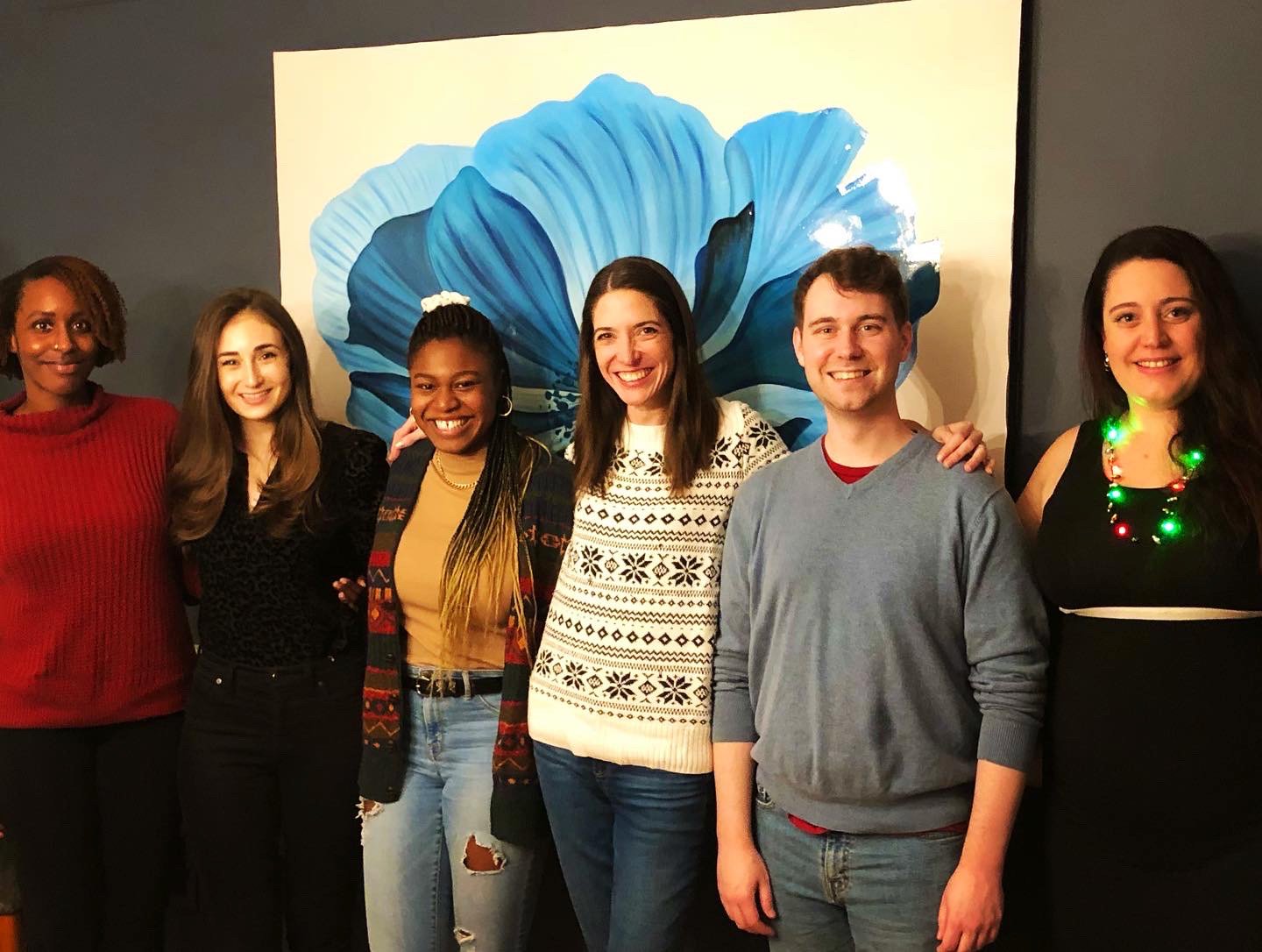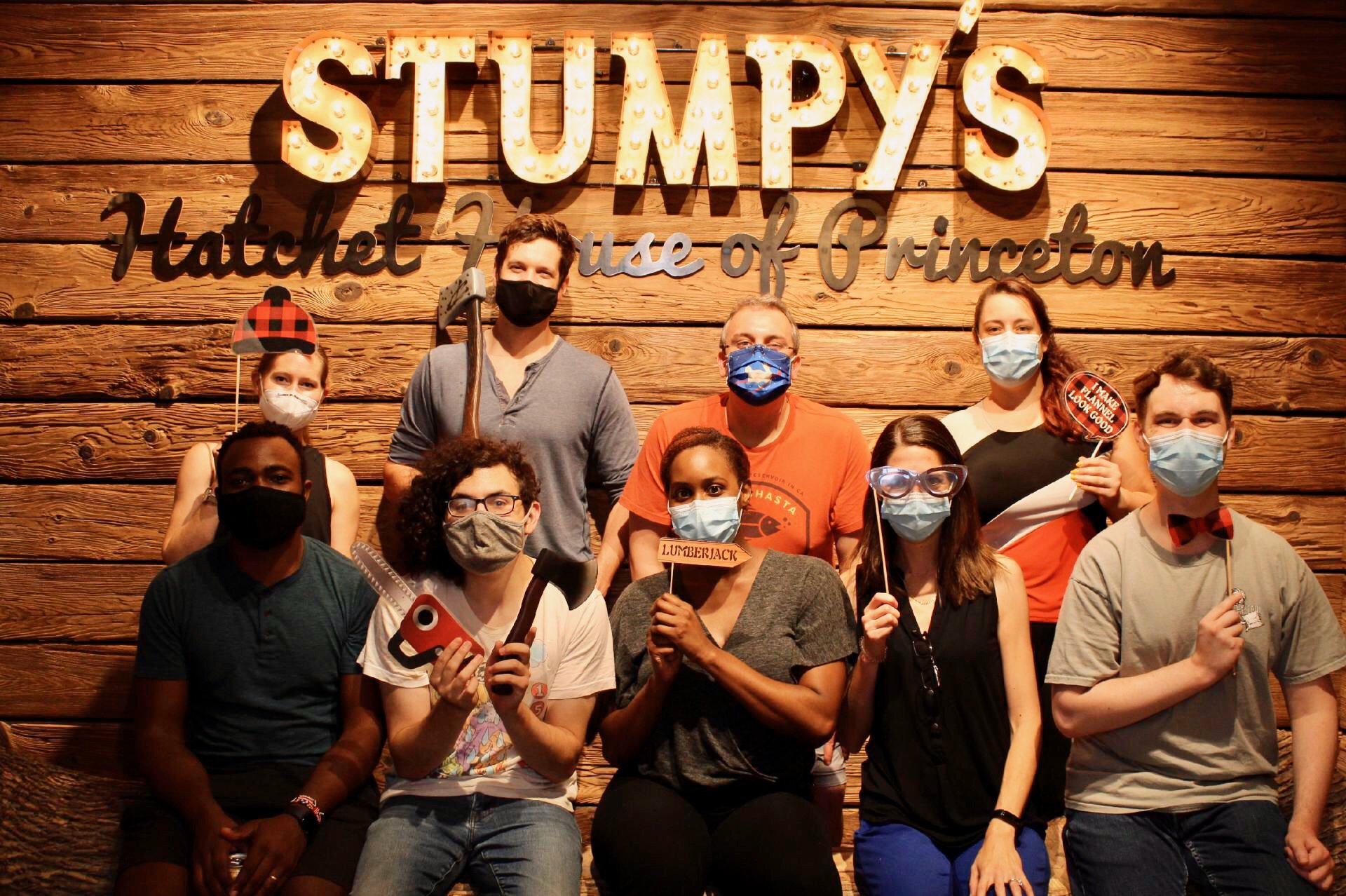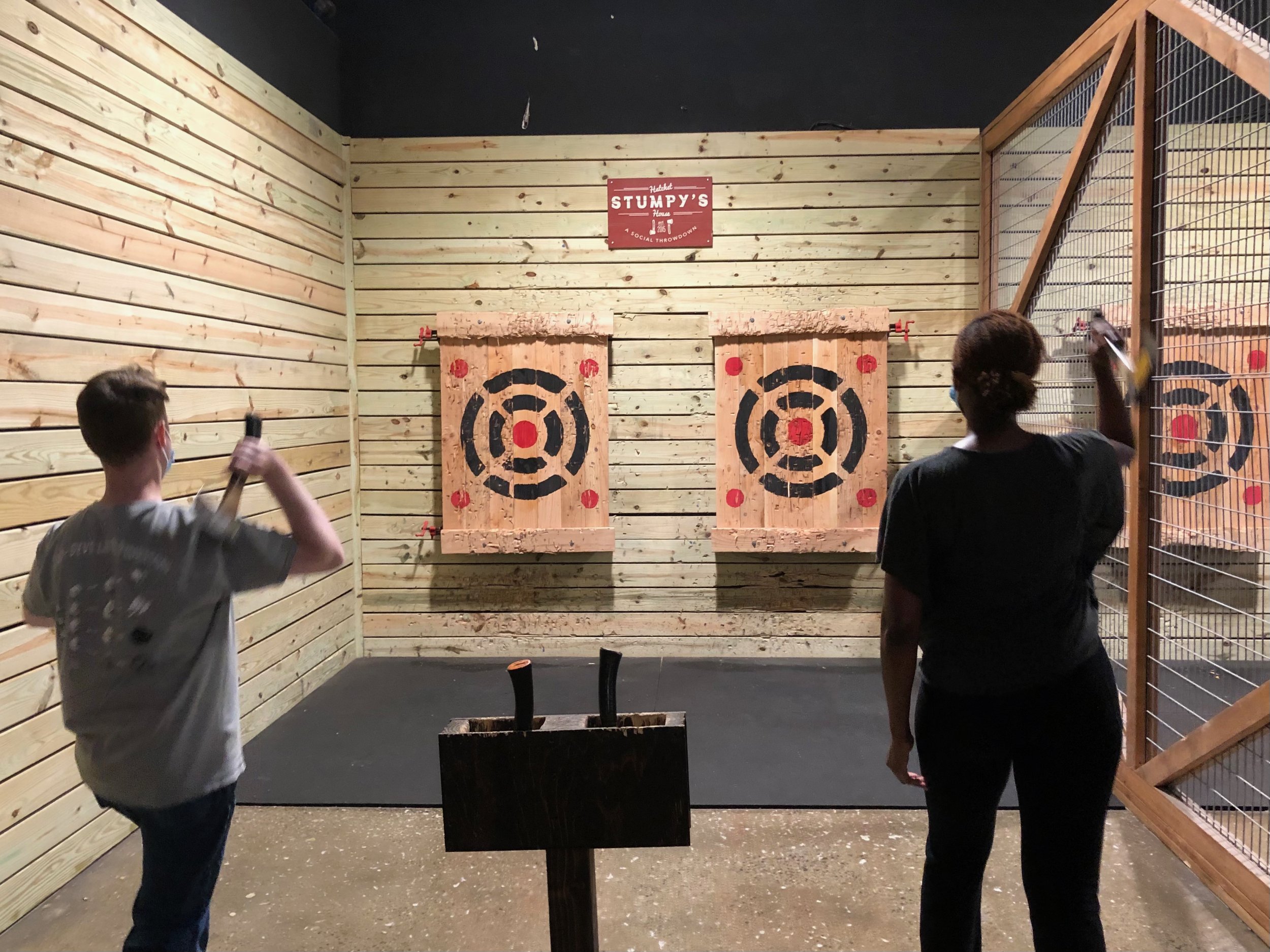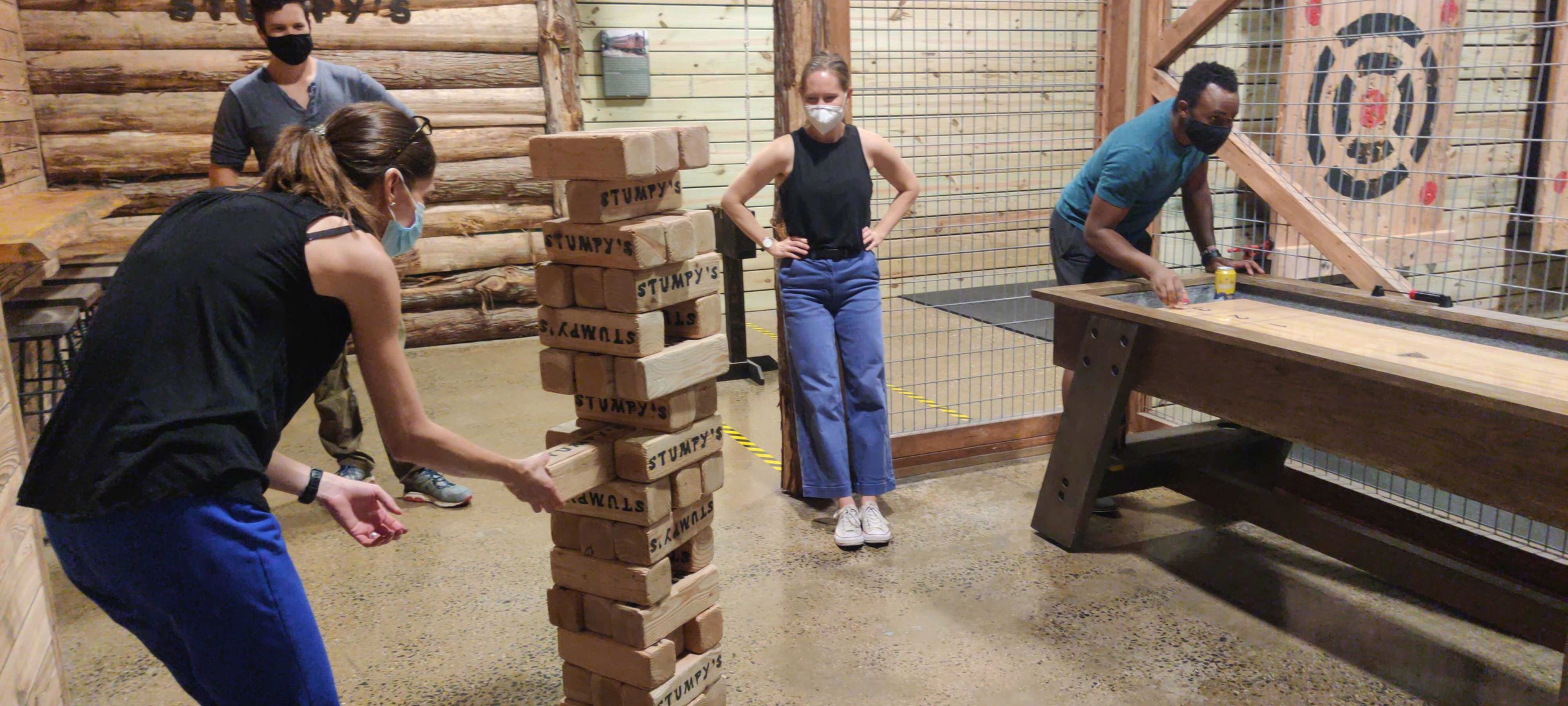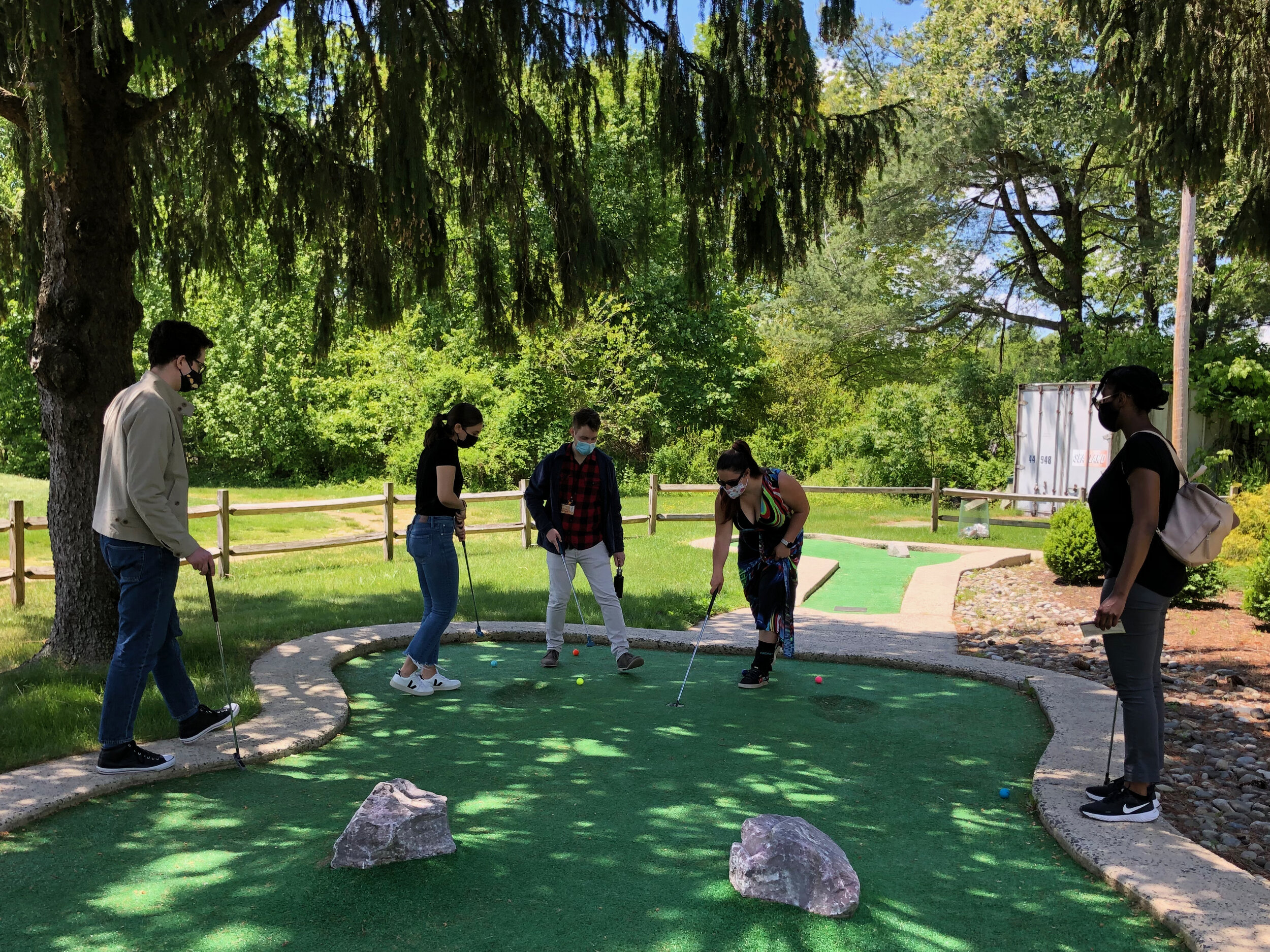September, 2025: Congratulations, Dr. Minerva, on a successful dissertation defense!
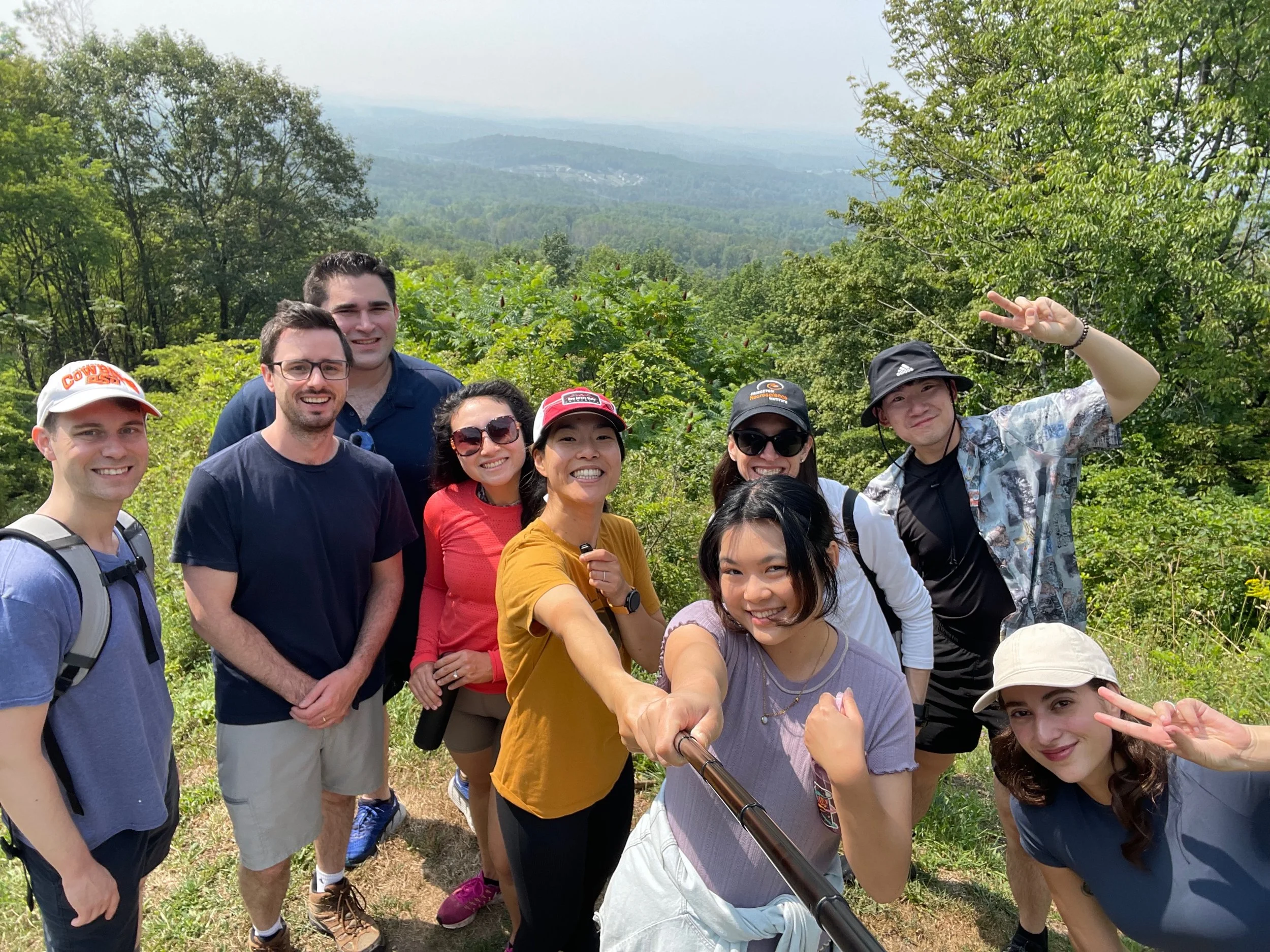

August 2025: Peña Lab retreat in the Catskills
Summer undergraduate research poster session - congrats to Alice and Sarah for their first-ever poster presentations!
June 2025: Lab games and send-off for Danielle
March 2025: Celebrating Forrest’s paper submission!
May 2025: Rebekah’s hooding
May 2025: Class of 2025 Senior send-off
May 2025: Class of 2025 seniors and their mentors
February 2025: The lab surprised Cate with a 6th anniversary cupcake cake in the shape of chromatin!
December 2024: Joint holiday party with the Krienen Lab
Peña Lab presented 4 posters and a symposium at the SfN 2o24 annual meeting!
Cate also received the 2024 Young Investigator Award.
Established in 1983, the Young Investigator Award recognizes the scholarship and achievements of exceptional early career neuroscientists.
“I am deeply honored to receive this award,” Peña said. “And I’m incredibly proud of the hard work my team has put in to pursue these important questions.”
Peña is the first Princeton faculty member to earn the honor, and joins a distinguished list of past recipients, including Nobel laureate Ardem Patapoutian, Ph.D., popular science writer Robert Sapolsky, Ph.D., and optogenetics inventor Karl Deisseroth, M.D., Ph.D., among many other trailblazing researchers.
Photocredit (2,3,9): Society for Neuroscience
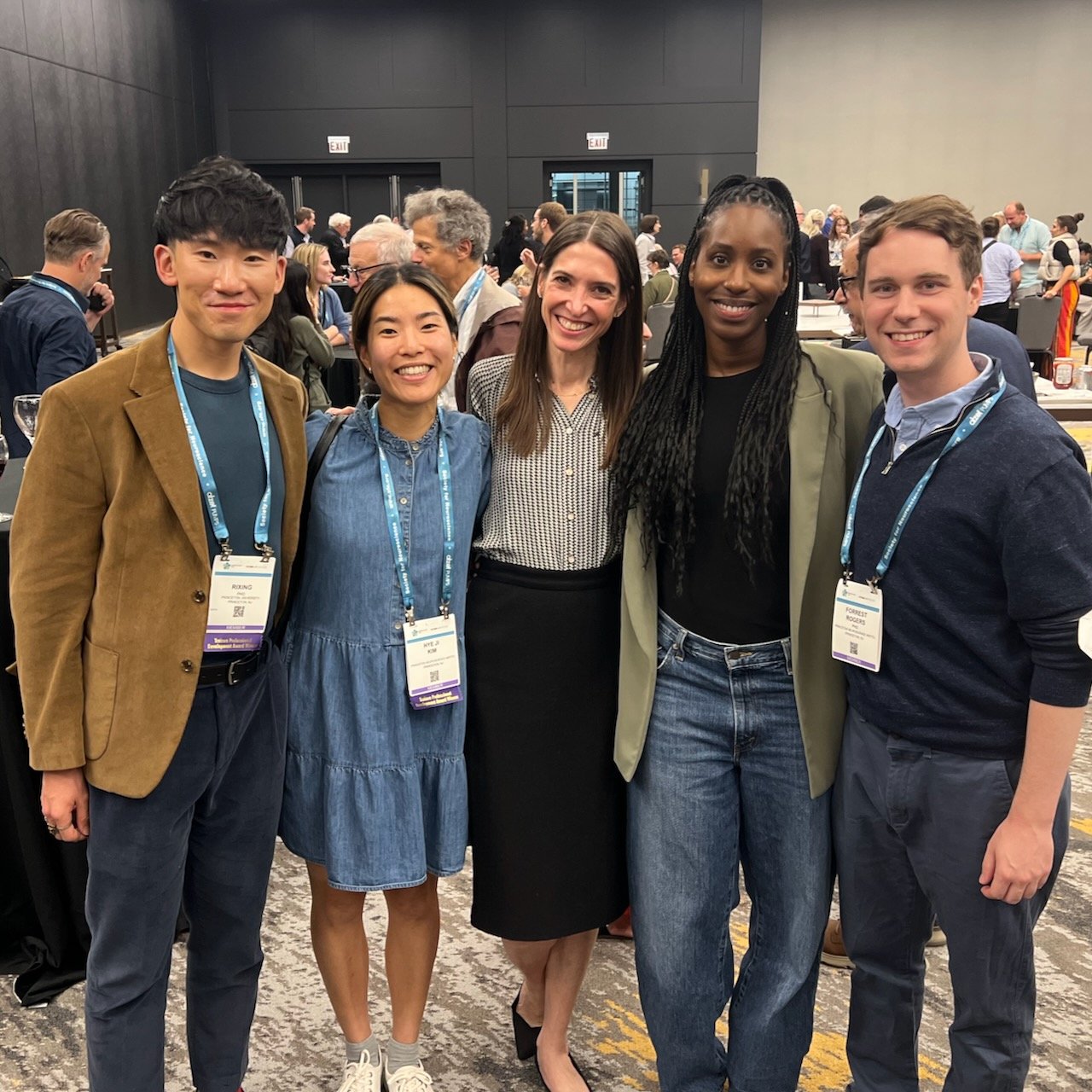

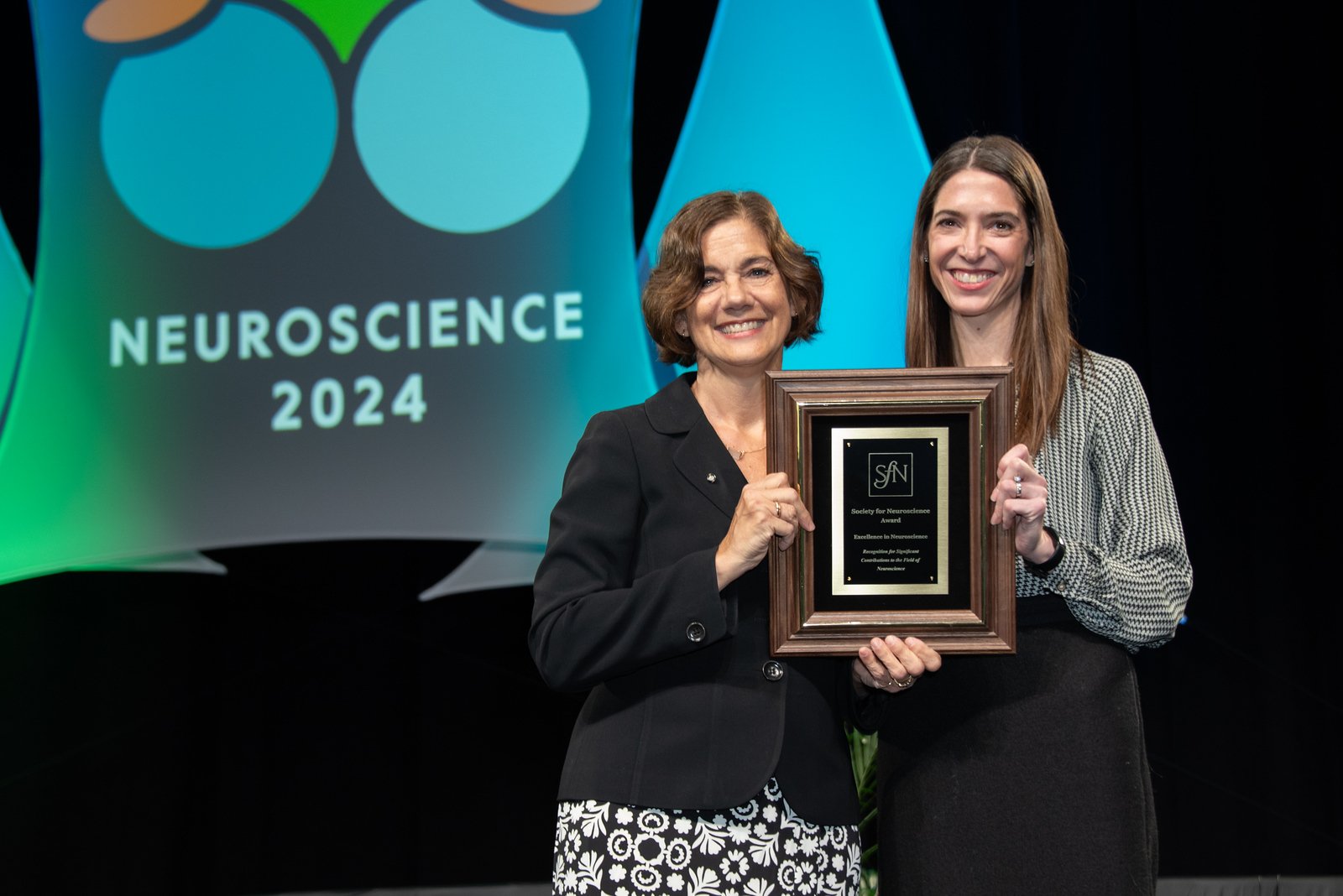
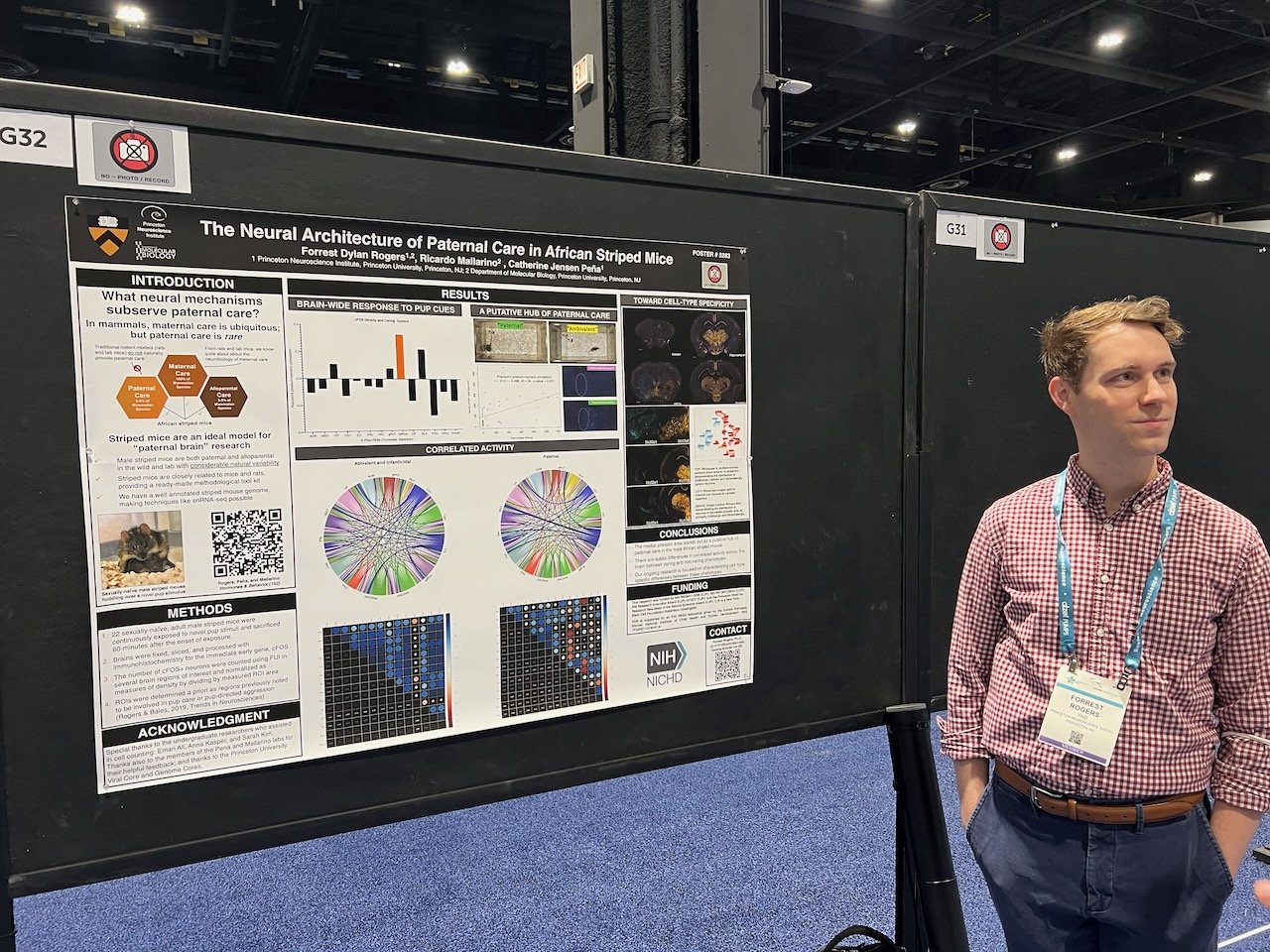
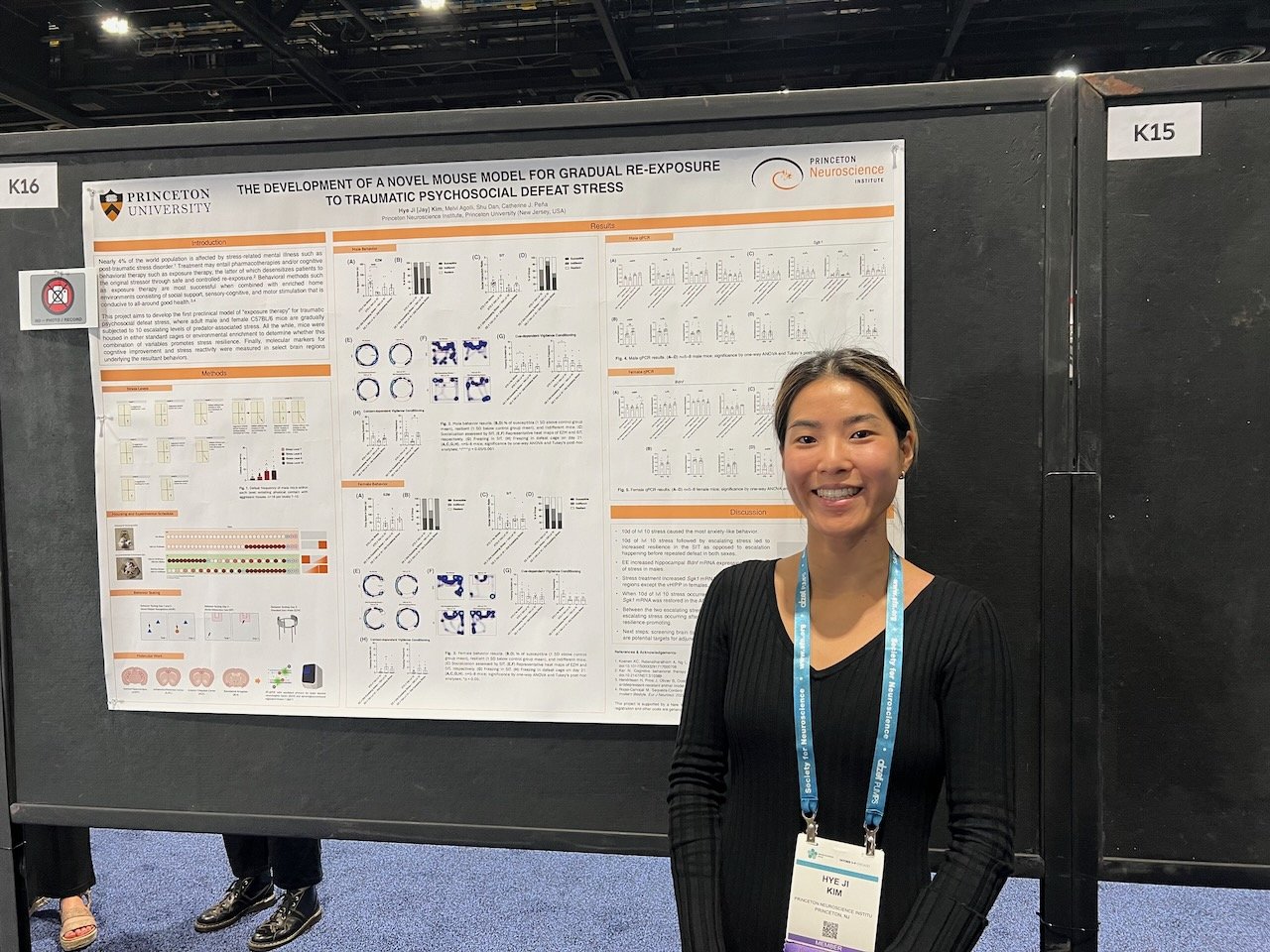
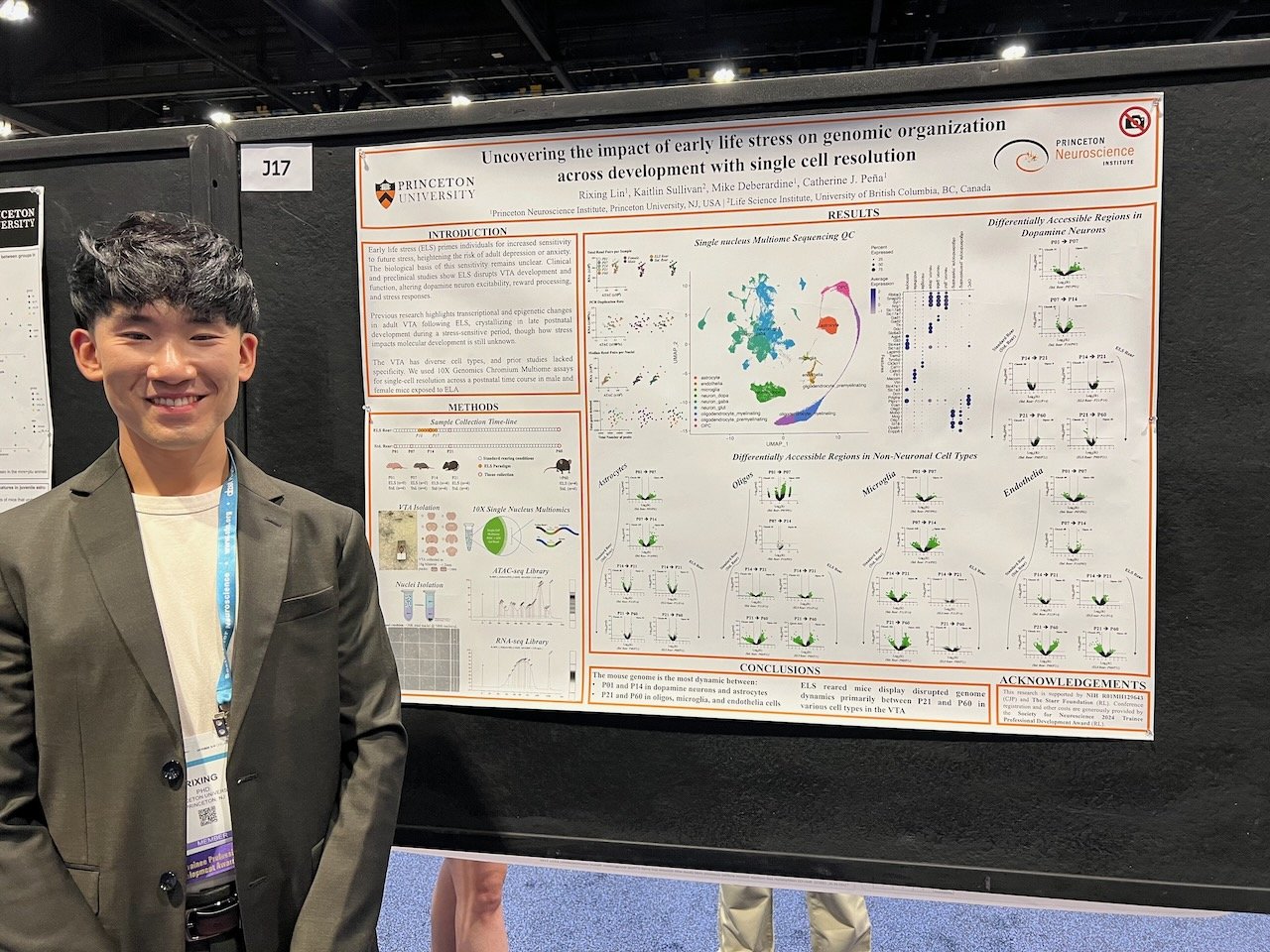
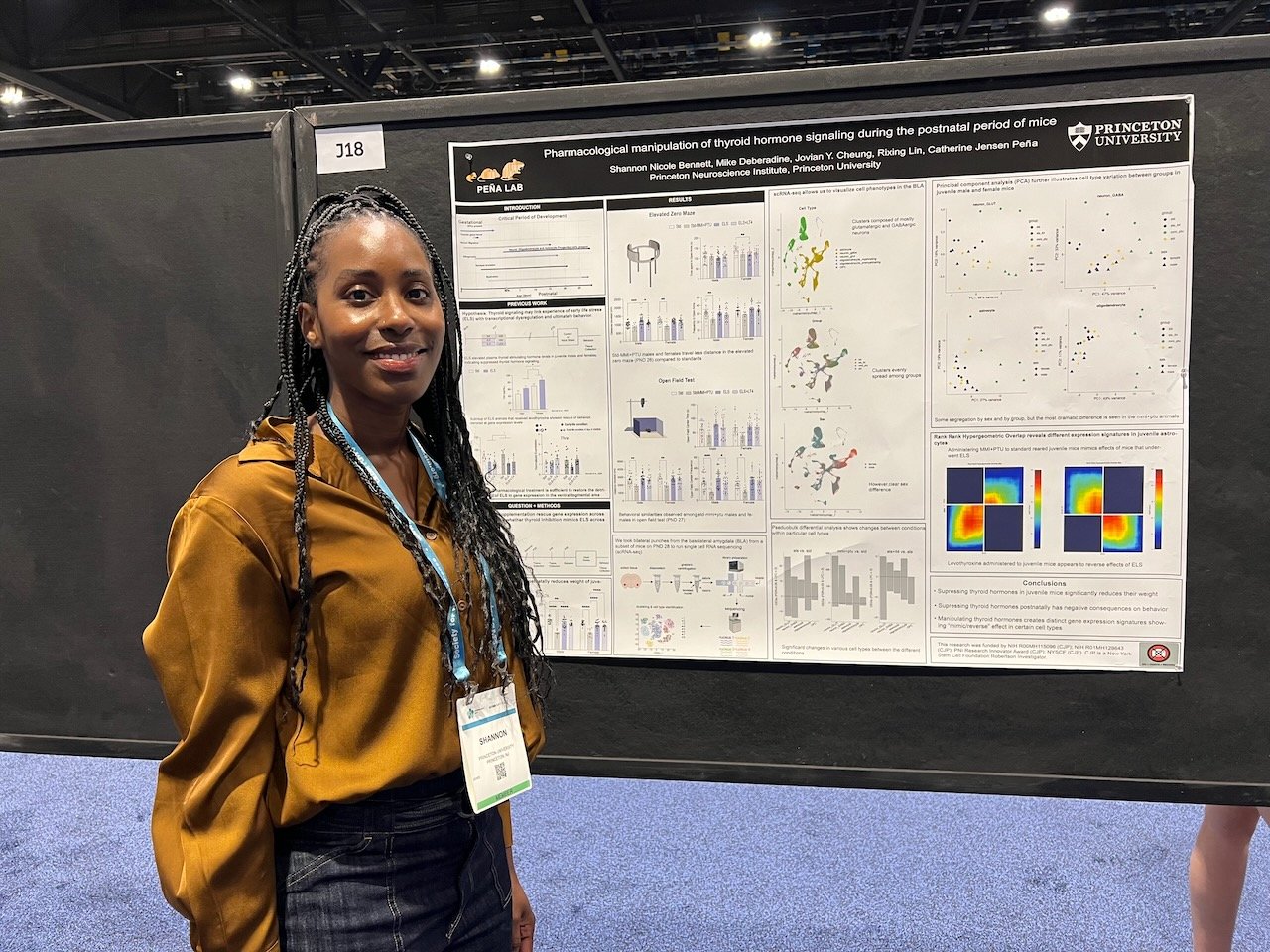
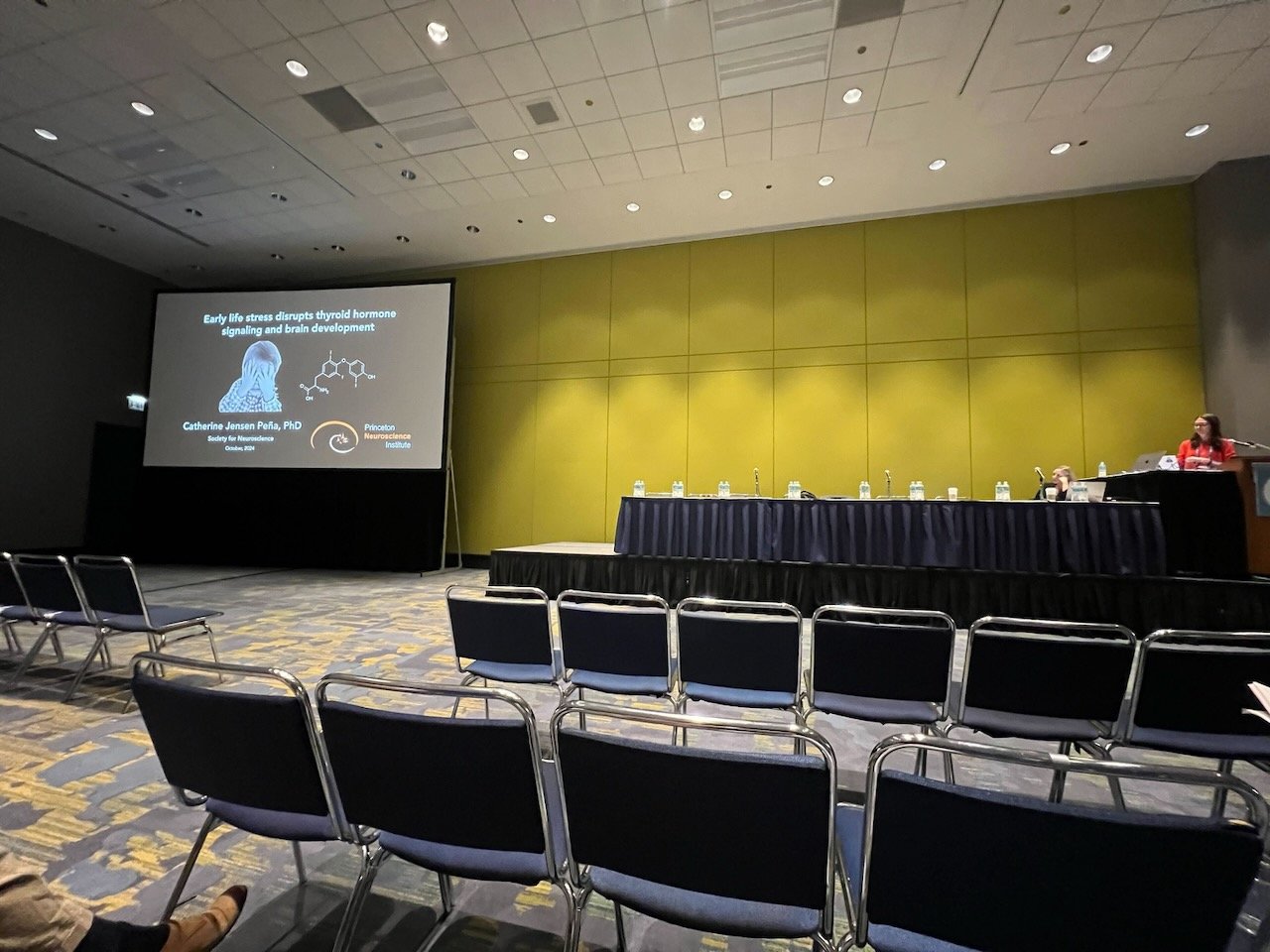

Summer 2024 lab kayaking
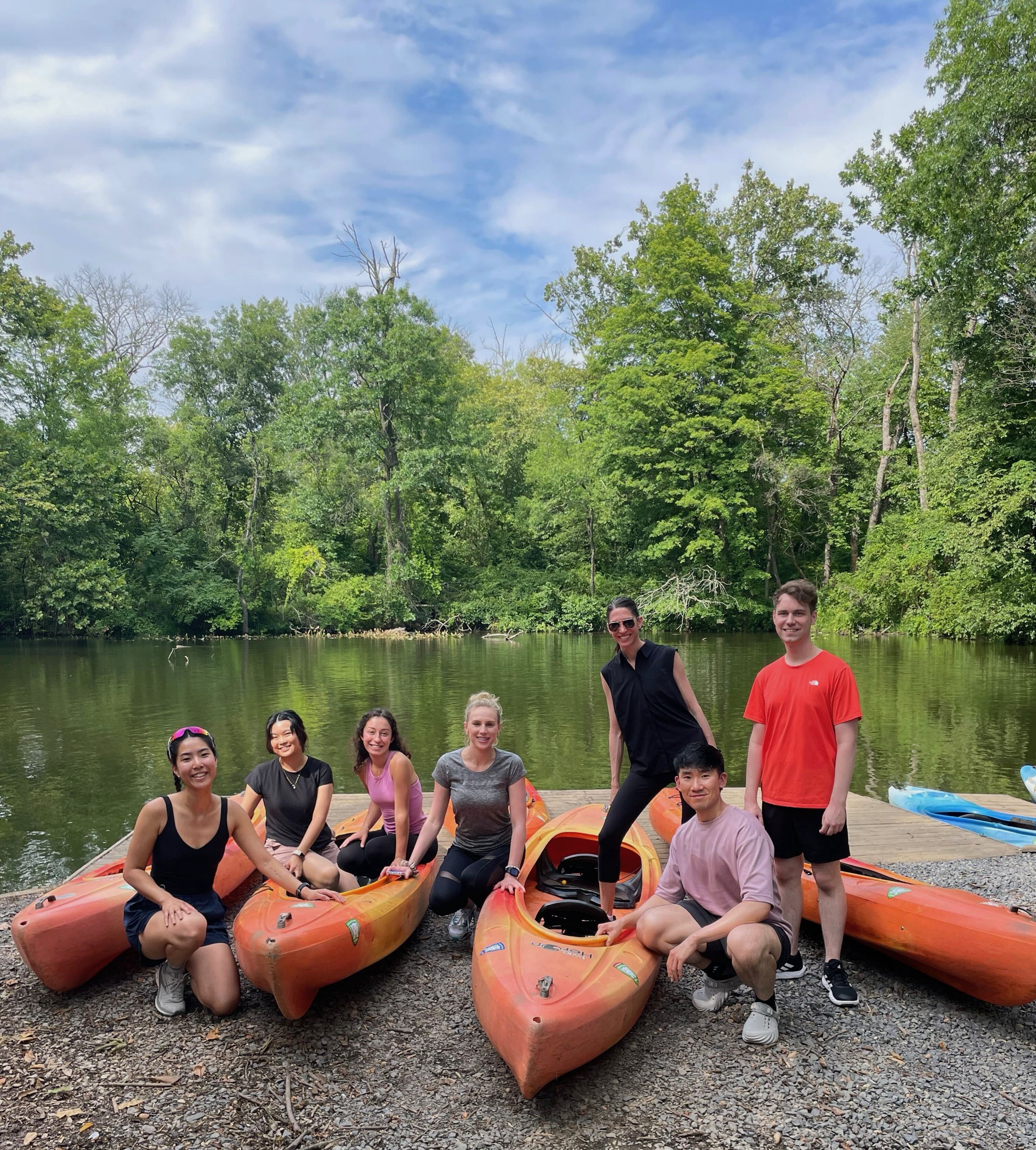
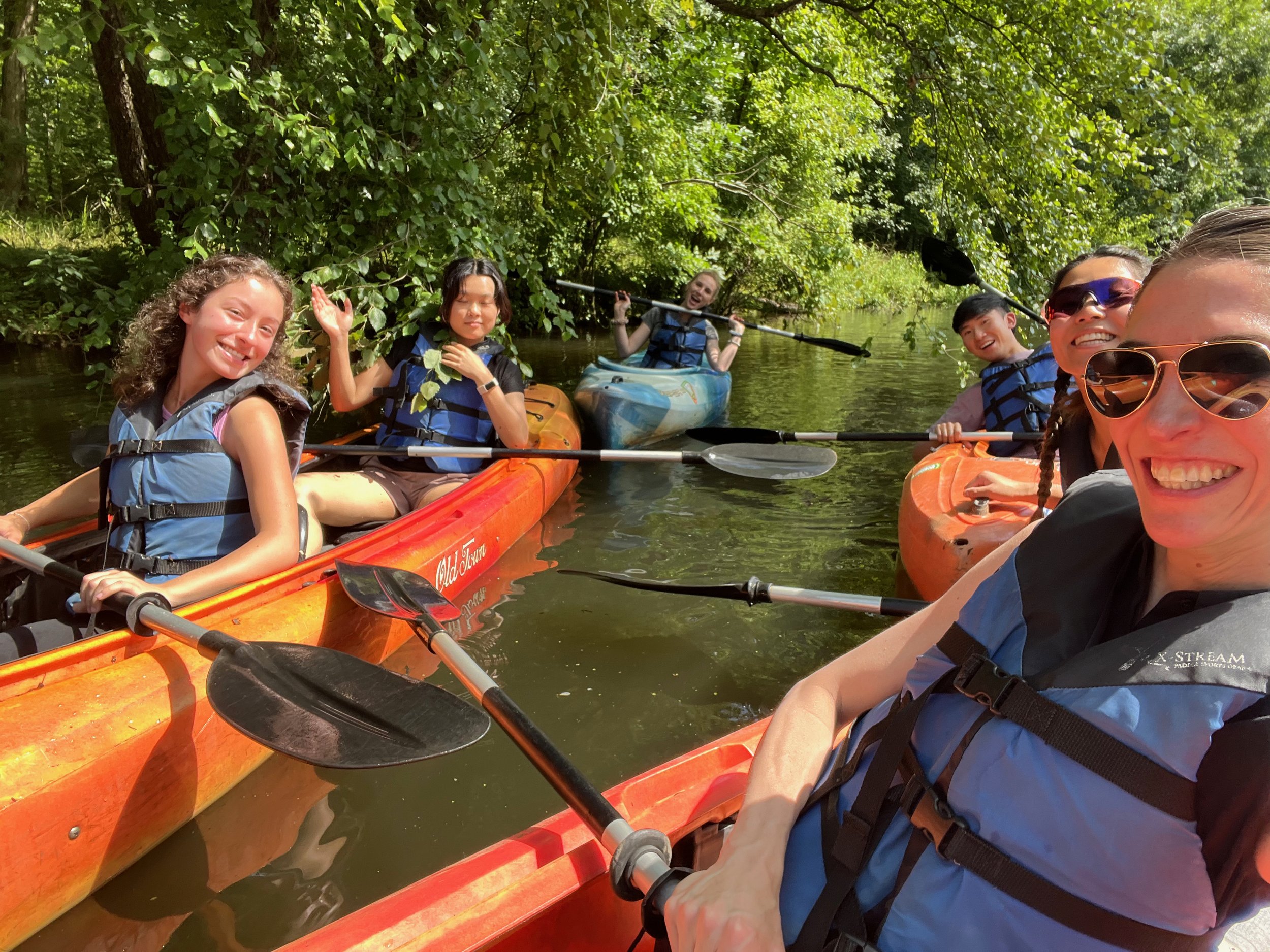
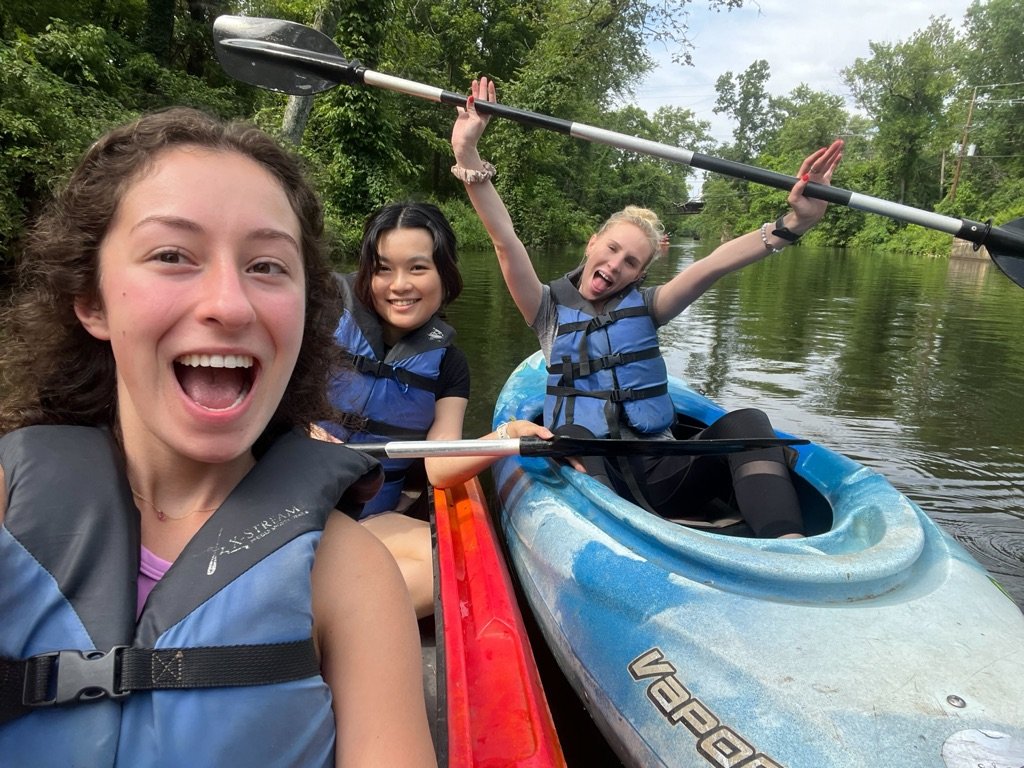
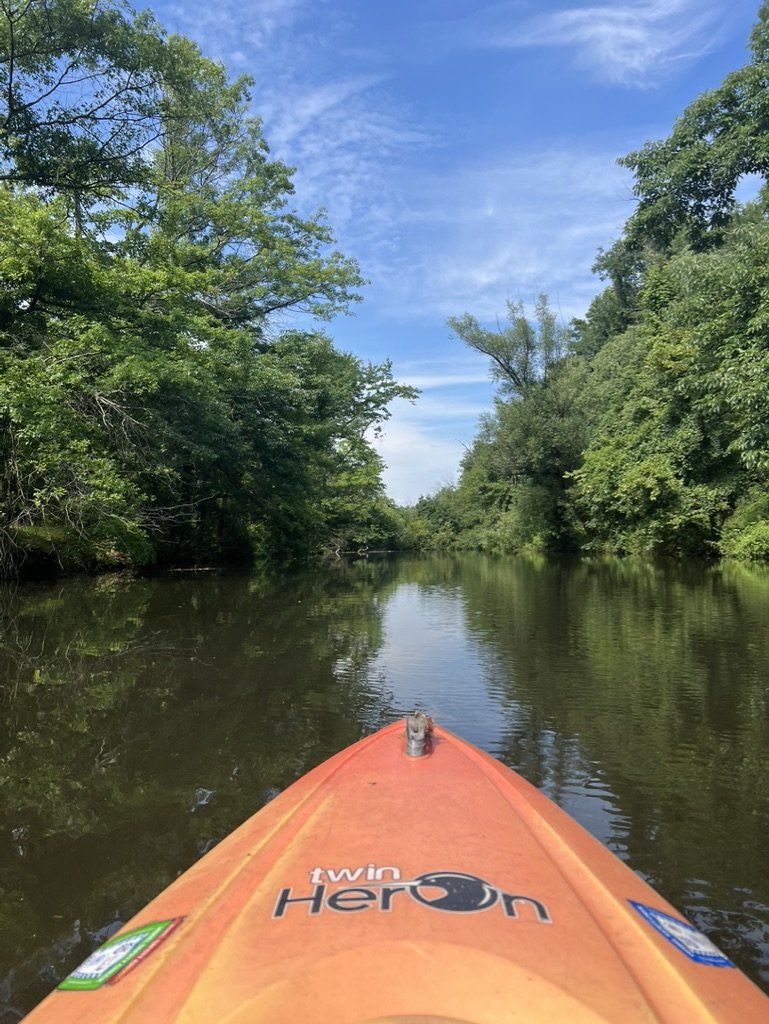
Congratulations to Rebekah for defending her PhD! #PHinisheD
Celebrating Kaitlin’s time in lab and eventual return as a postdoc!
Celebrating Jovian’s NSF GRFP with the Falkner lab!
The lab celebrates Pi Day 2024! (Pizza pi not shown)
Congratulations to Dr. Sero Parel, first graduated student from the lab!
SfN dinner 2023
Peña lab Fall Fête 2023
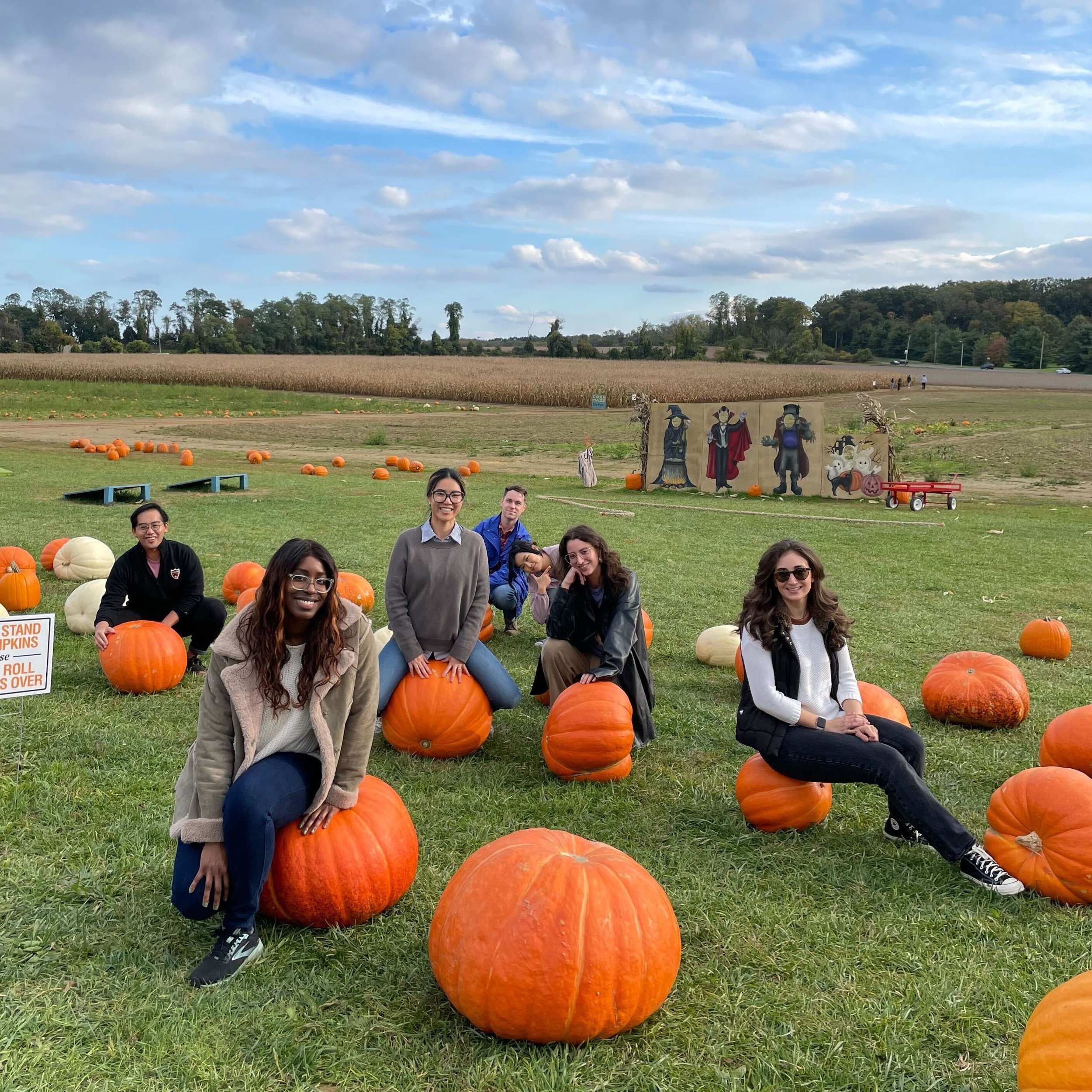

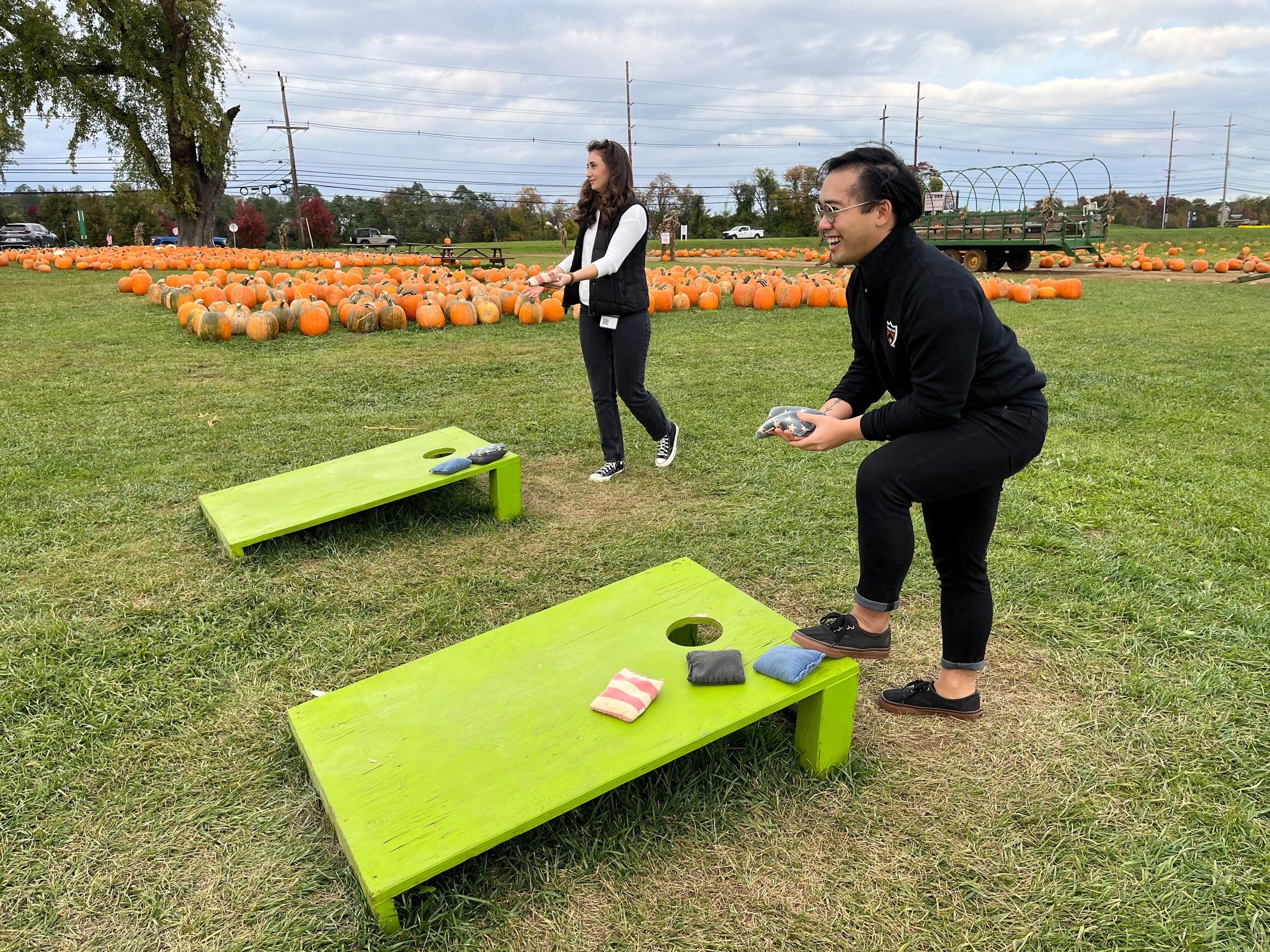

Congrats to graduate student Rebekah Rashford for giving the Developmental Biology Colloquium in October, 2023!
Congratulations to postdoc Rixing Lin for being awarded a C.V. Starr Fellowship from Princeton Neuroscience!
Cate at the Fall Wxmen in STEM event with Princeton CST
Congratulations to Forrest on receiving an F32 Postdoctoral NRSA from NICHD!
Summer 2023: Celebrating 3 (!) papers accepted in the lab, and welcoming Rix!
Charty Party afternoon lab games
Congratulations to Dr. Forrest Rogers for the New Investigator Award from the Society for Behavioral Neuroendocrinology!
Cate, Dr. Sarah Kocher, Dr. Deena Walker, and Dr. Kerry Ressler spoke at SBN 2023 on the role of thyroid hormones in development, stress, and social behavior
Congrats to our graduating 2023 seniors, Luke, Cindy, and Dana! Luke has been with the lab for four years and is off to Columbia for graduate school!
Feb 2023: Celebrating the lab’s 4th birthday with pottery painting in town
Send-off party for Julie-Anne Balouek
Joint Peña and Mallarino Labs Holiday Party
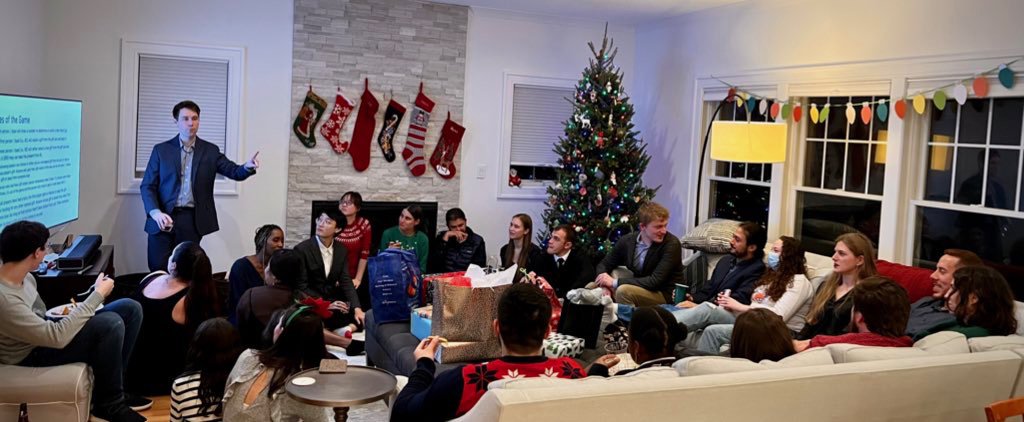
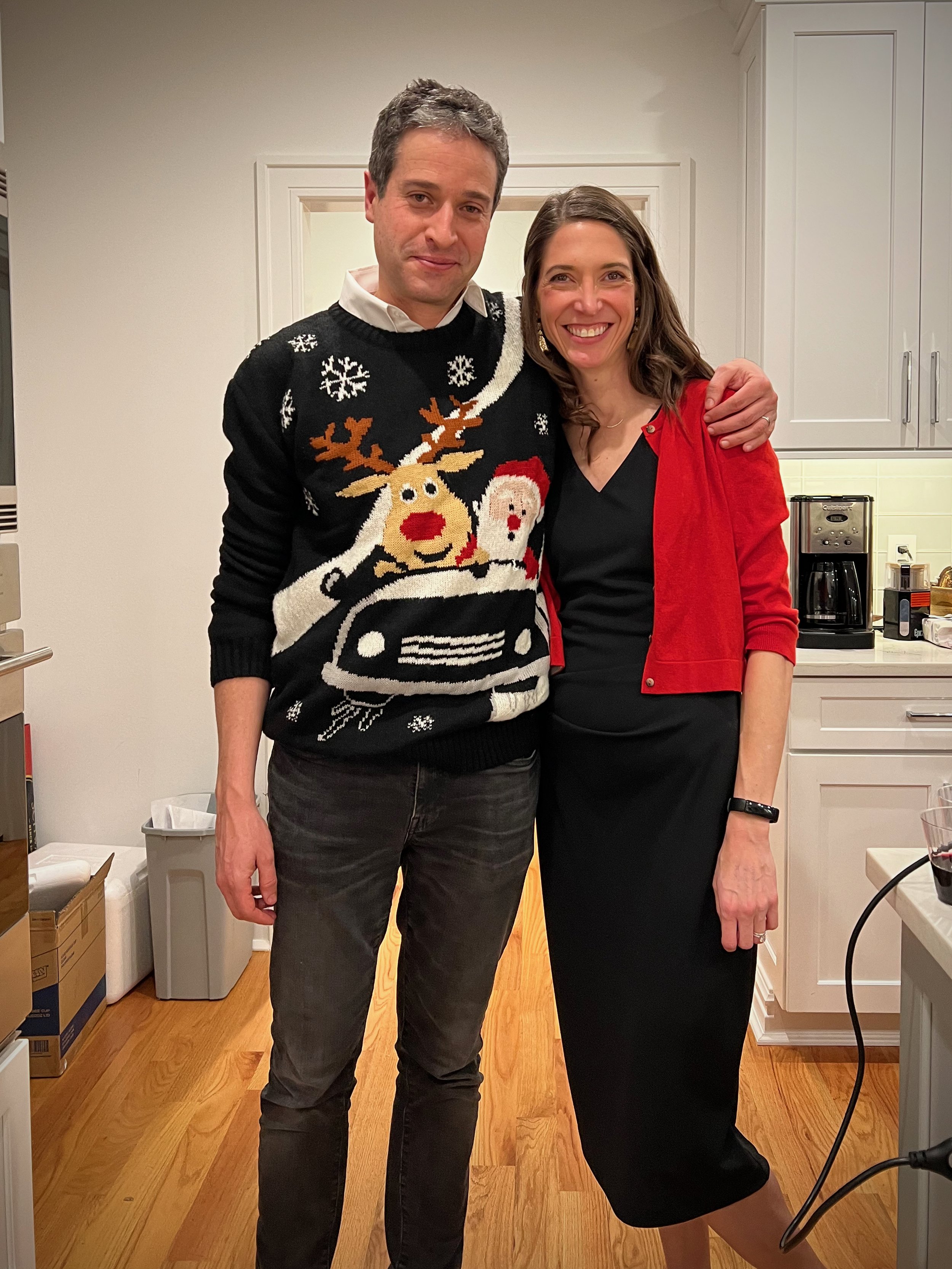
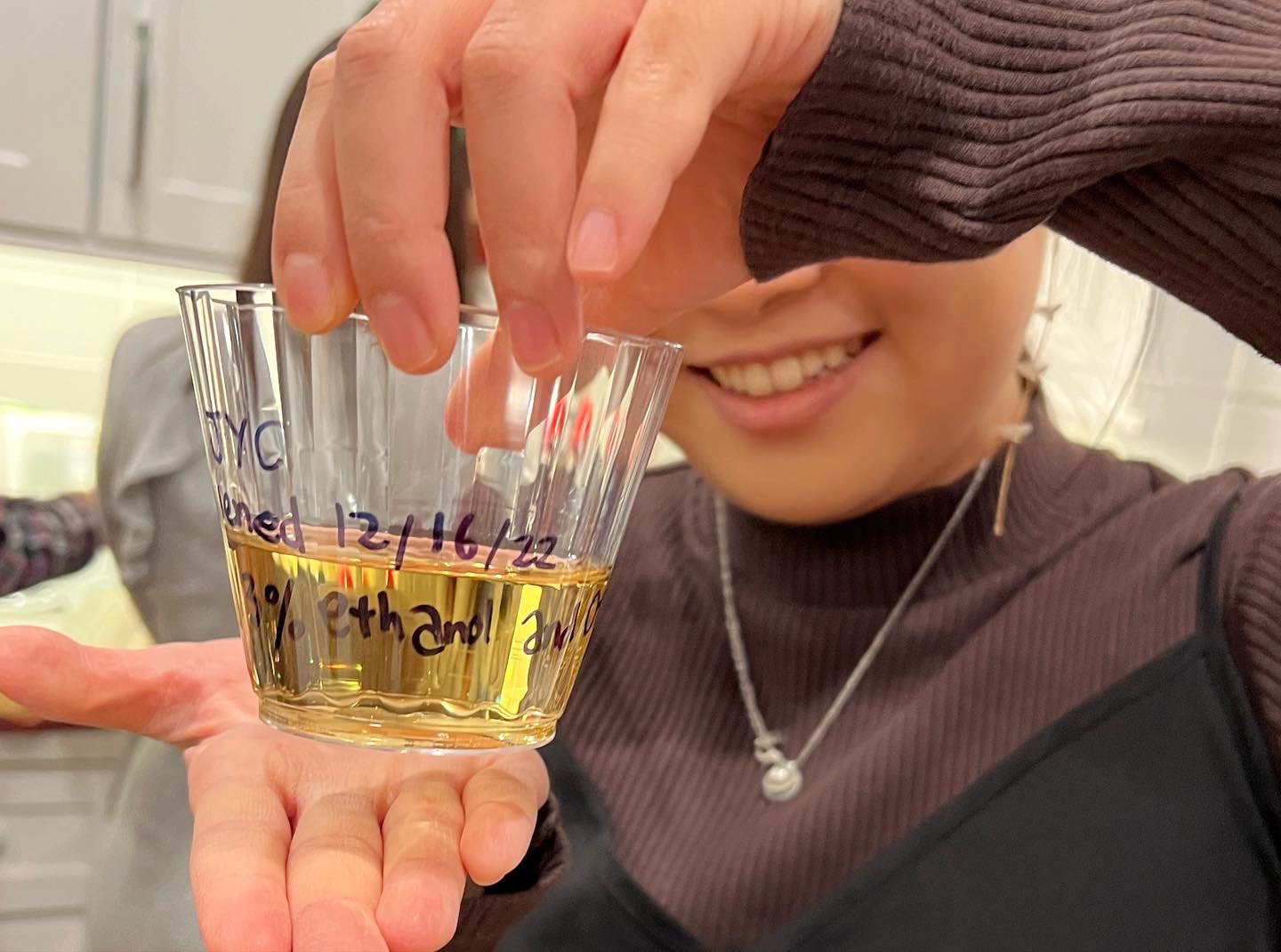
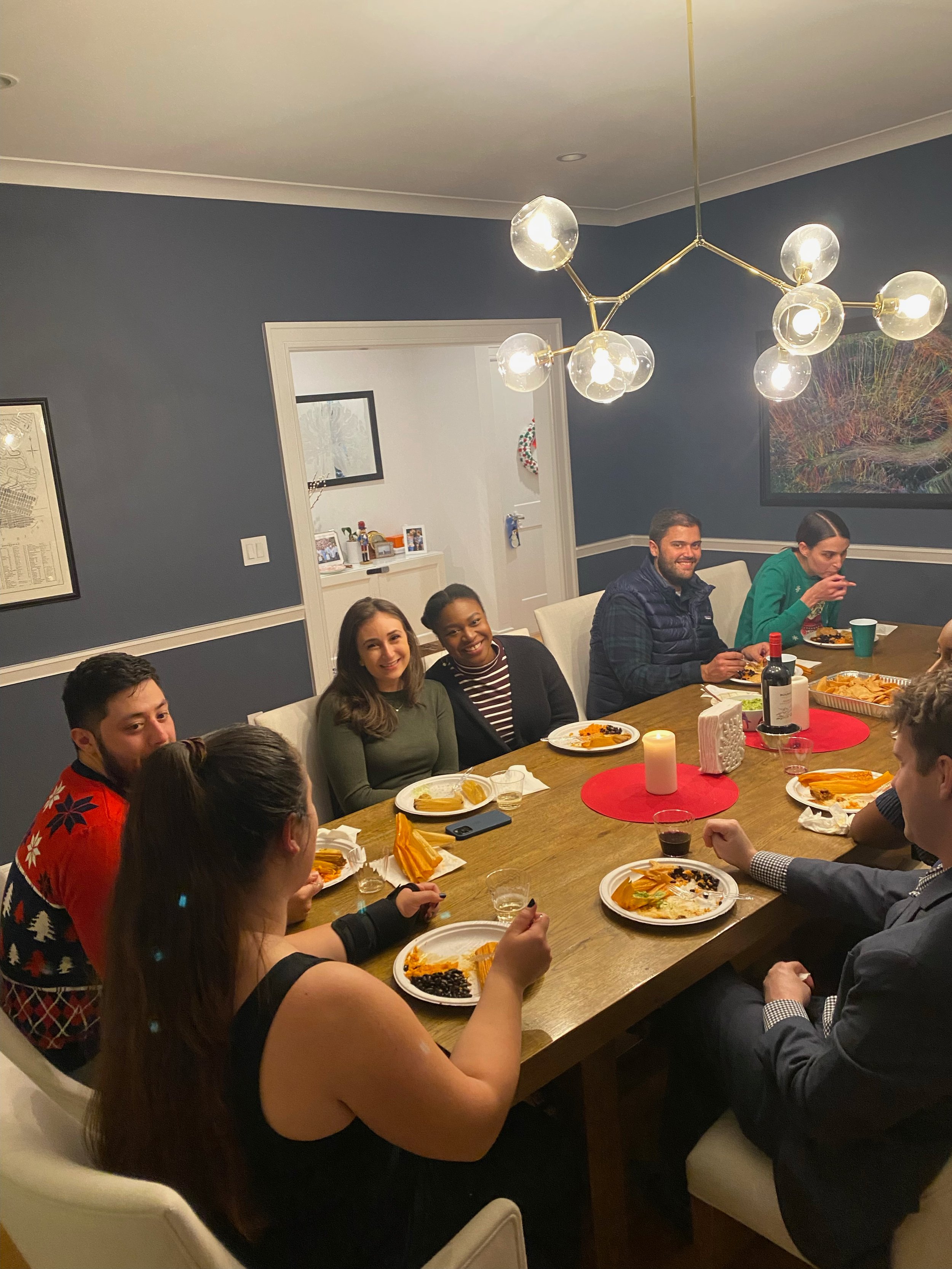

SfN 2022
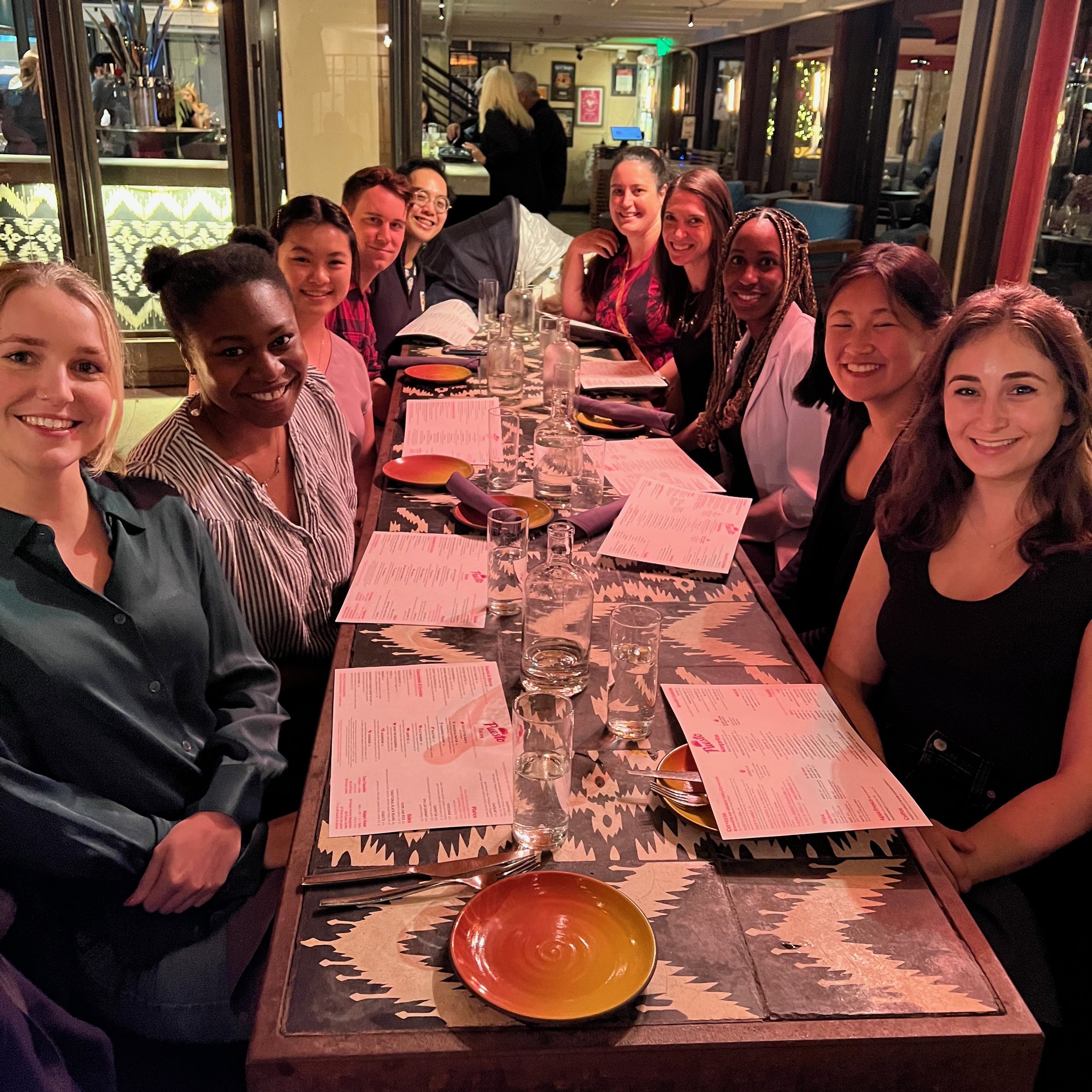
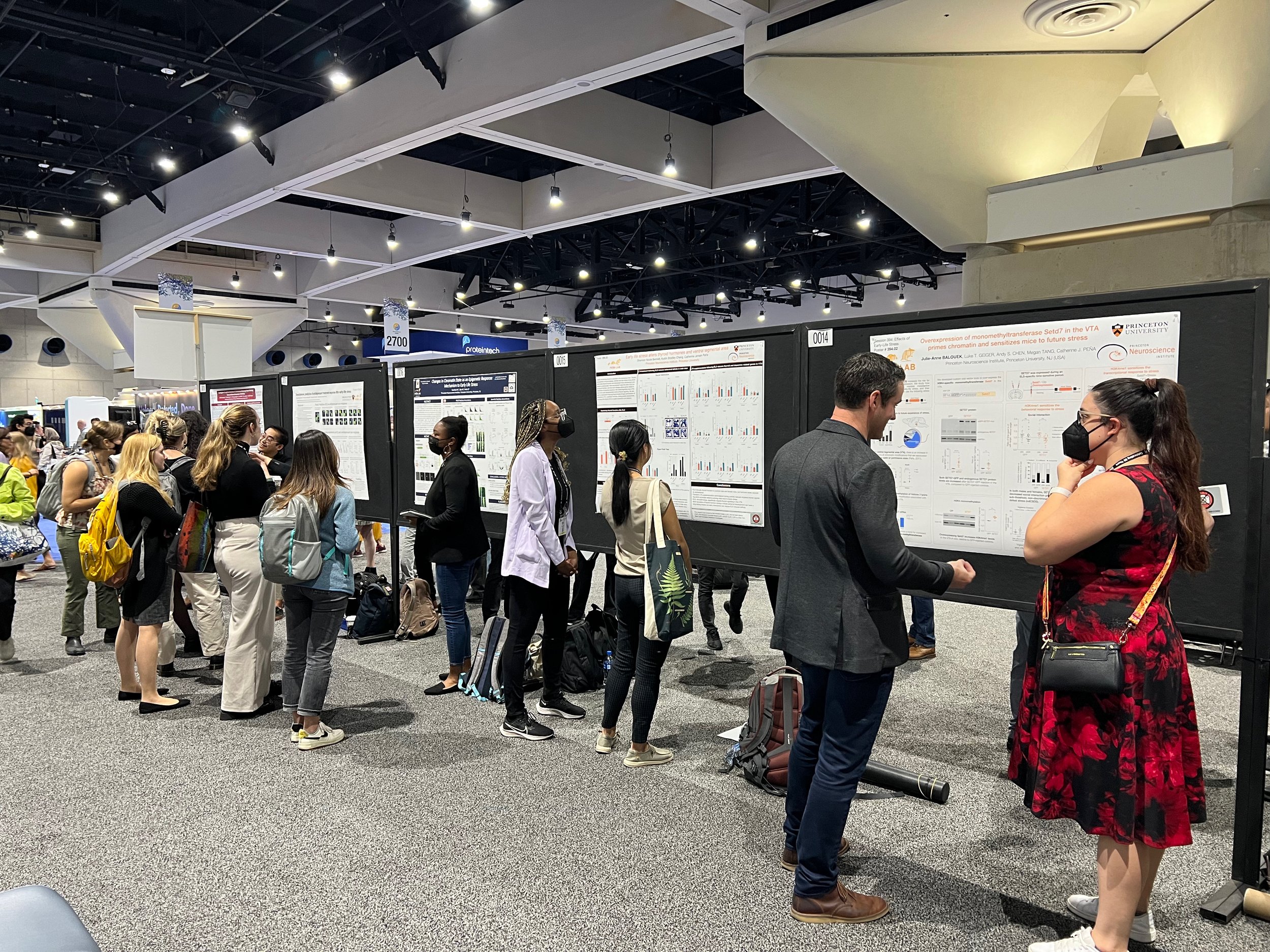
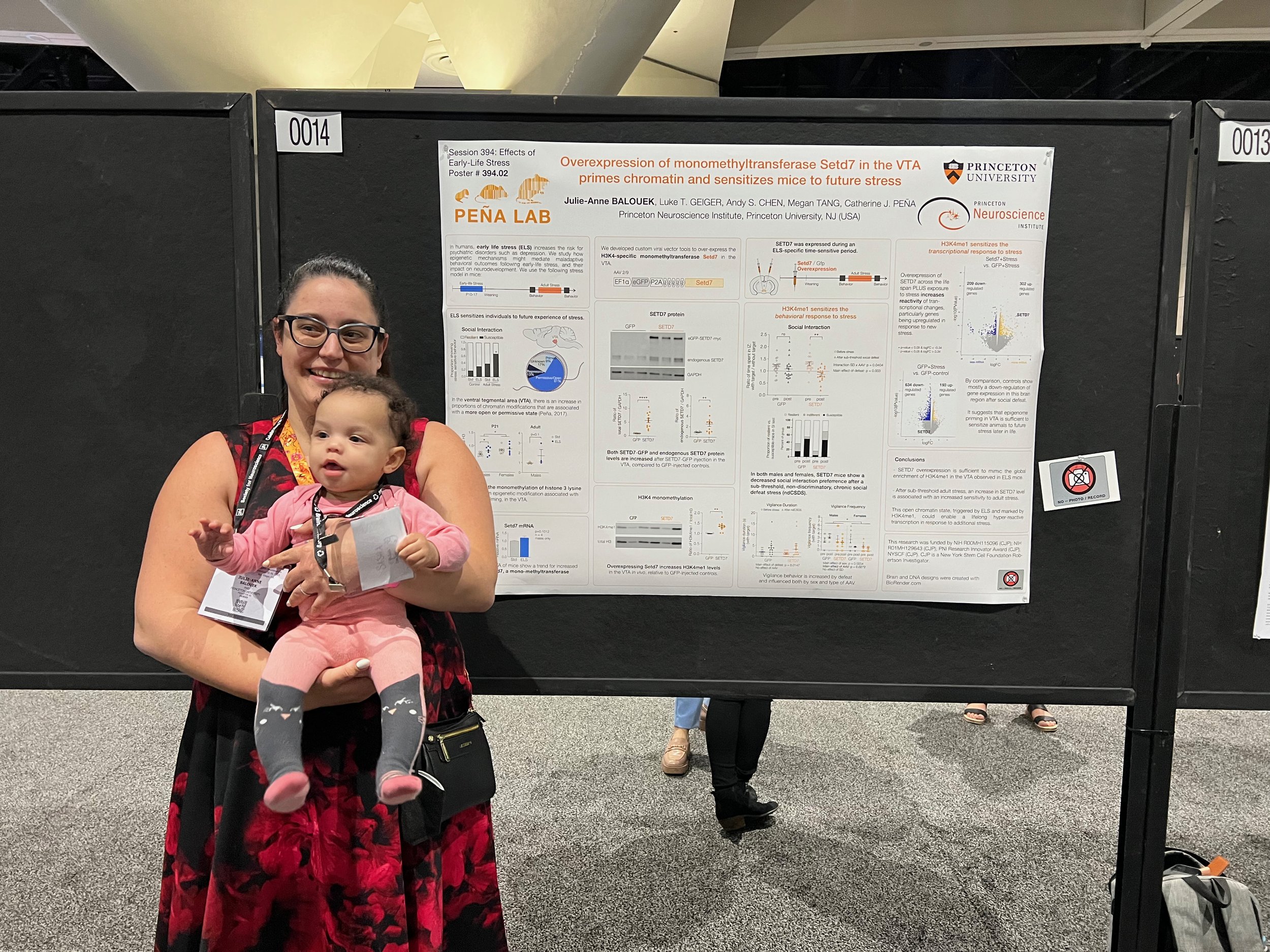
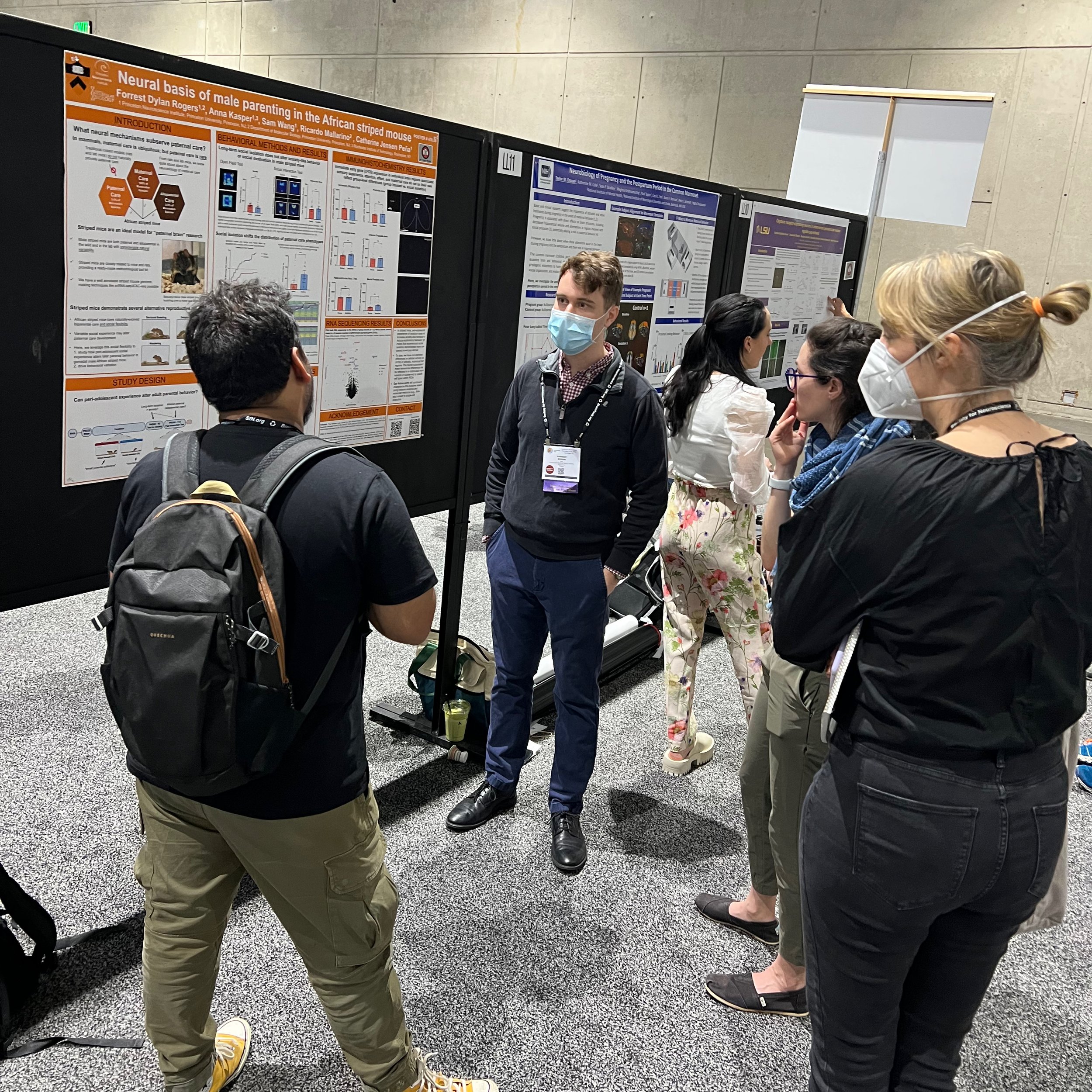
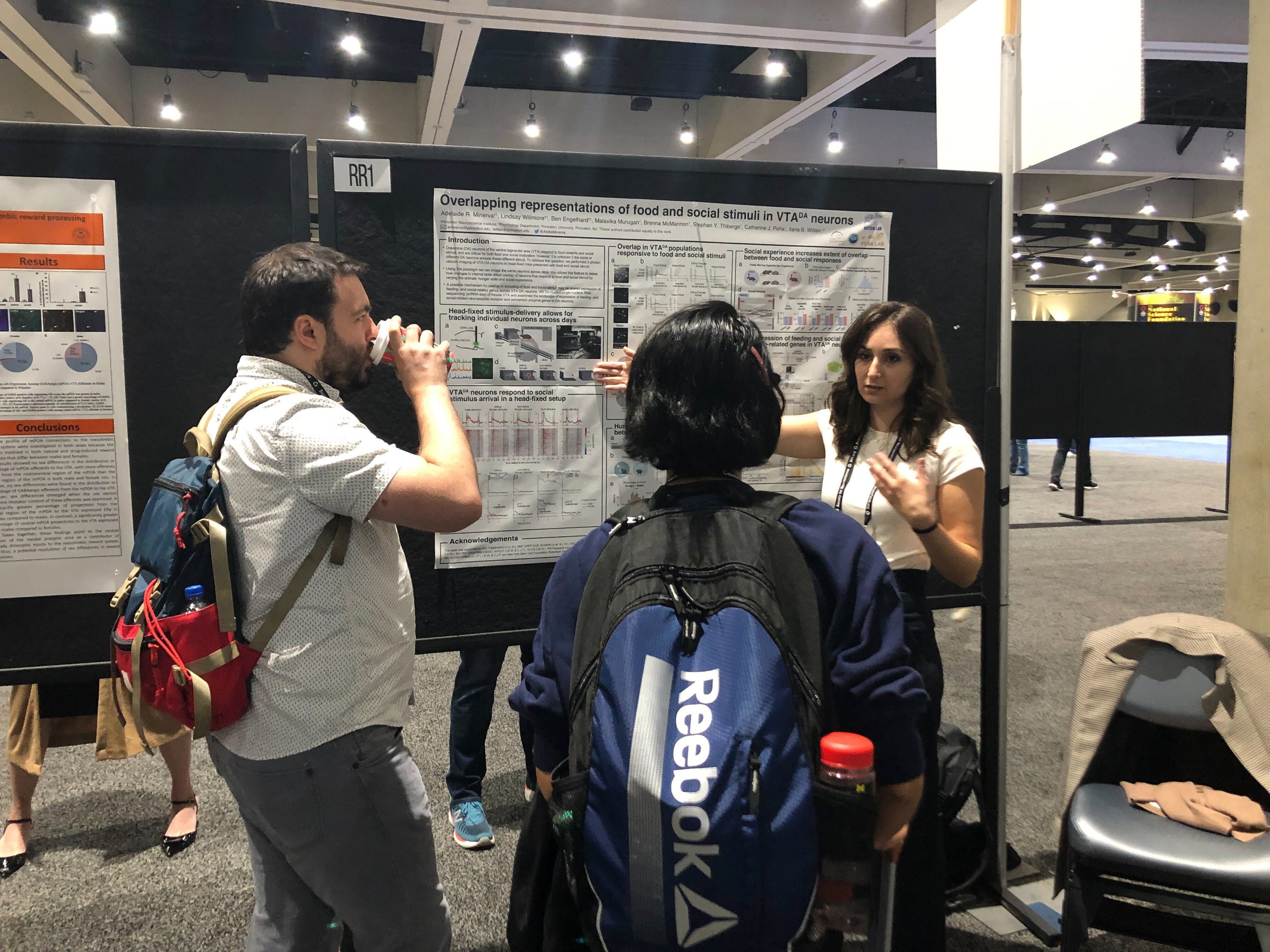
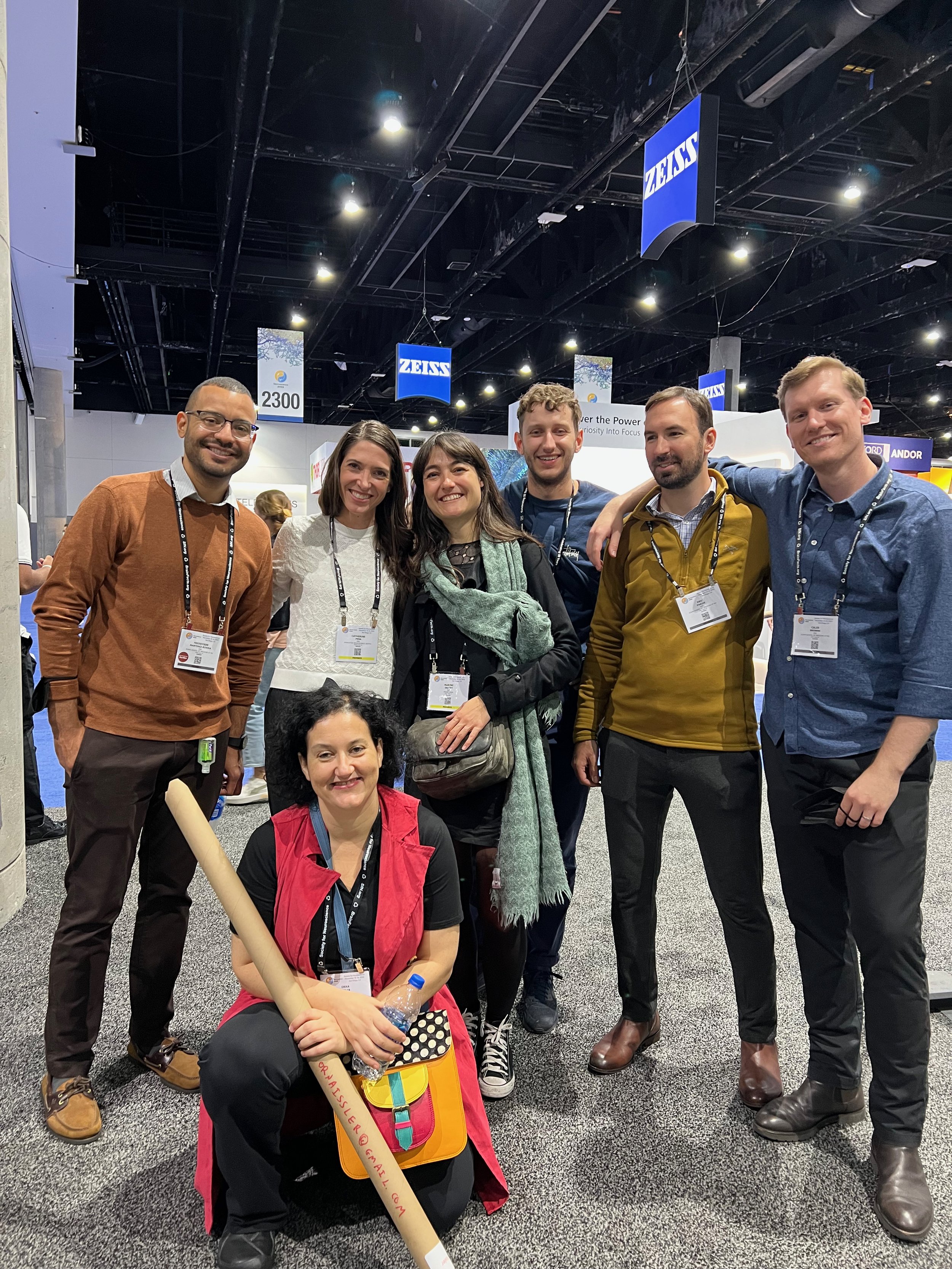
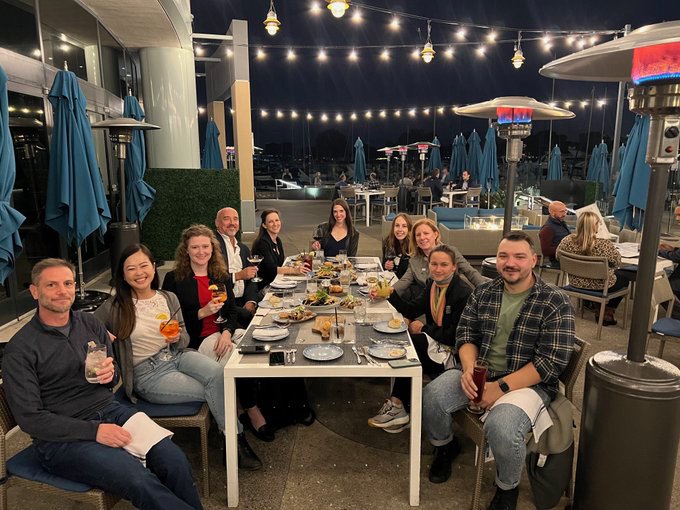
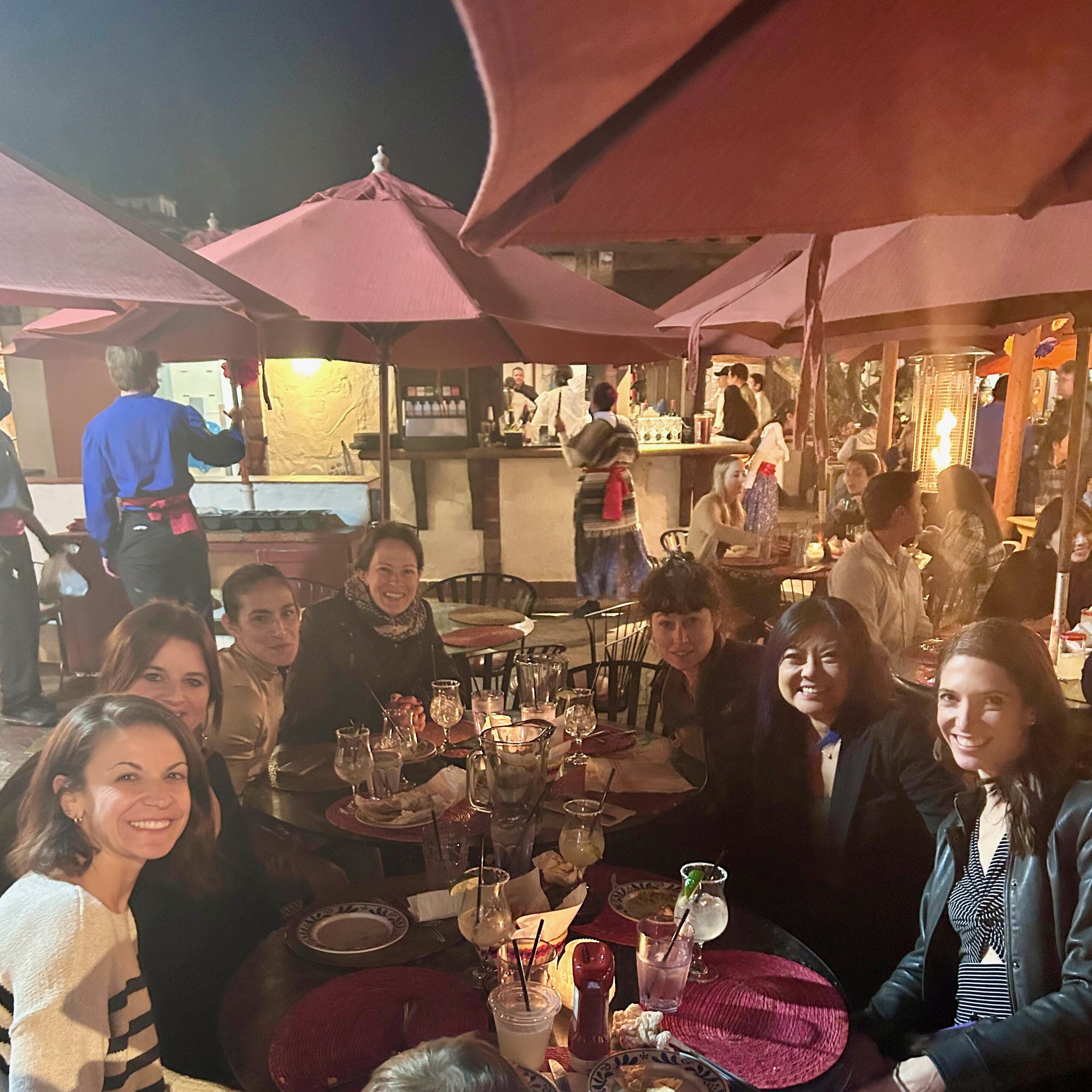
2022 New York Stem Cell Foundation Robertson Investigators announced: https://doi.org/10.1016/j.stem.2022.11.005
Postdoc Forrest Rogers was selected to attend the CHSL High-Throughput Neuroanatomy course, October 2022!
Lab alumna Anne-Elizabeth Sidamon-Eristoff was quoted in The Atlantic (September 2022) article, “We Need to Take Away Children,“ for our work on child migration stress. (Career highlight!) Read the article
Summer 2022
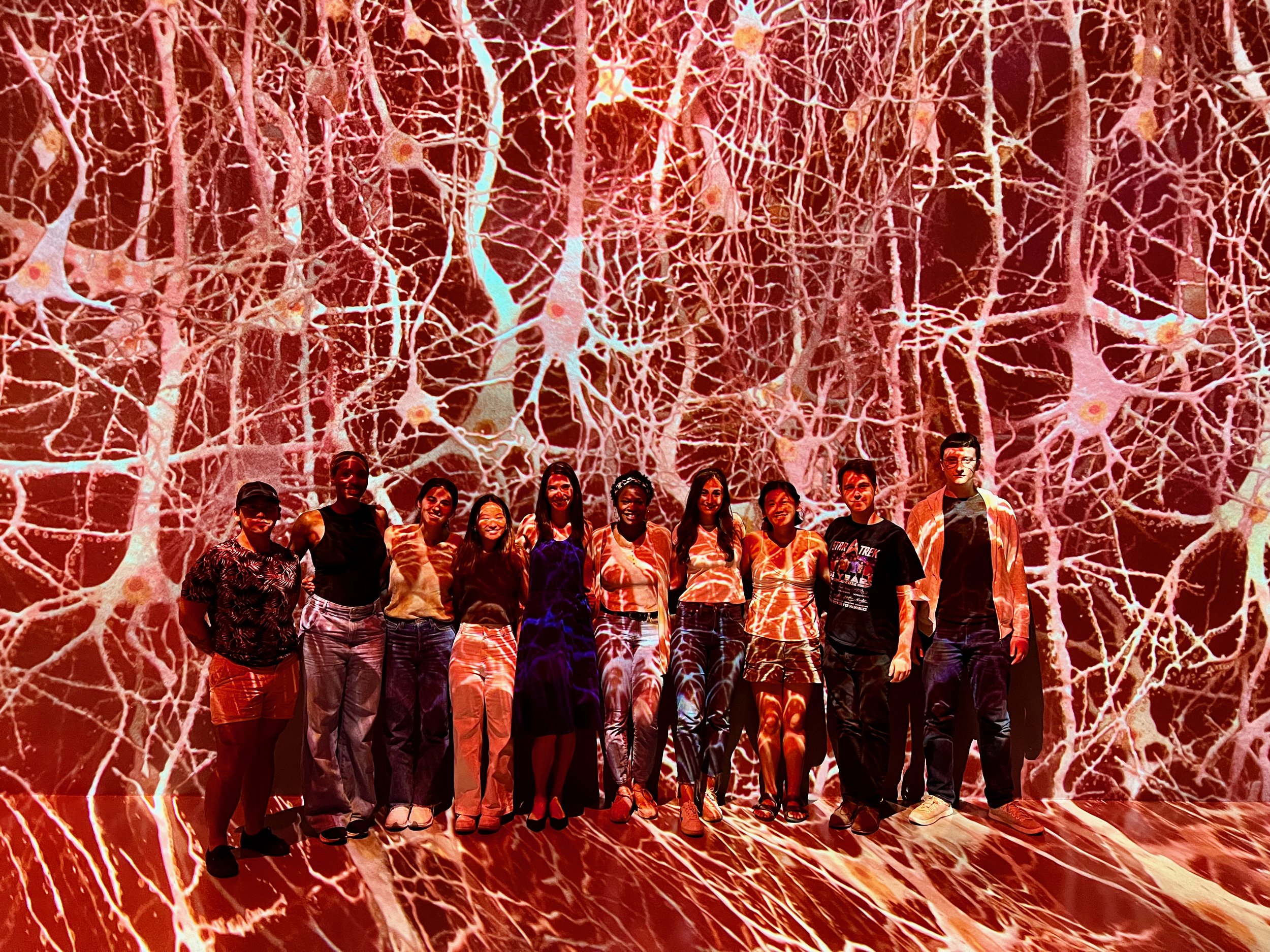
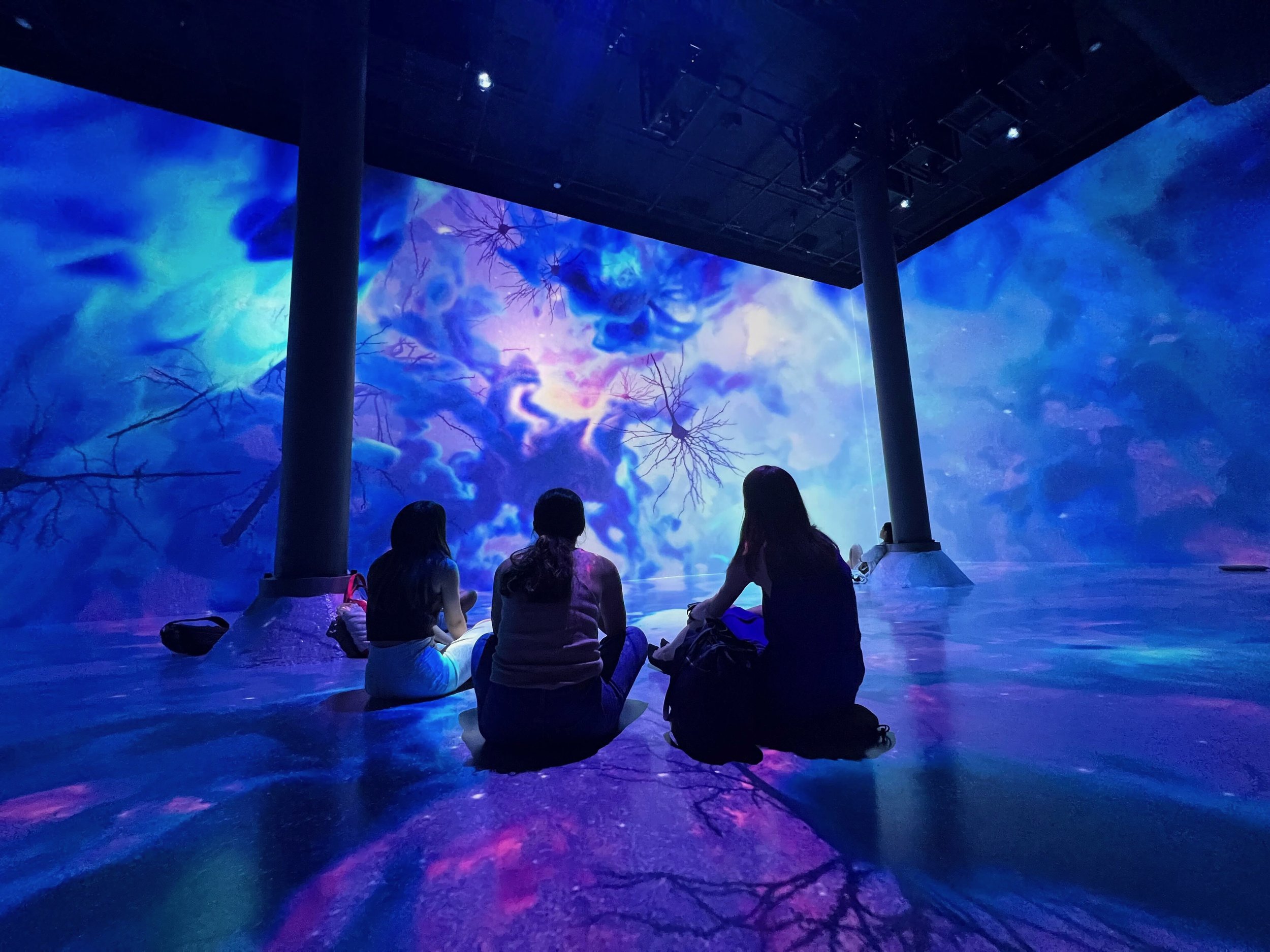

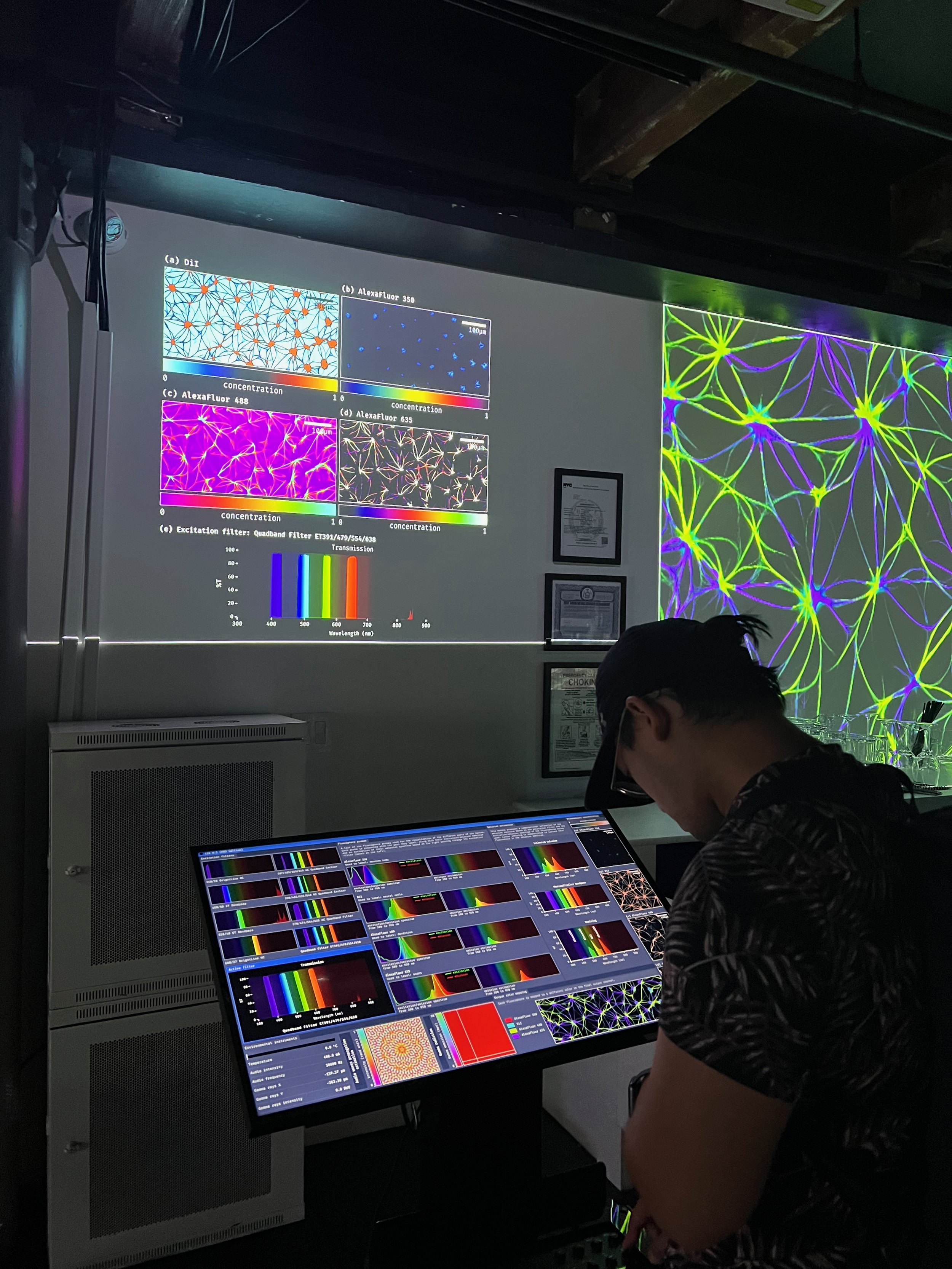
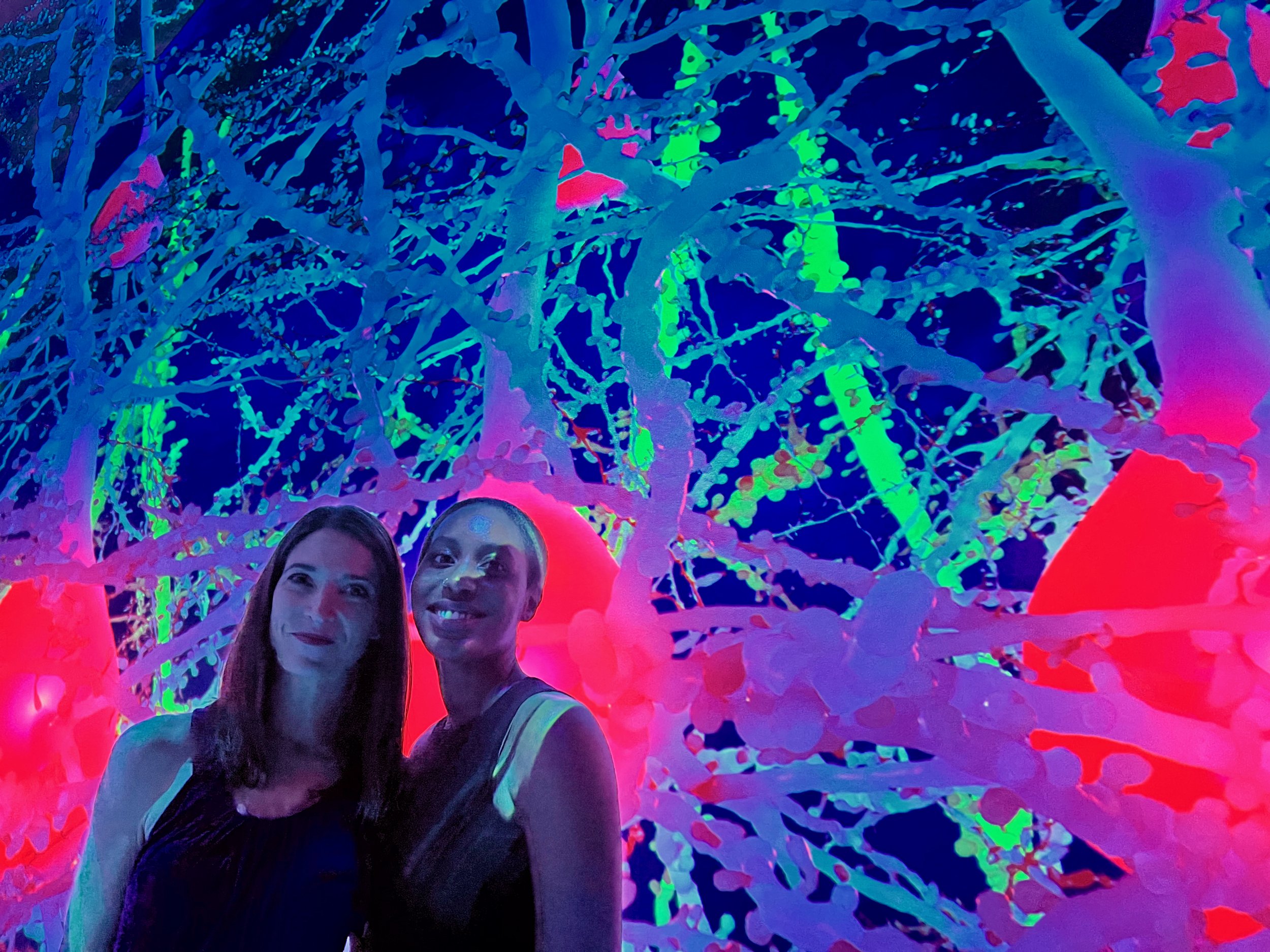
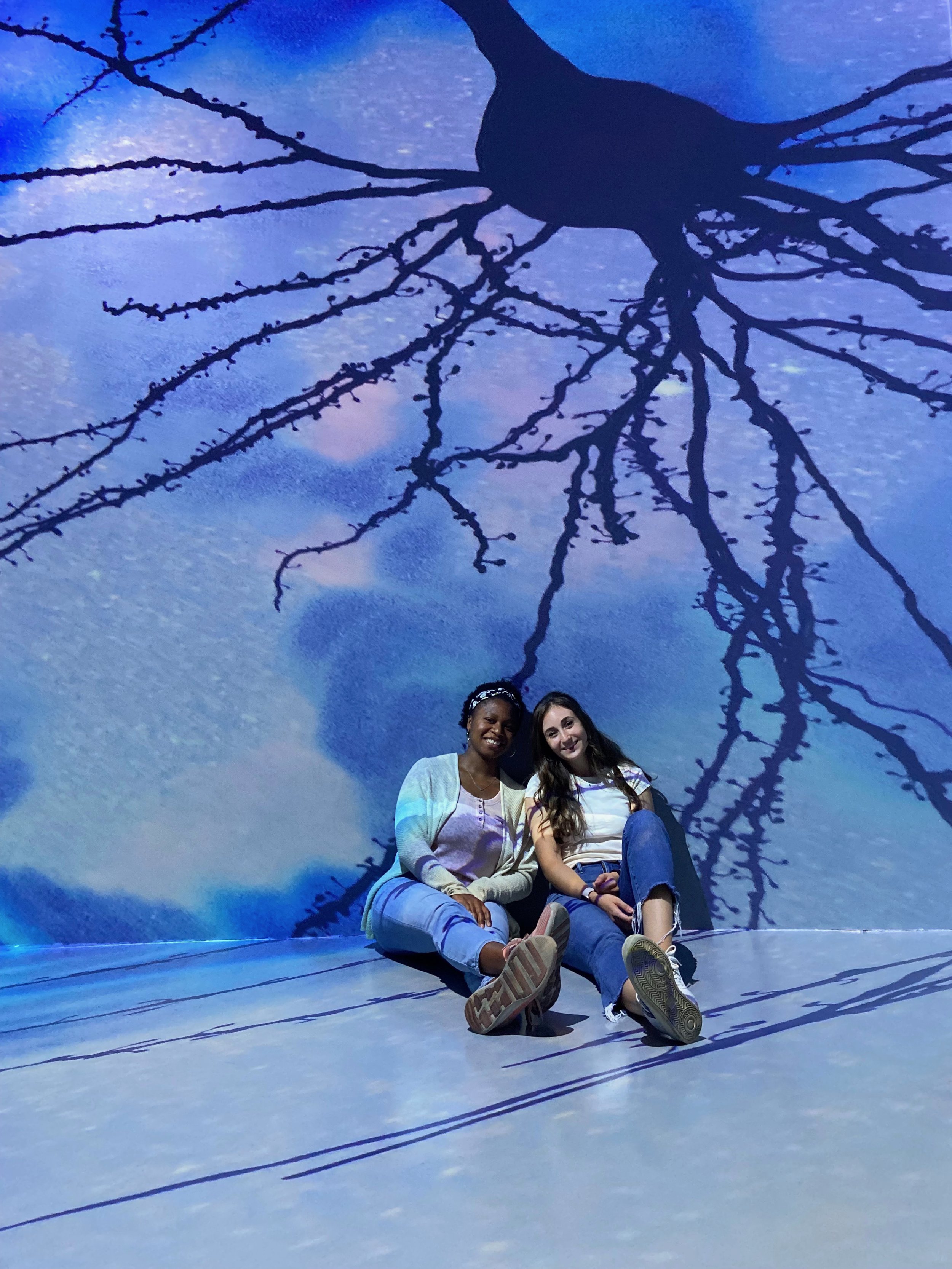


Summer 2022: Lab field trip for tacos and Life of a Neuron (SfN x Artechouse) exhibit
Congrats to Rebekah Rashford for her F31 from NIMH!
Coverage of our study on migrating children’s mental health following immigration detention
Stories of migrant families being separated at the U.S. border dominated the news for months in 2019. By the end of 2019, the Department of Health and Human Services estimated that at least 2,700 children were separated from their parents.
Around that time, Anne Elizabeth Sidamon-Eristoff ’20 joined assistant professor Catherine Jensen Peña’s lab at the Princeton Neuroscience Institute. The lab studies the effects of early-life stress on mice, uncovering how this trauma primed the brain for mental-health issues such as anxiety and depression in adulthood. Sidamon-Eristoff, a Spanish major, asked Peña a simple question: How do you stress a mouse pup?
“She said, ‘Maternal separation,’” Sidamon-Eristoff recalls. “I thought, ‘That’s weird, because that’s exactly what’s happening at the U.S.-Mexico border.’”
…
Keeping families together and providing them with resources to help mitigate the effects of childhood trauma, as well as offering them legal counsel during the asylum process to reduce uncertainty and stress, has “a mental-health benefit, an education benefit, and ultimately an economic benefit,” Peña says.
Spring 2022
Congrats to Forrest for winning Best Poster at the 2022 PNI Retreat!
Congrats to Sero for winning a travel award to Stress Neurobiology 2022!
Congrats to Shannon for winning a Society for Behavioral Neuroendocrinology Welcome Initiative Award!
Congrats to Addie for being selected to present a poster at GRC Optogenetics!
April 2022: Class of ‘22 Seniors invited Cate to the Senior Gratitude Gala (thank you! <3)
Peña Lab Senior Sendoff party!
Joint Mallarino-Peña lab happy hour!
March 2022: Surprise baby shower for postdoc Julie-Anne and & surprise celebration of the lab’s first R01!
Cate gave a talk on “Promoting resilience in the brain after early life stress” as a part of Penn’s public Neuroscience and Society talk series in March.
2022: The Peña and Niv labs took a brilliant Writing Practicum with Liz Neeley through Liminal Creations.
December 2021: First annual Peña Lab tamales and cookie decorating holiday party!
Cate was granted Associate Membership in the American College of Neuropsychopharmacology!
Cate is awarded the Frank A. Beach Early Career Award from the Society for Behavioral Neuroendocrinology!
Working double time on the sequencing line..
Thanks for the shirts, Active Motif!
May 2021: Lab lunch to send off our seniors. Congrats to AJ for winning a Spirit of Princeton award and to Christabel for winning the Brinster Outstanding Neuroscience Thesis Prize!
May 2021: Second annual mini golf
October, 2020: Physically distanced lab picnic. Our first lab gathering since March! Missing the rest of our undergrads away from campus!
Check out those coordinated lab masks!
(L->R: AJ, Christabel, Julie-Anne, Shannon, Rebekah, Addie, Cate)
Lab masks designed by Julie-Anne are in!
Congratulations to Addie Minerva for winning a 2021 NSF Graduate Research Fellowship!
Cate Peña (right) and Julie-Anne Rodier (left) photocredit: Denise J. Applewhite
Our lab was featured in this write-up of the New Jersey Alliance for Clinical and Translational Science (NJ-ACTS) on the university homepage.
Mikel Casal
Our research was featured on the Princeton Alumni Weekly magazine, March 18, 2020:
The Lifelong Impacts of Childhood Trauma
September, 2019: Surprise baby shower for Cate
August, 2019: End-of-summer lab mini golf retreat
August, 2019: Peña Lab ice cream outing to celebrate Sero and Rebekah officially joining the lab, Austin’s first poster presentation and last last full-time week as an OURSIP Awardee, and Anne Elizabeth’s first successful trip to learn about childhood immigration/detention stress in TX. Guest appearance by Cate’s F1.
First experiments in the lab!
Unpacking equipment
Austin presents the lab’s first poster
Peña Lab doors officially opened February 1, 2019!

